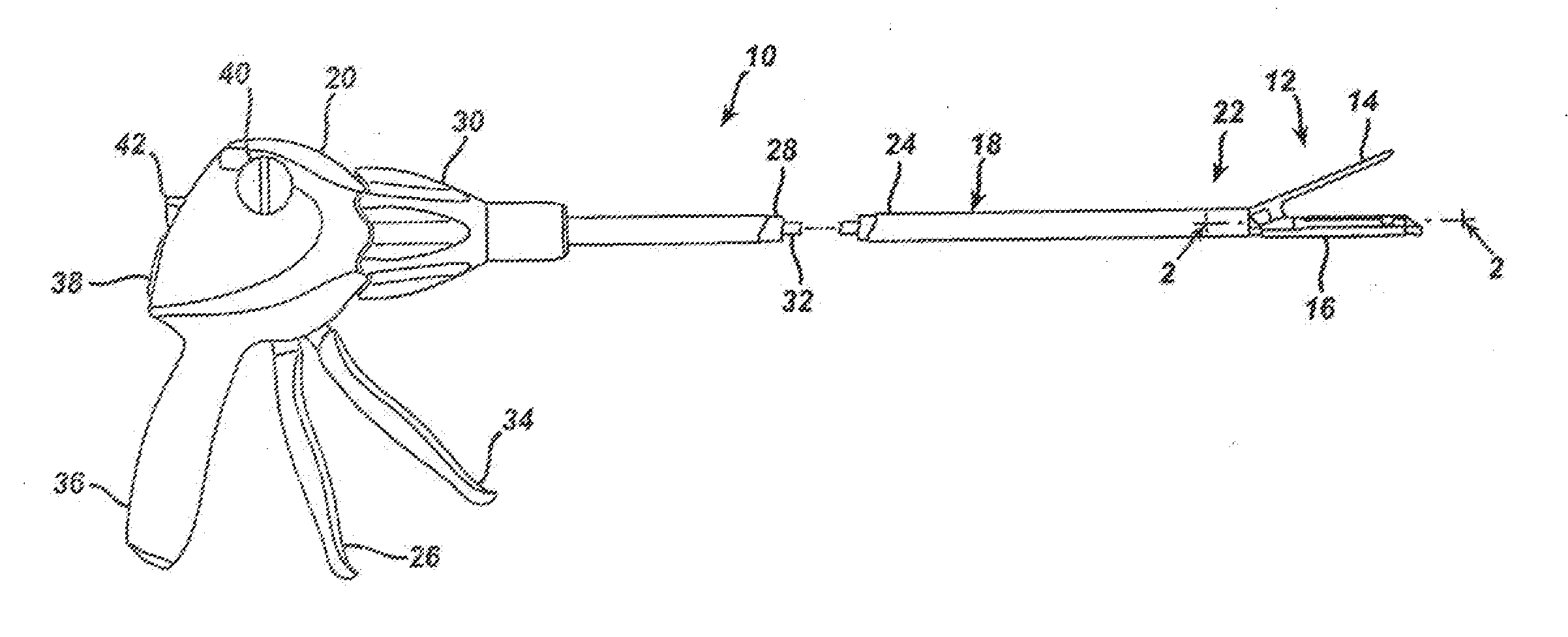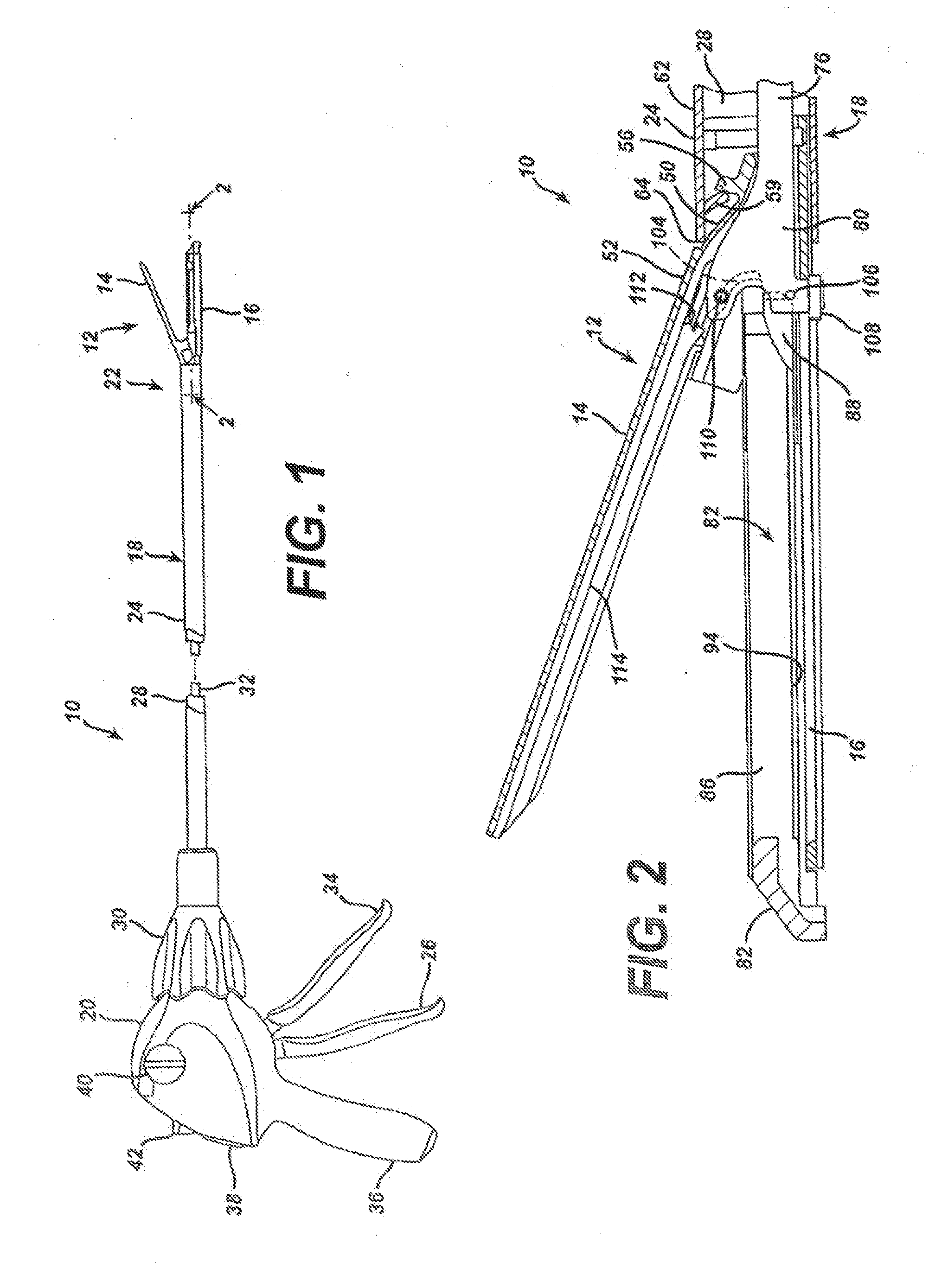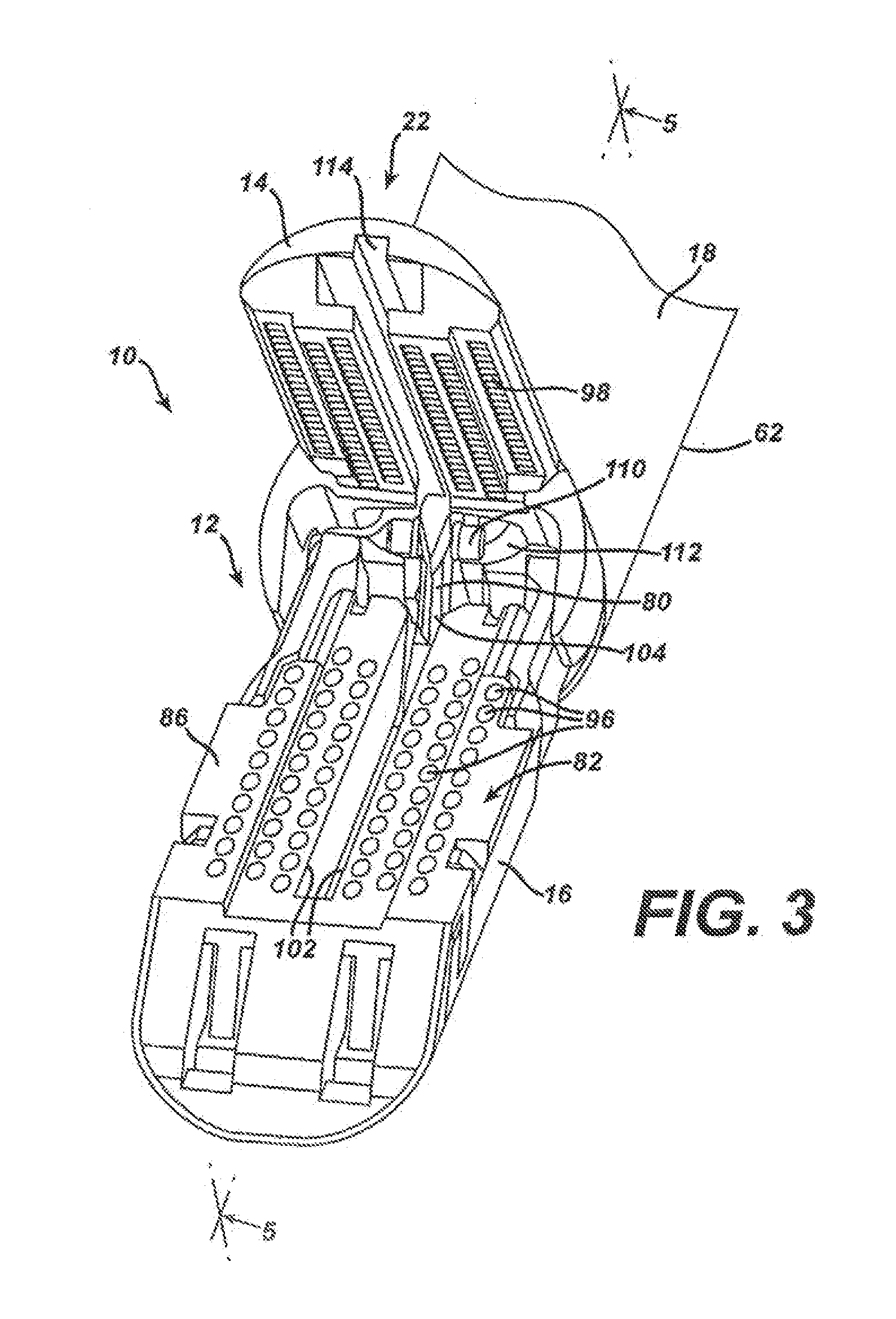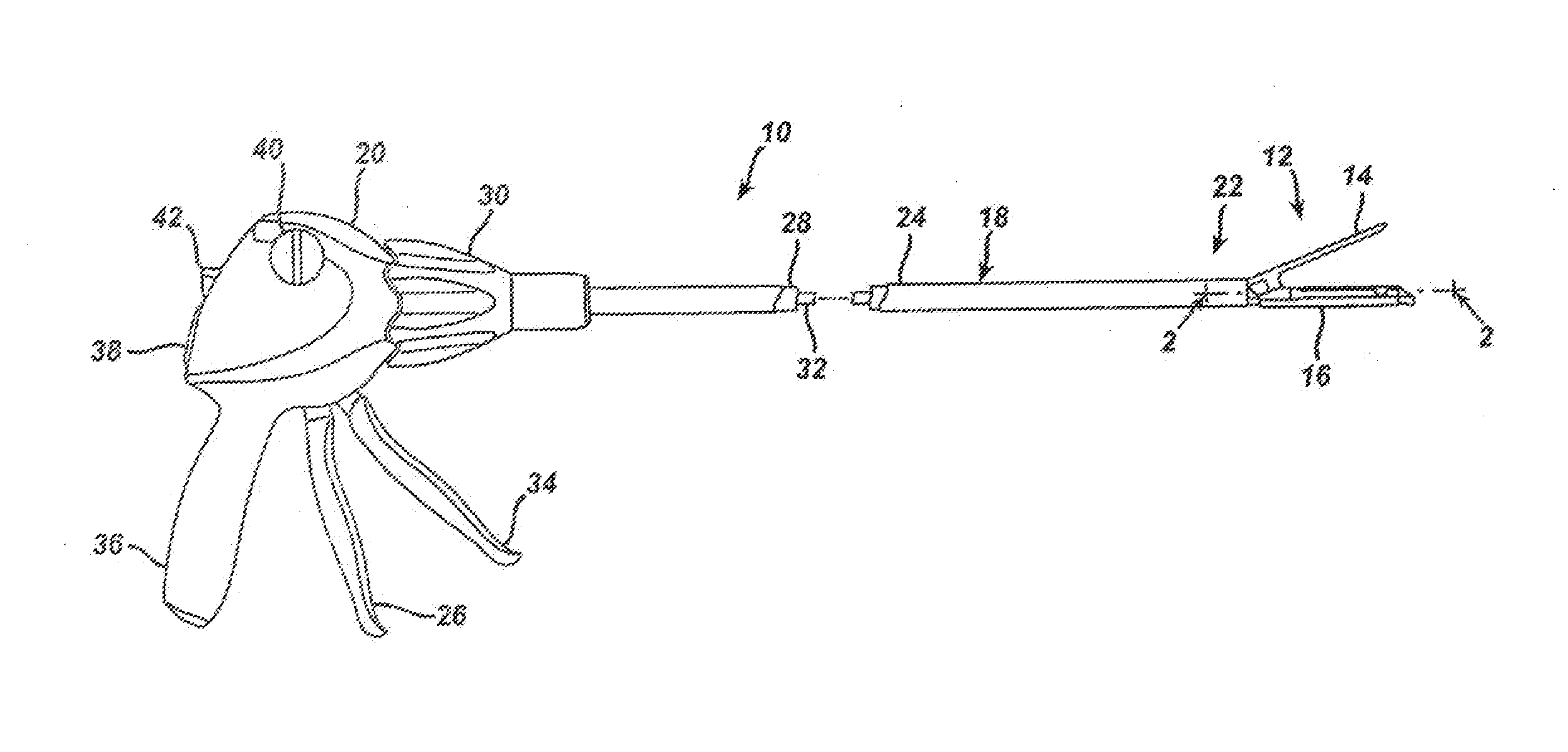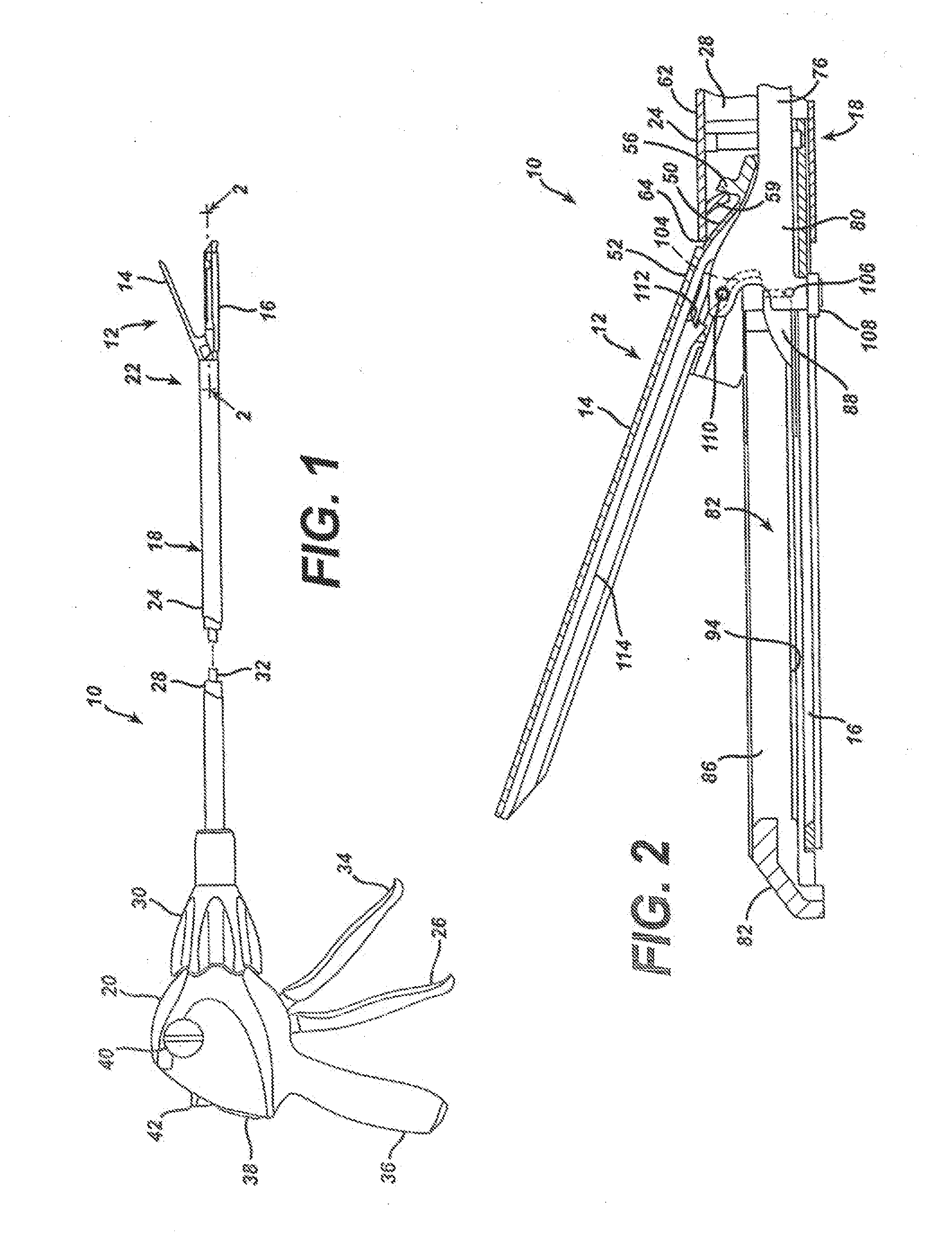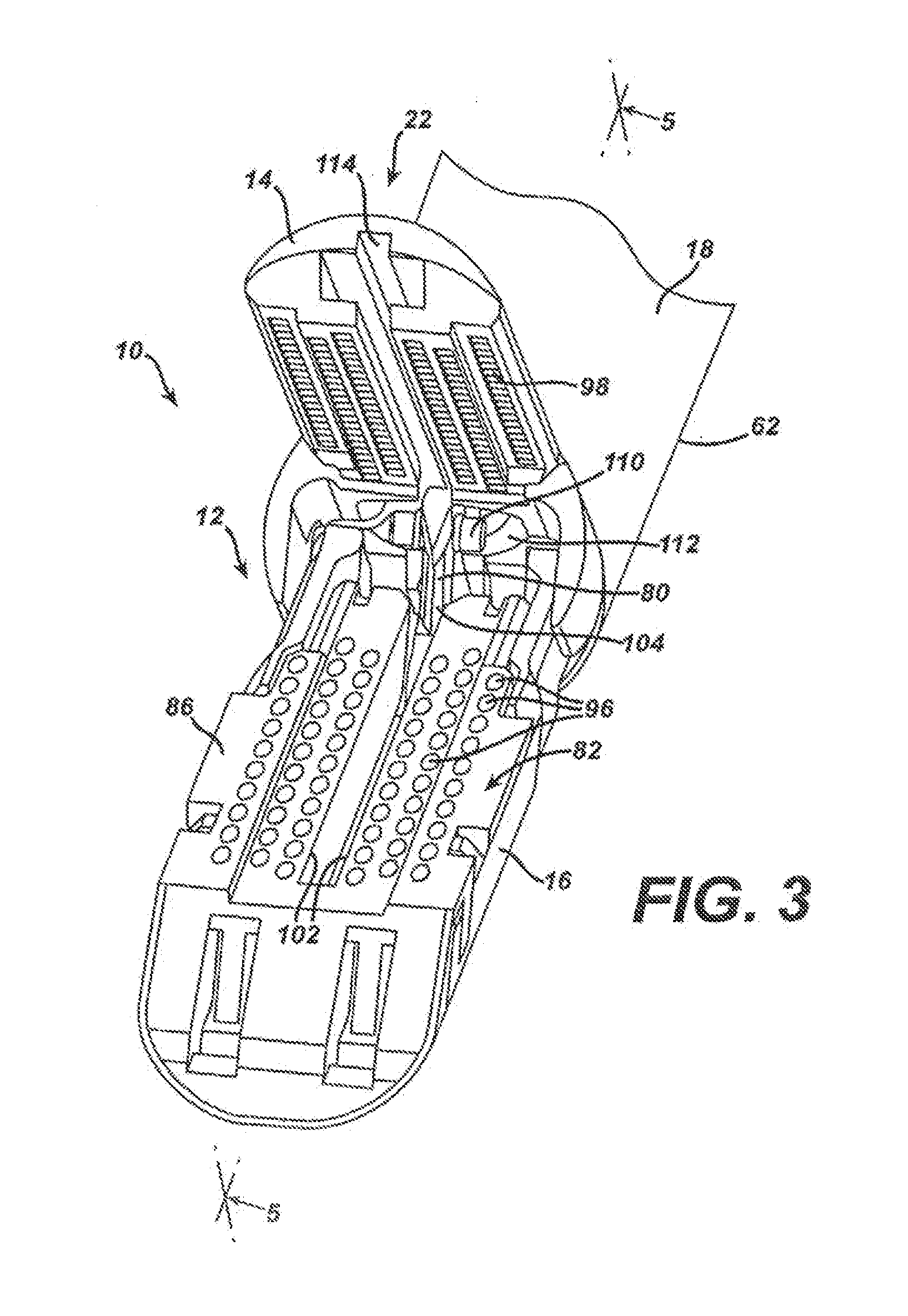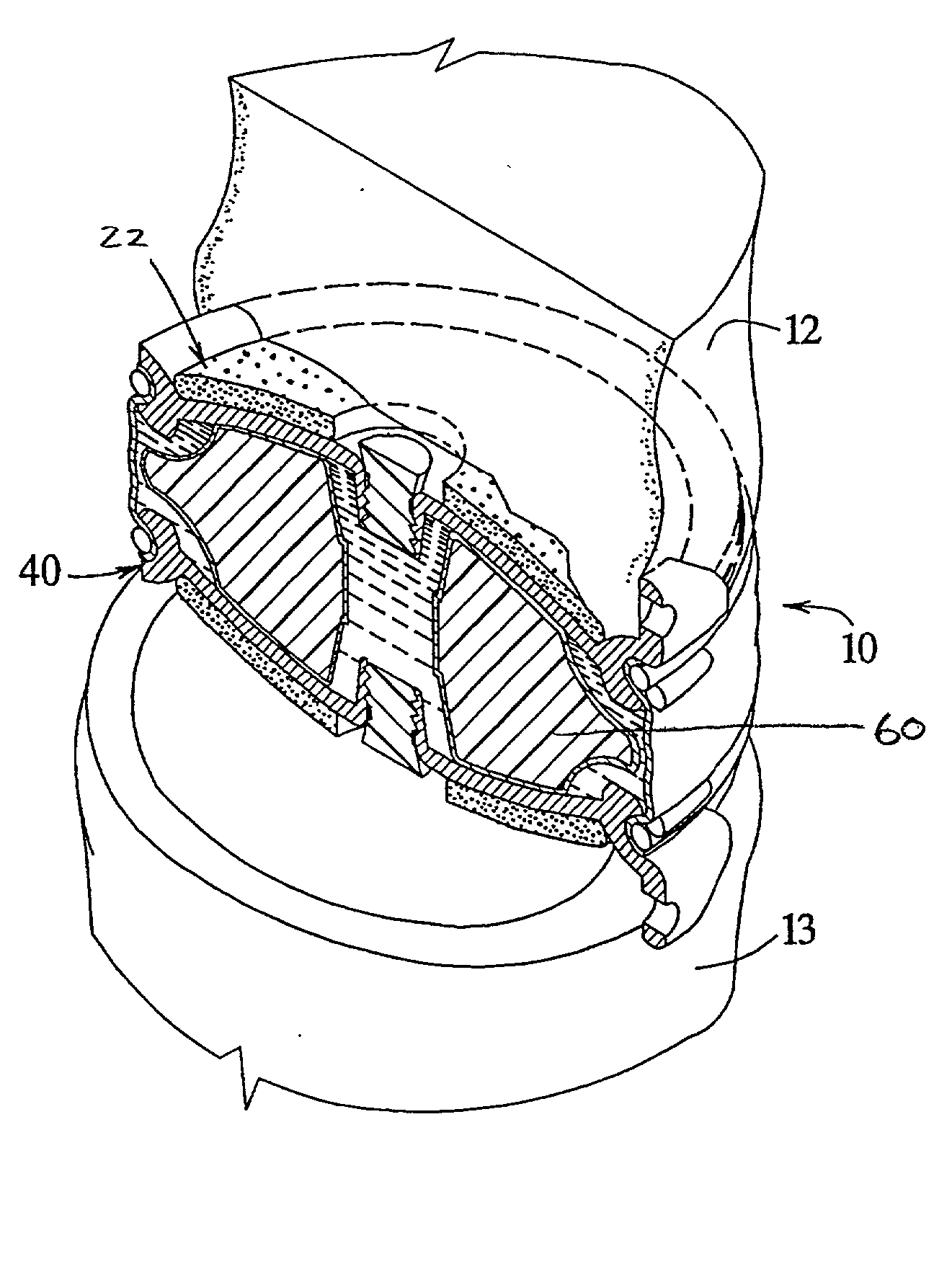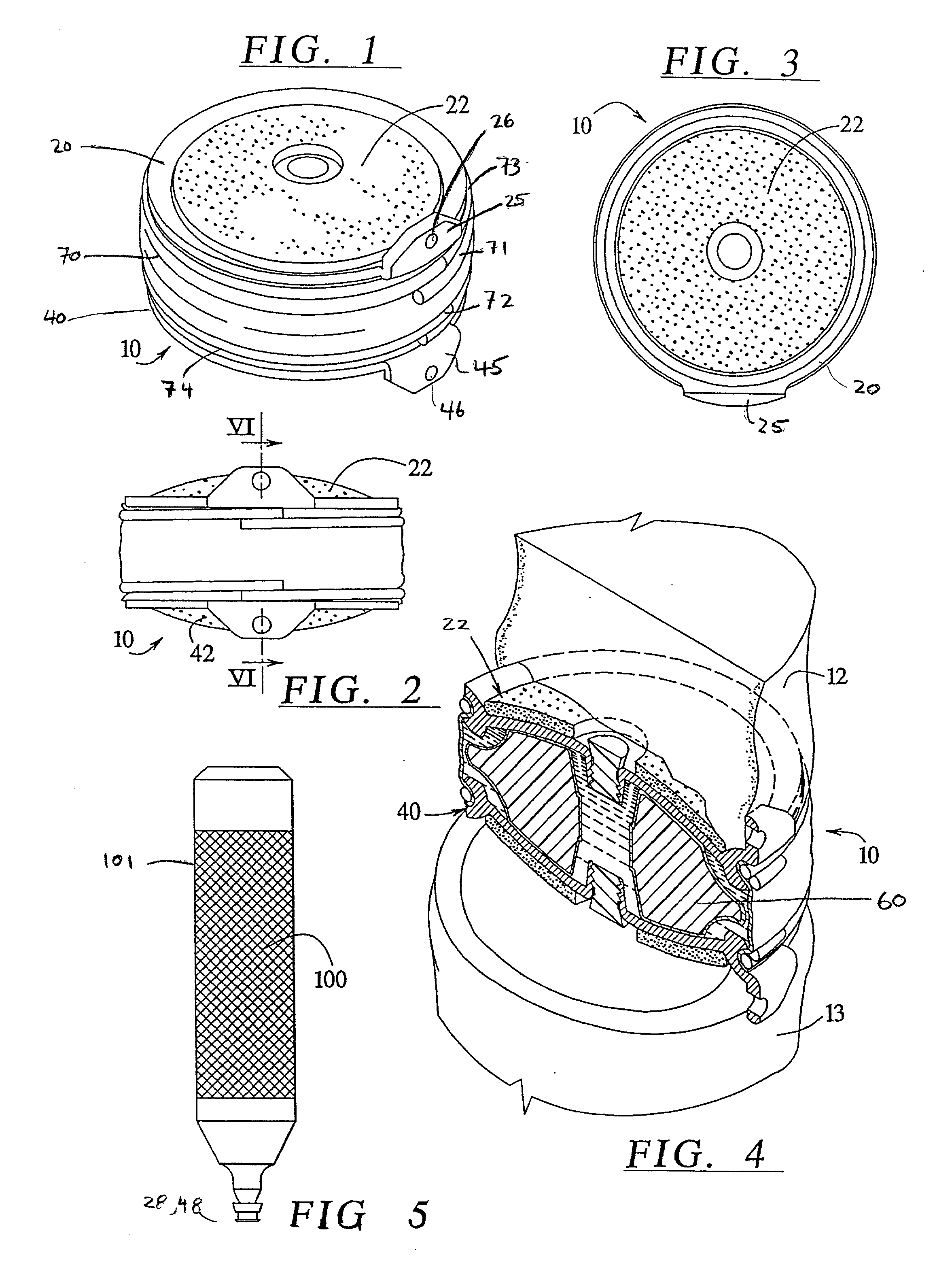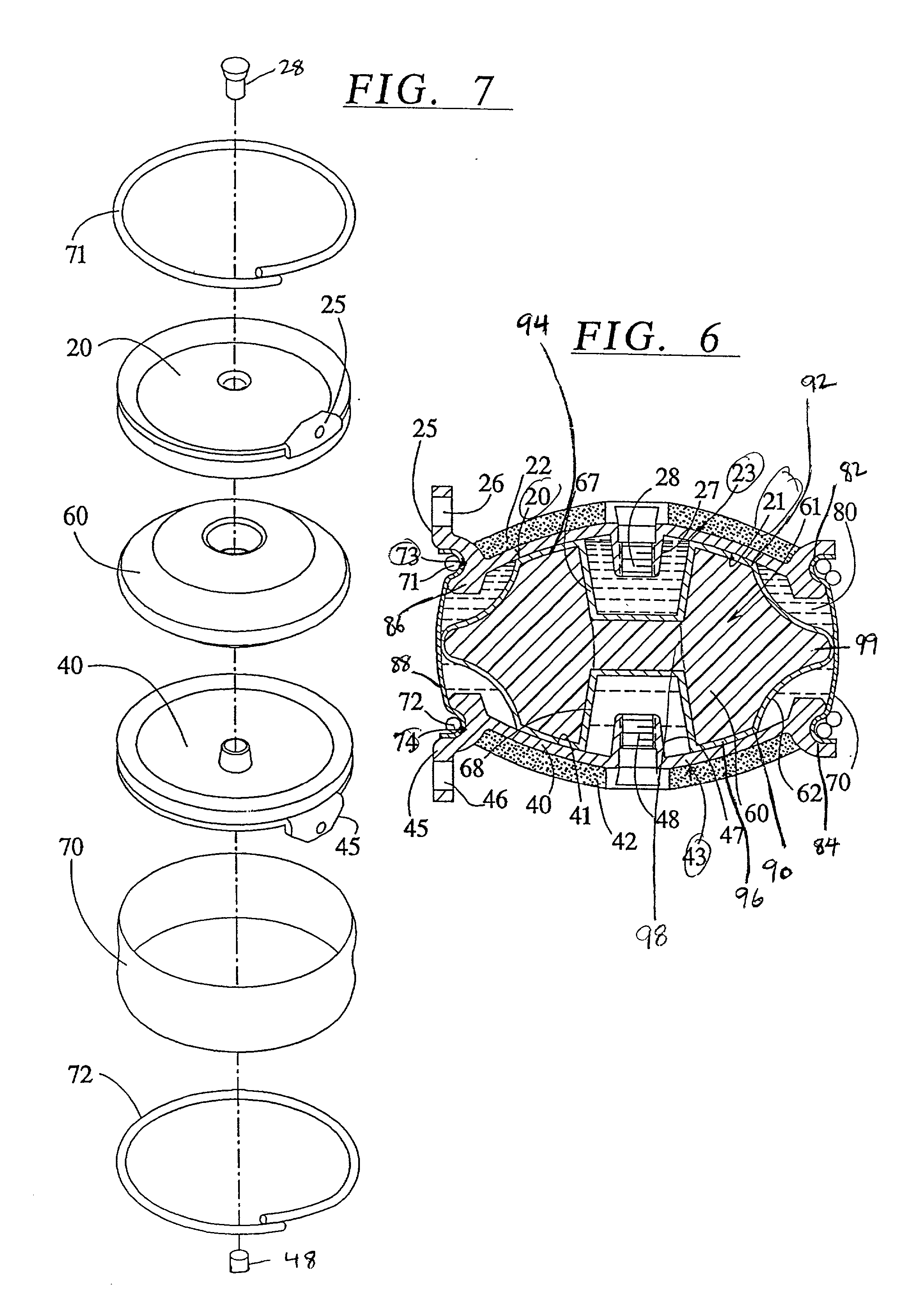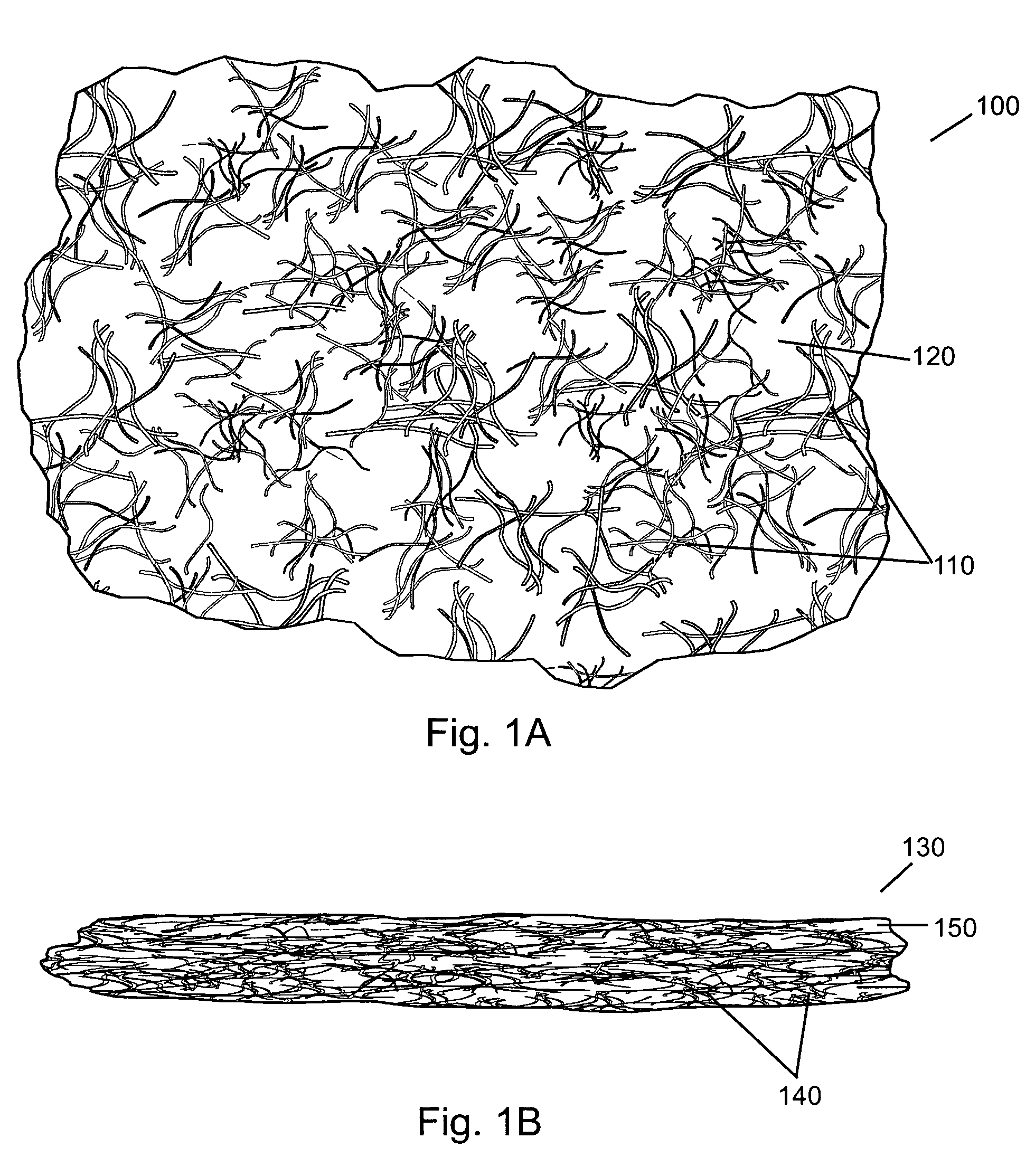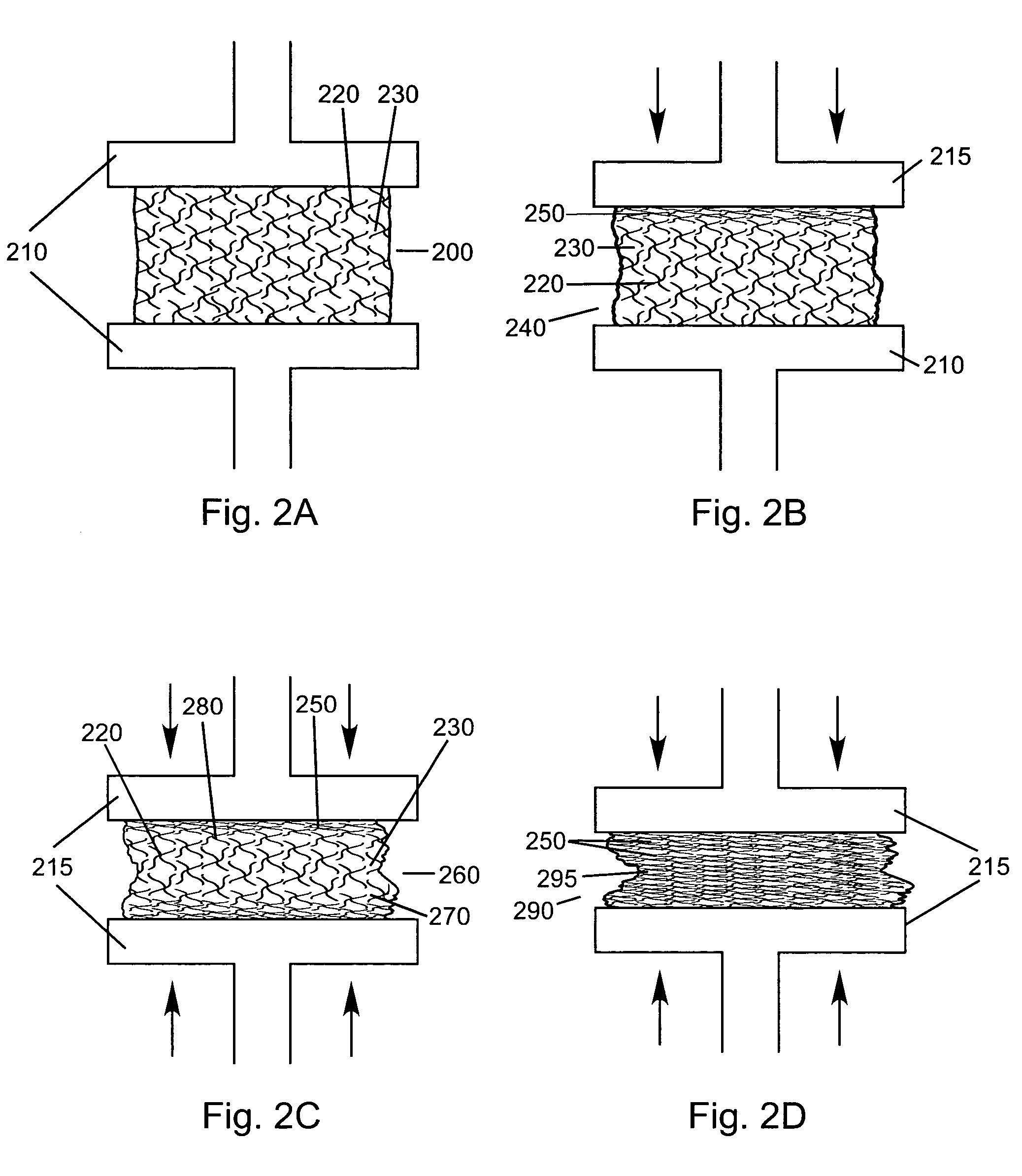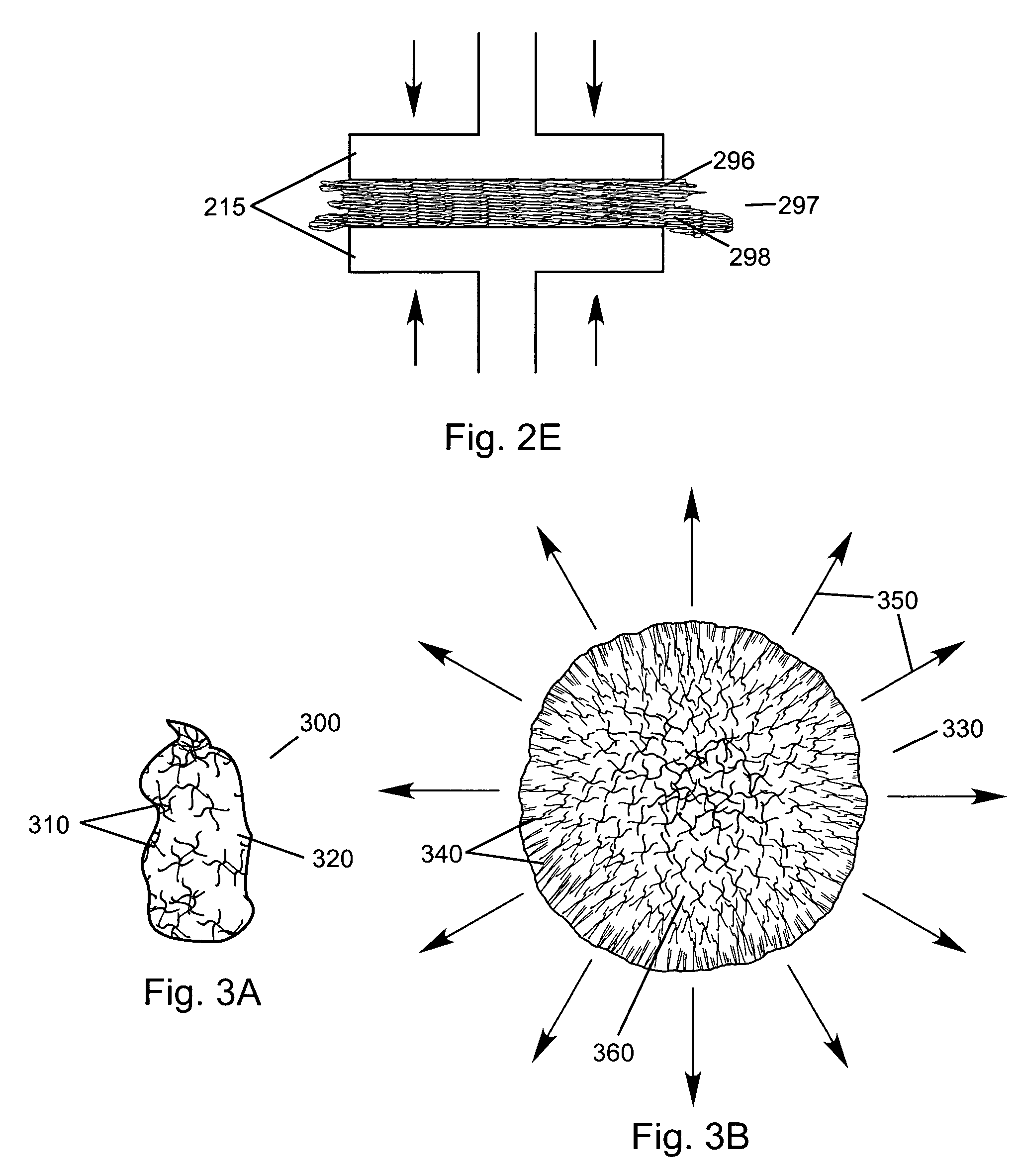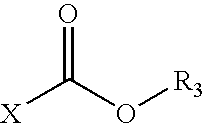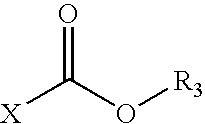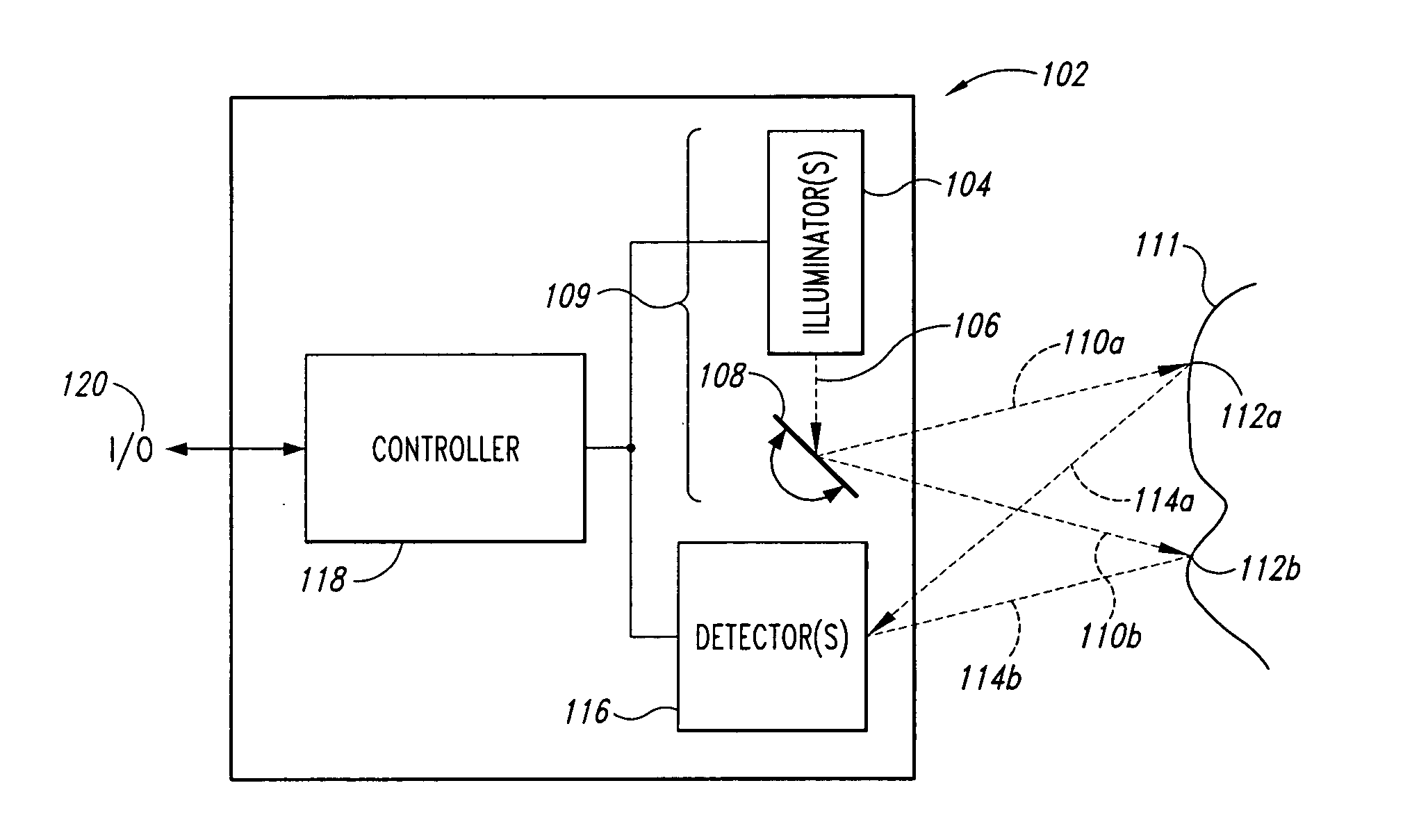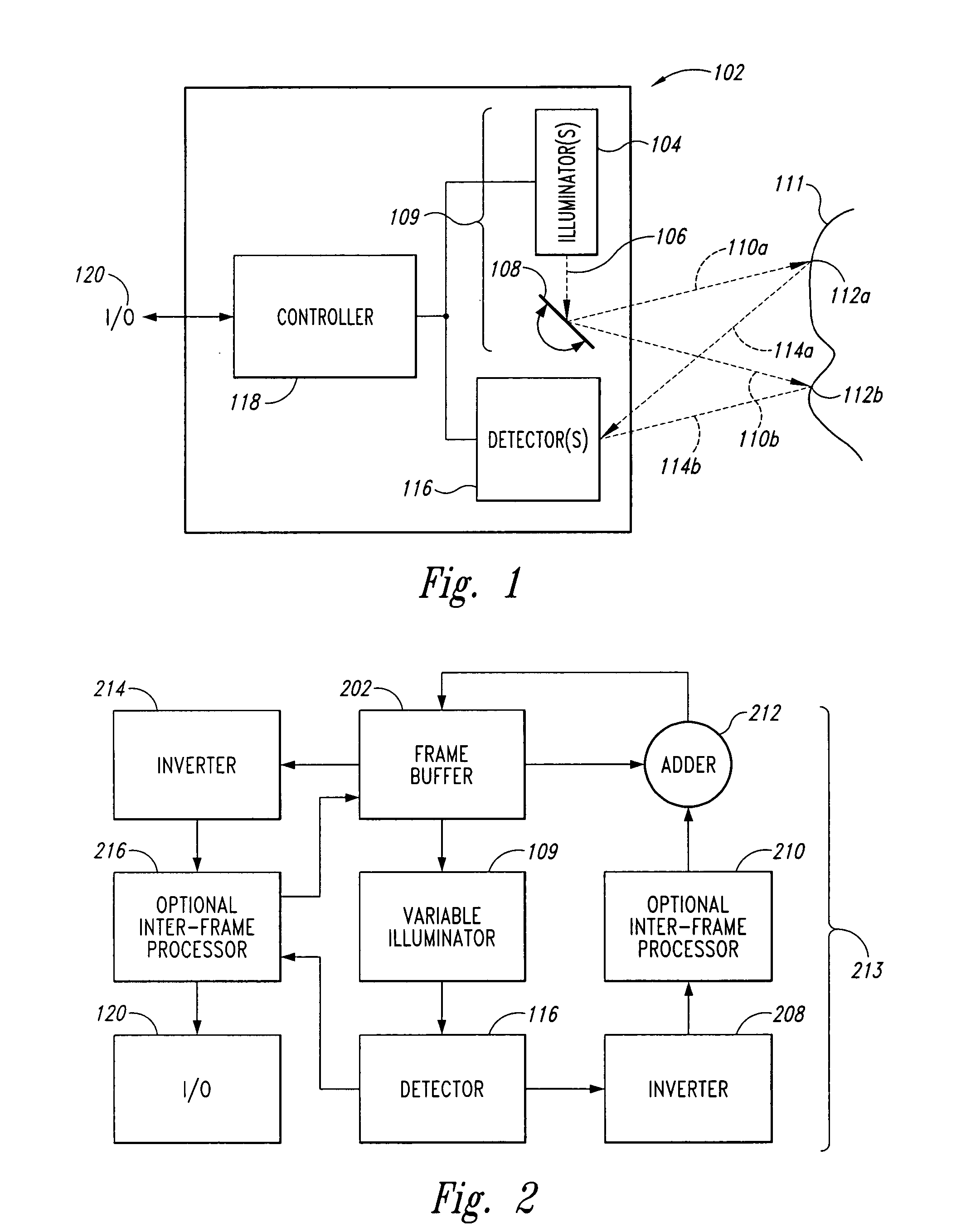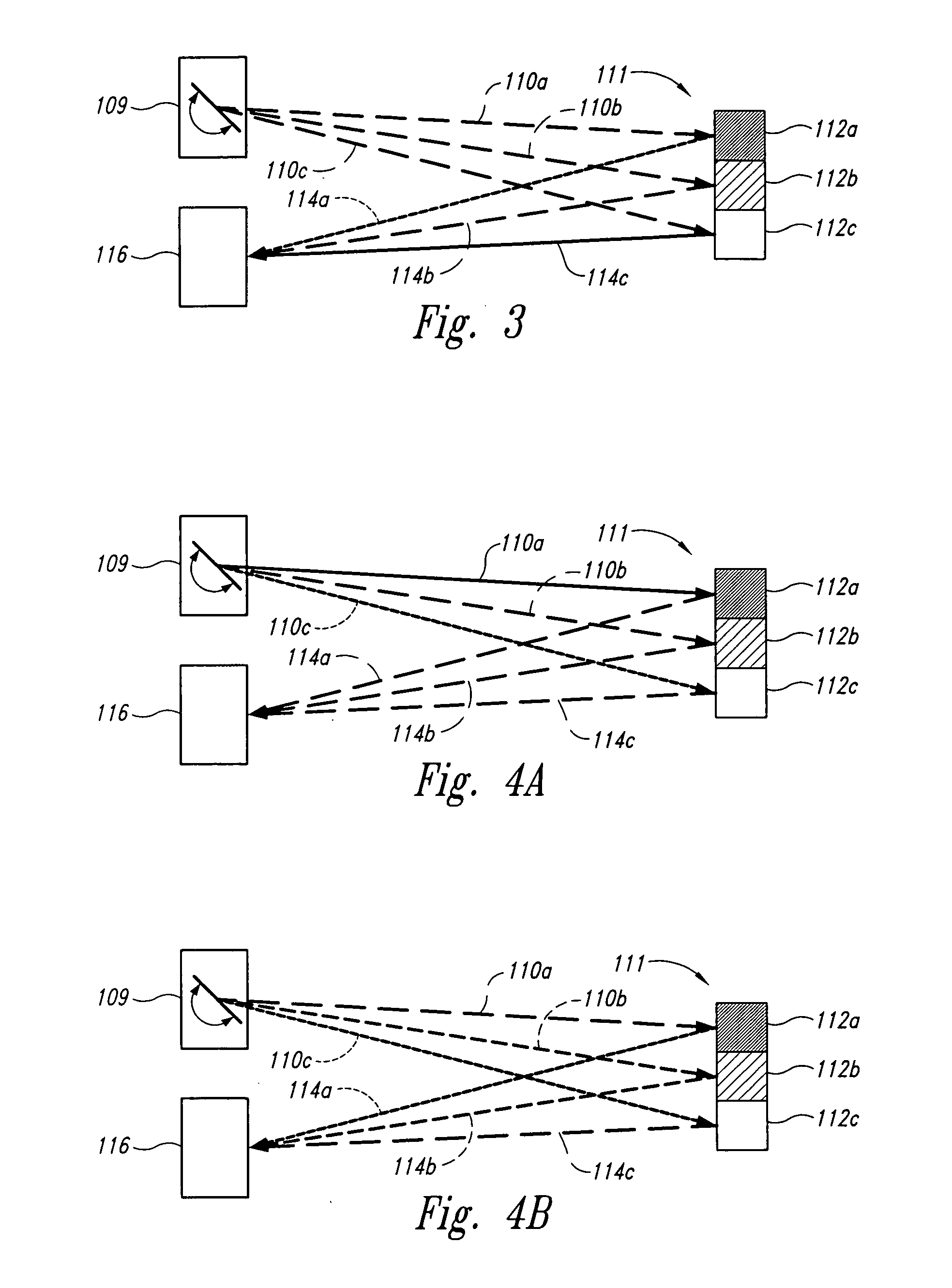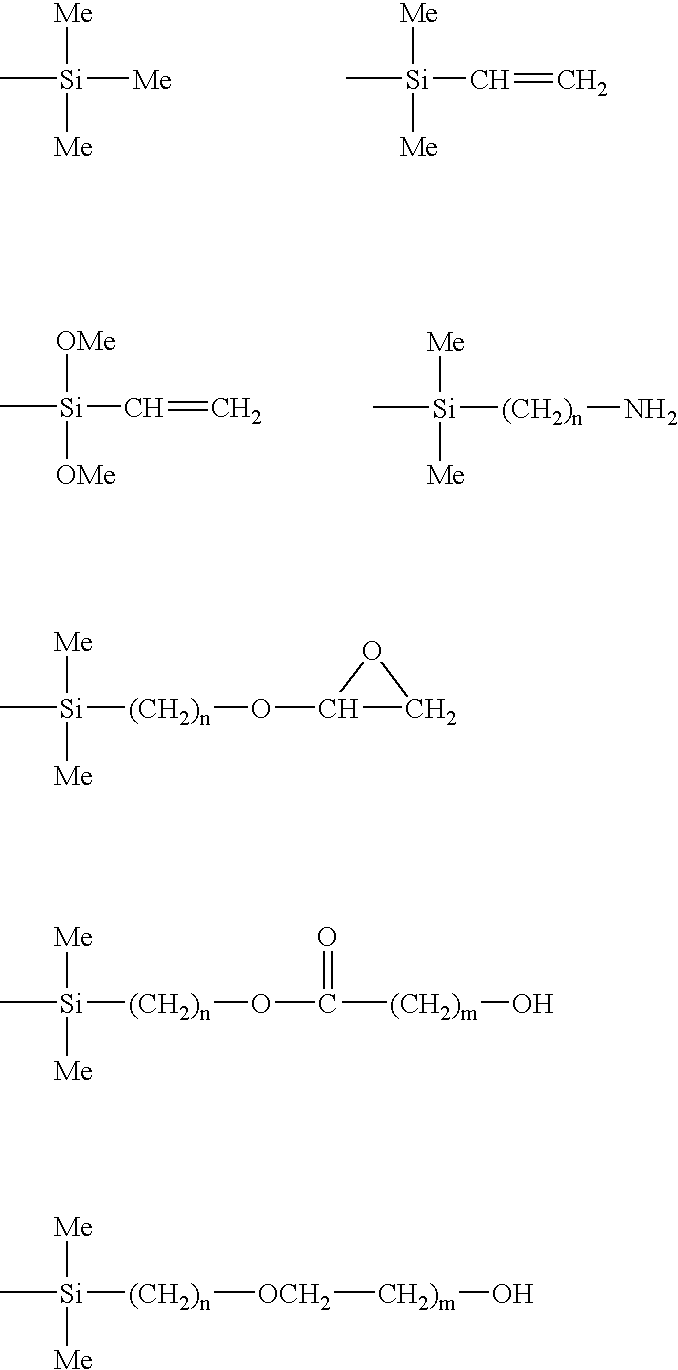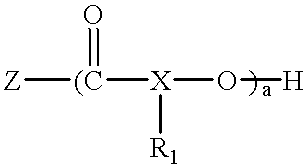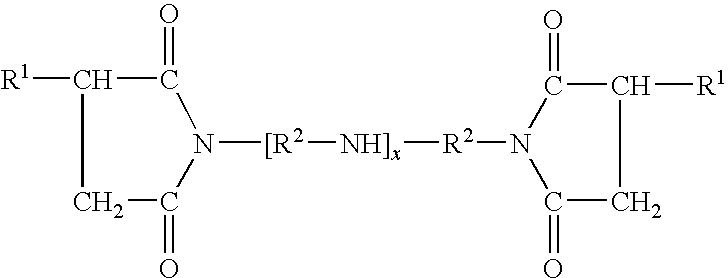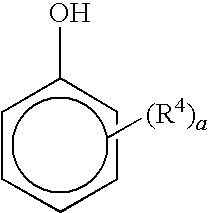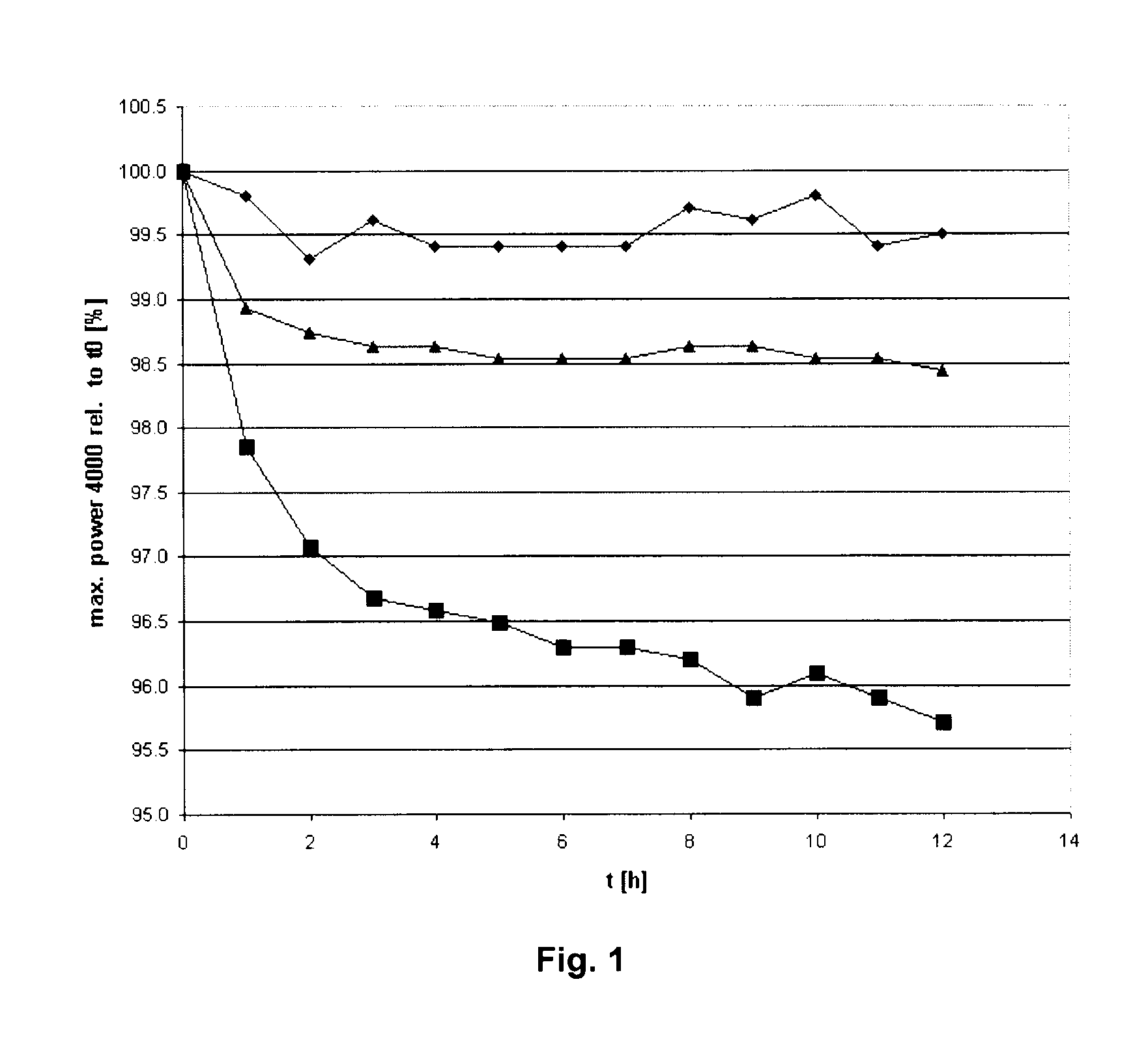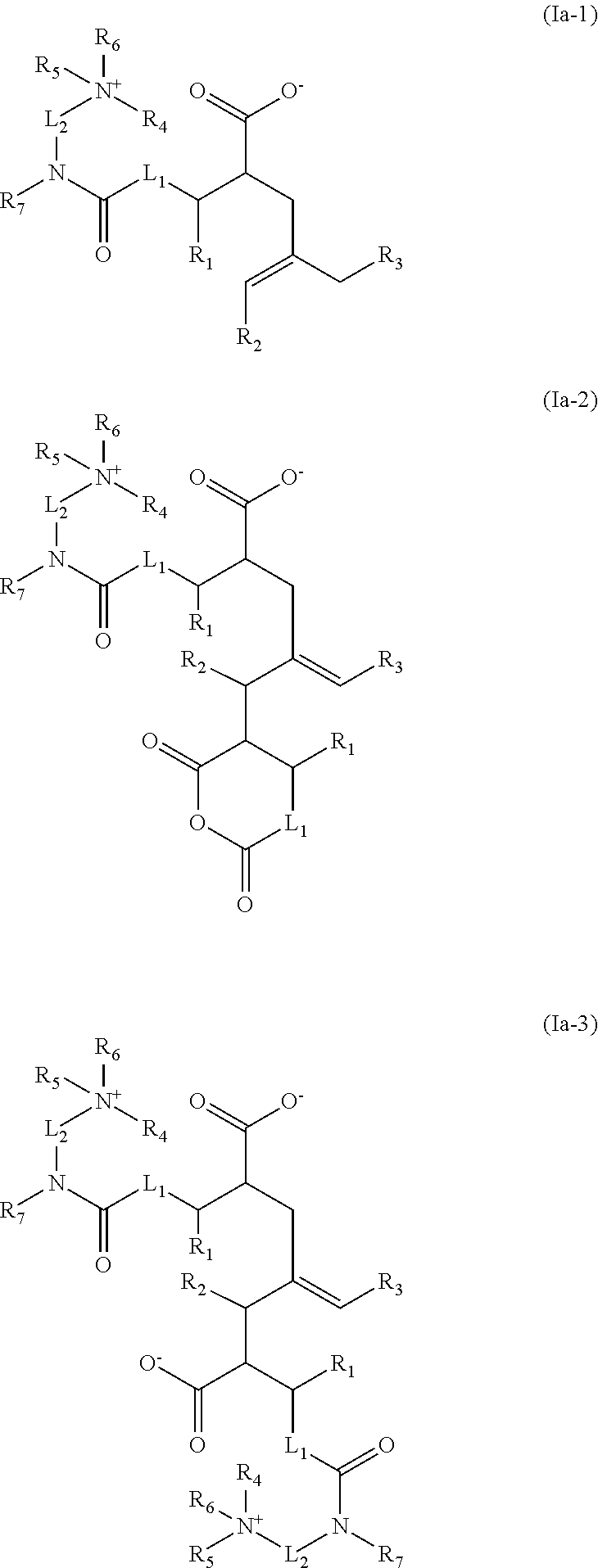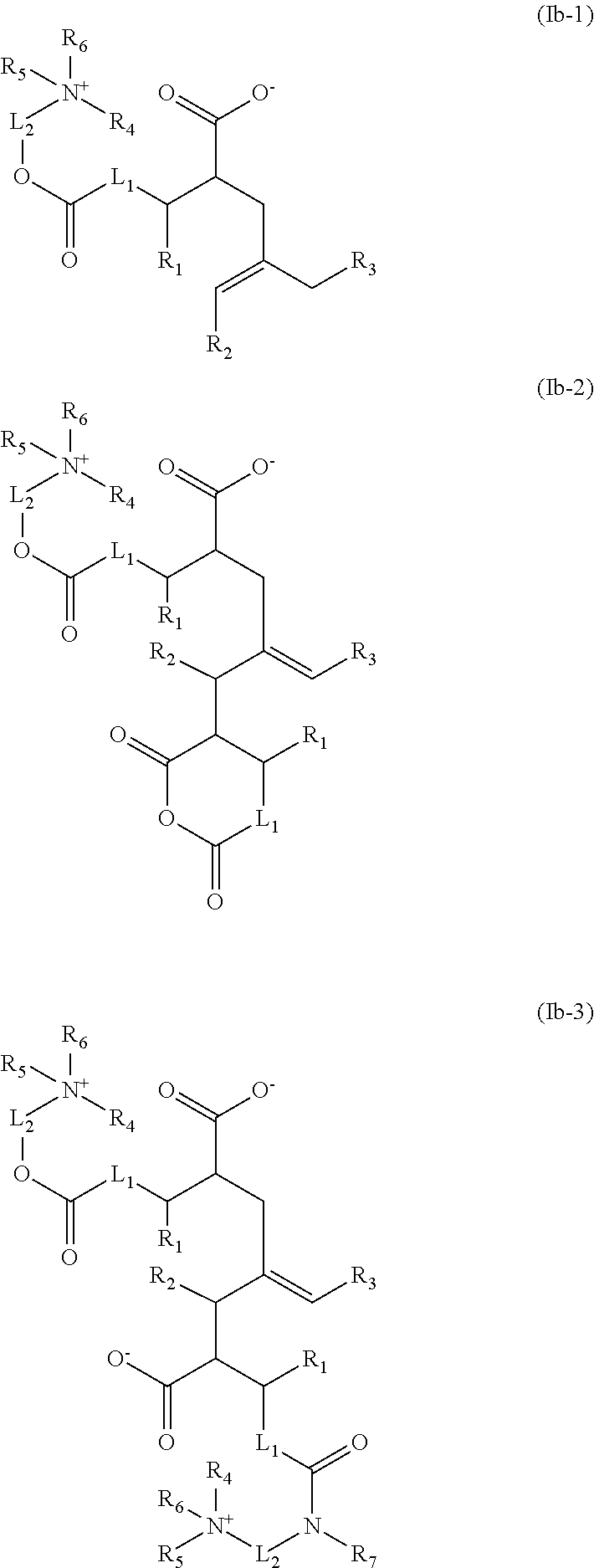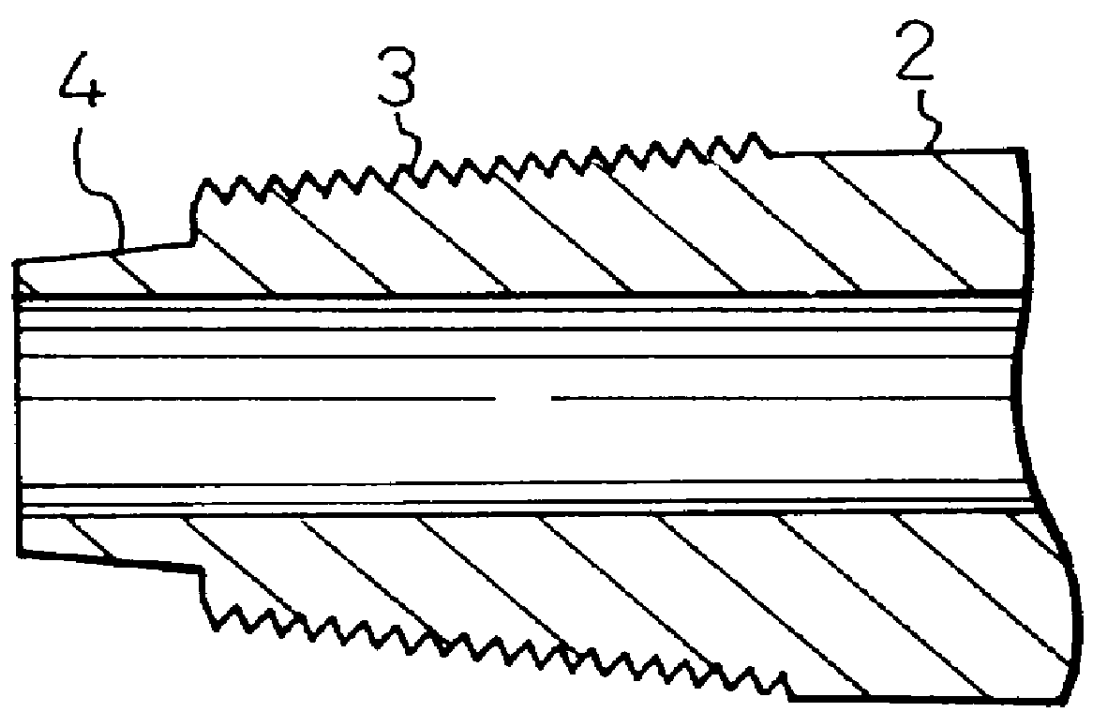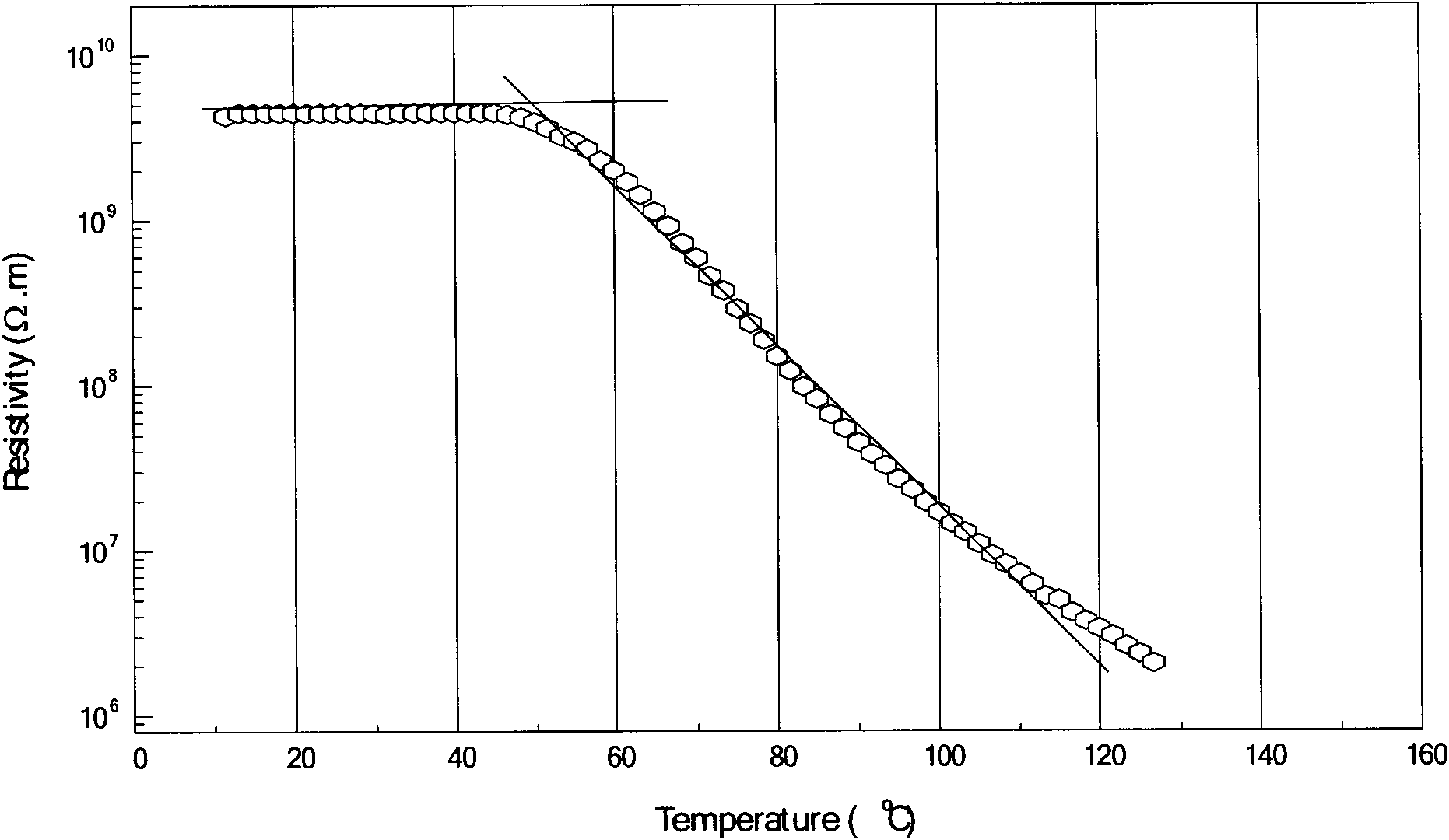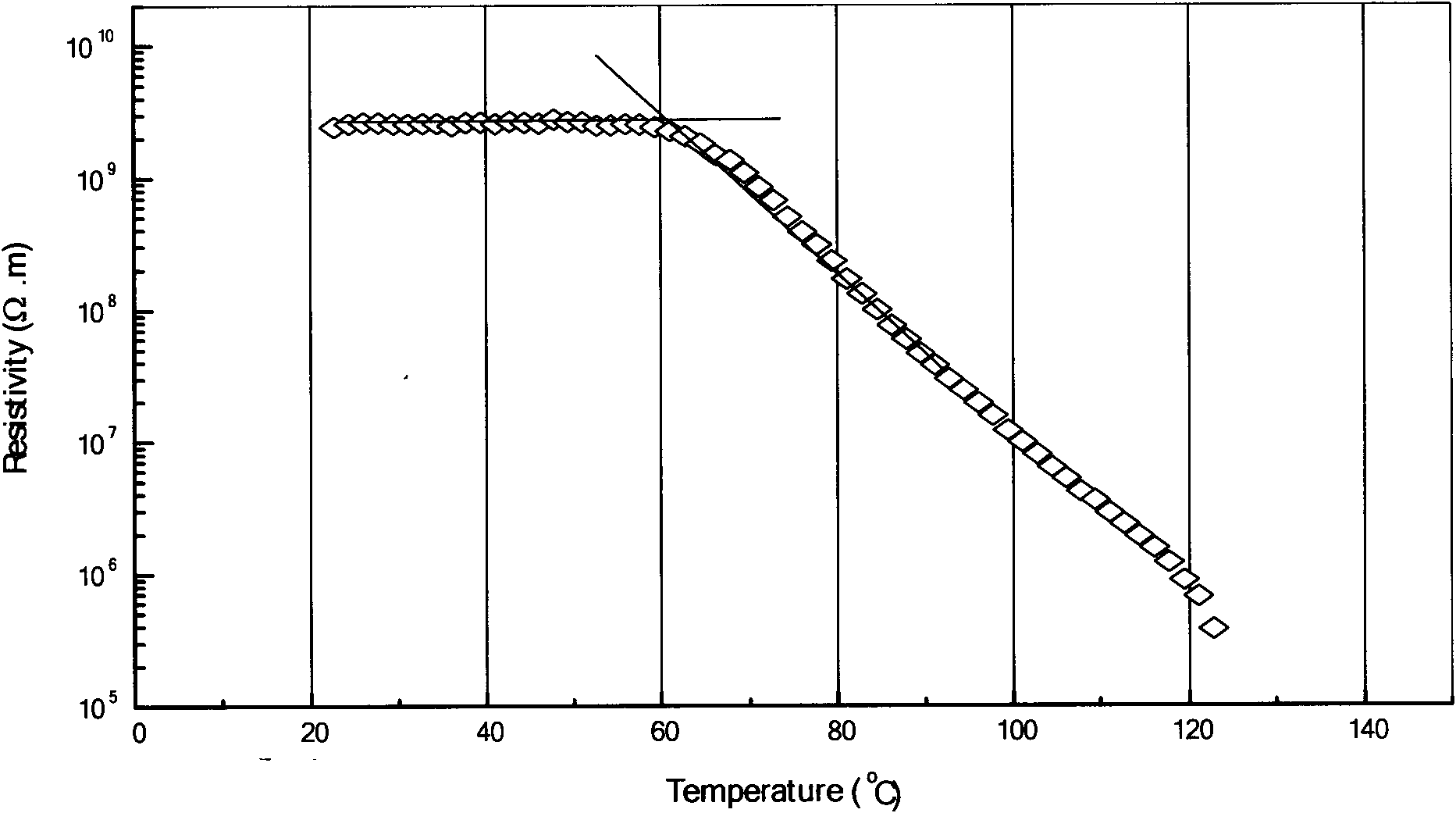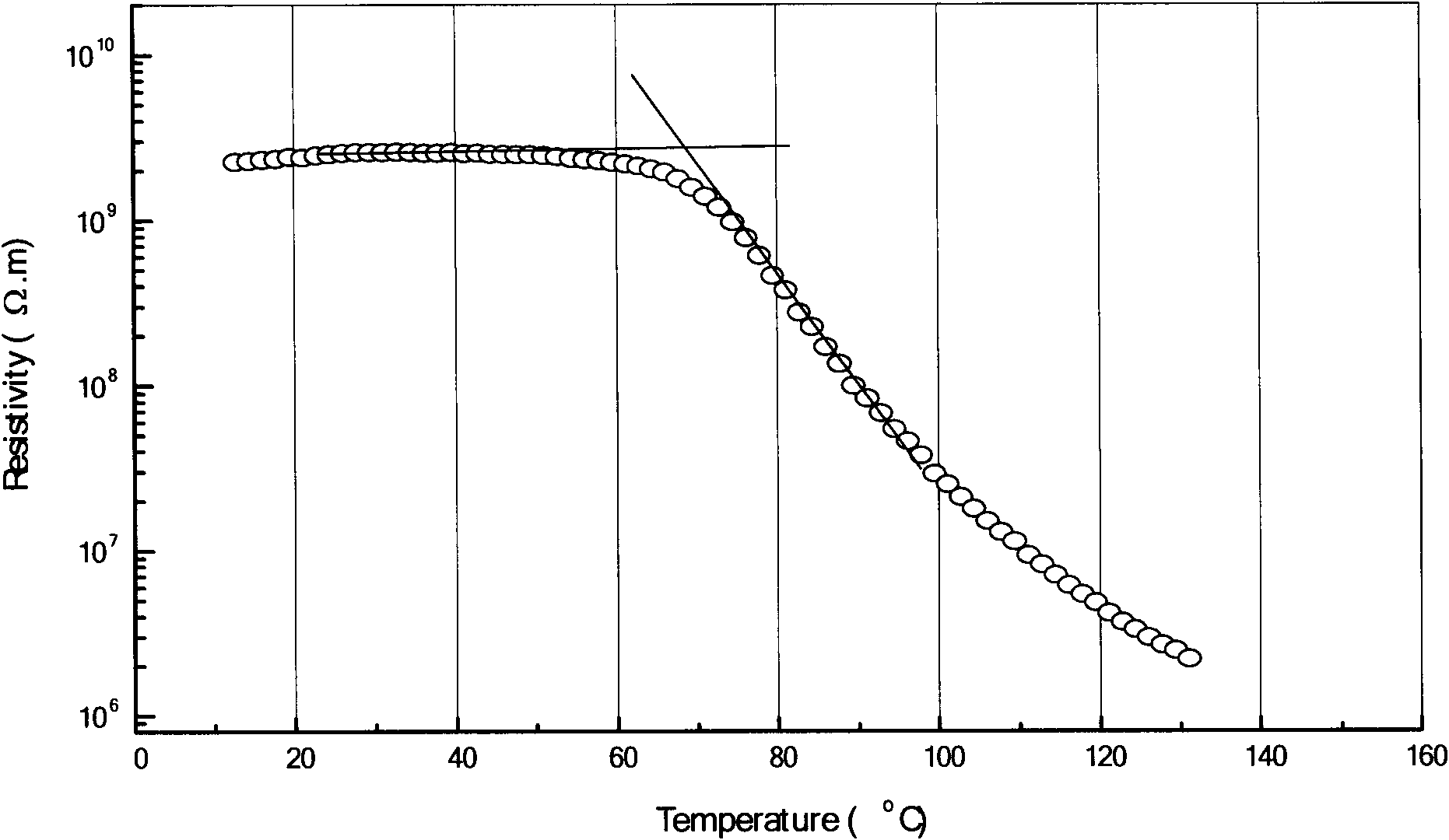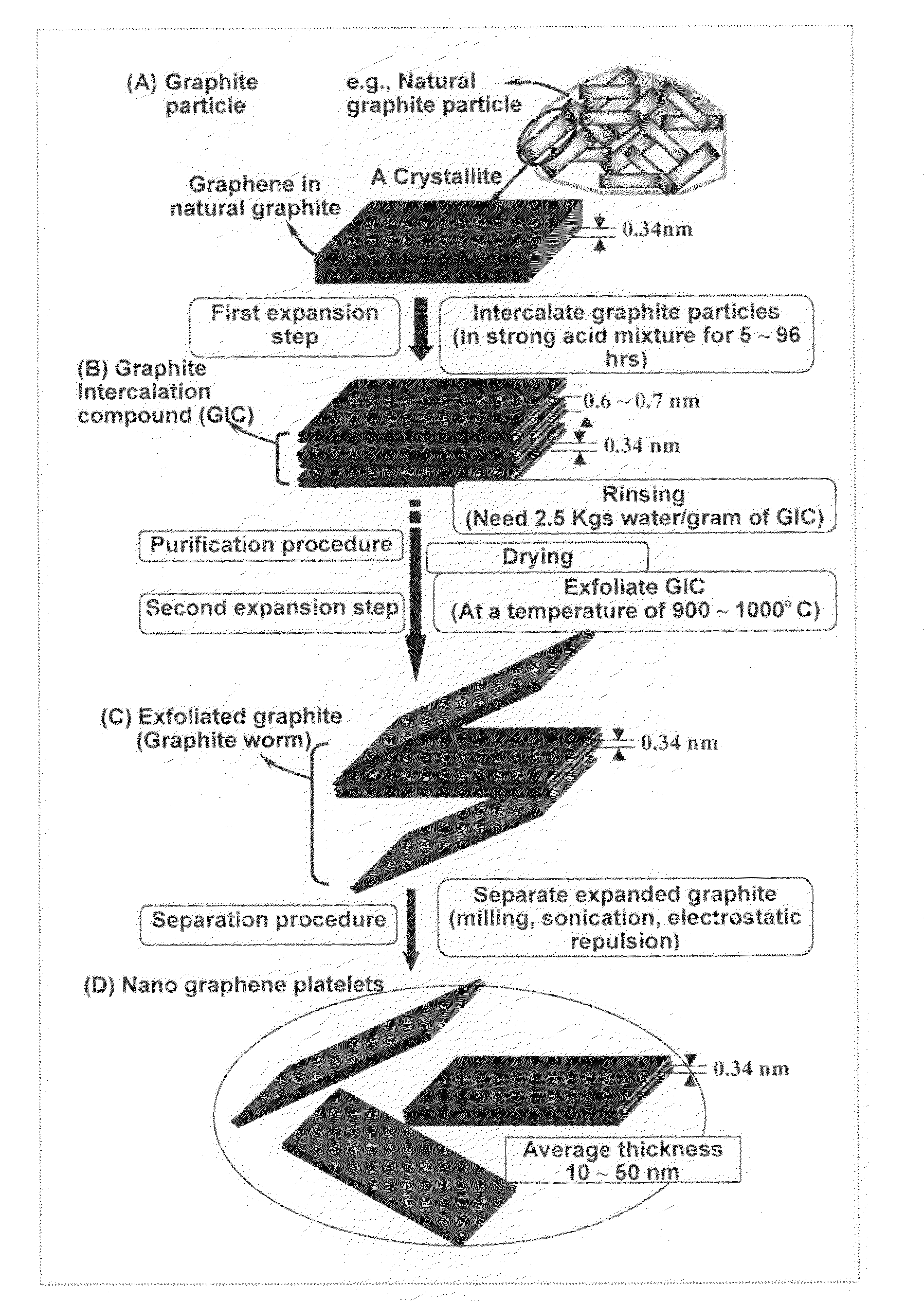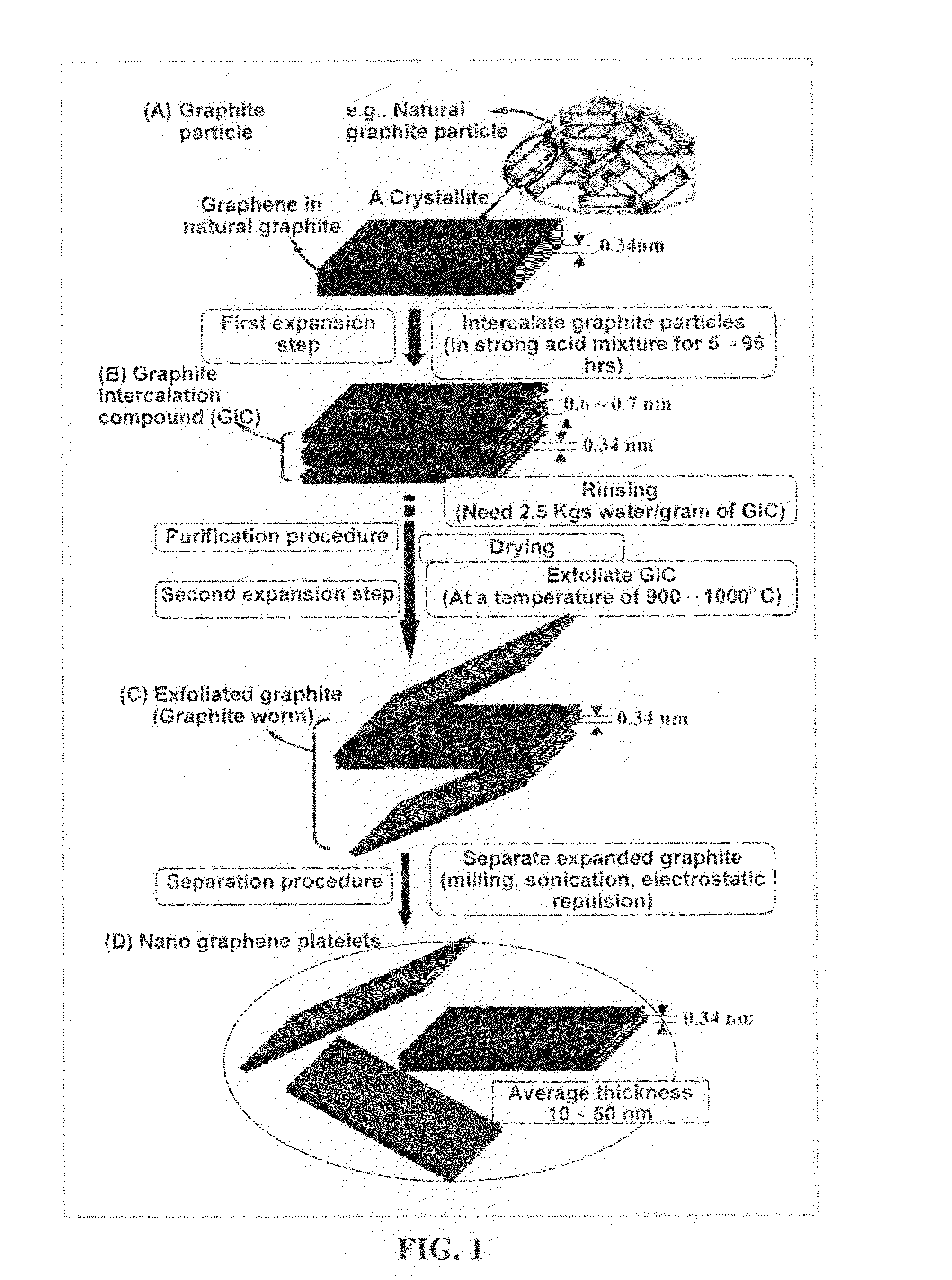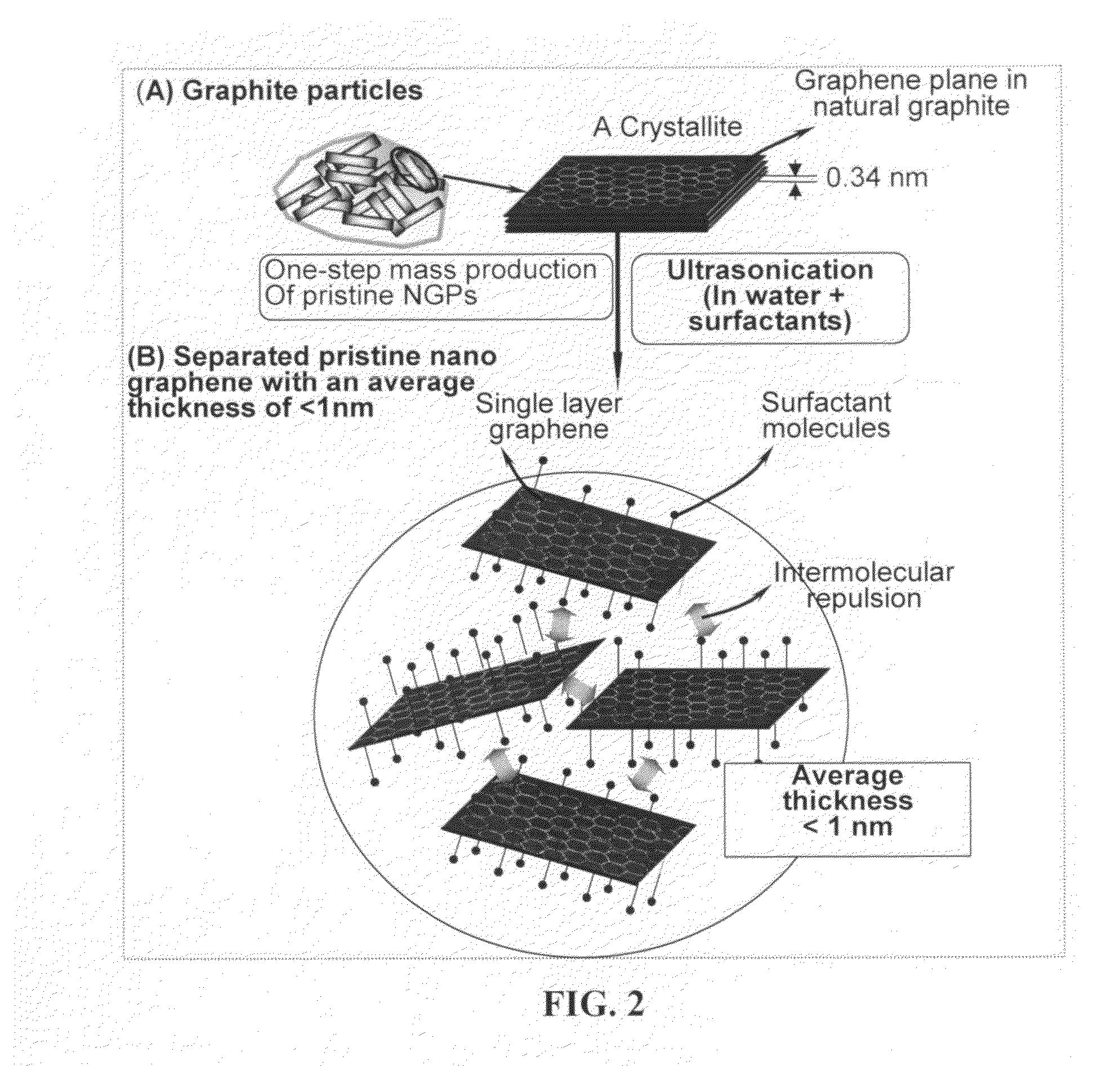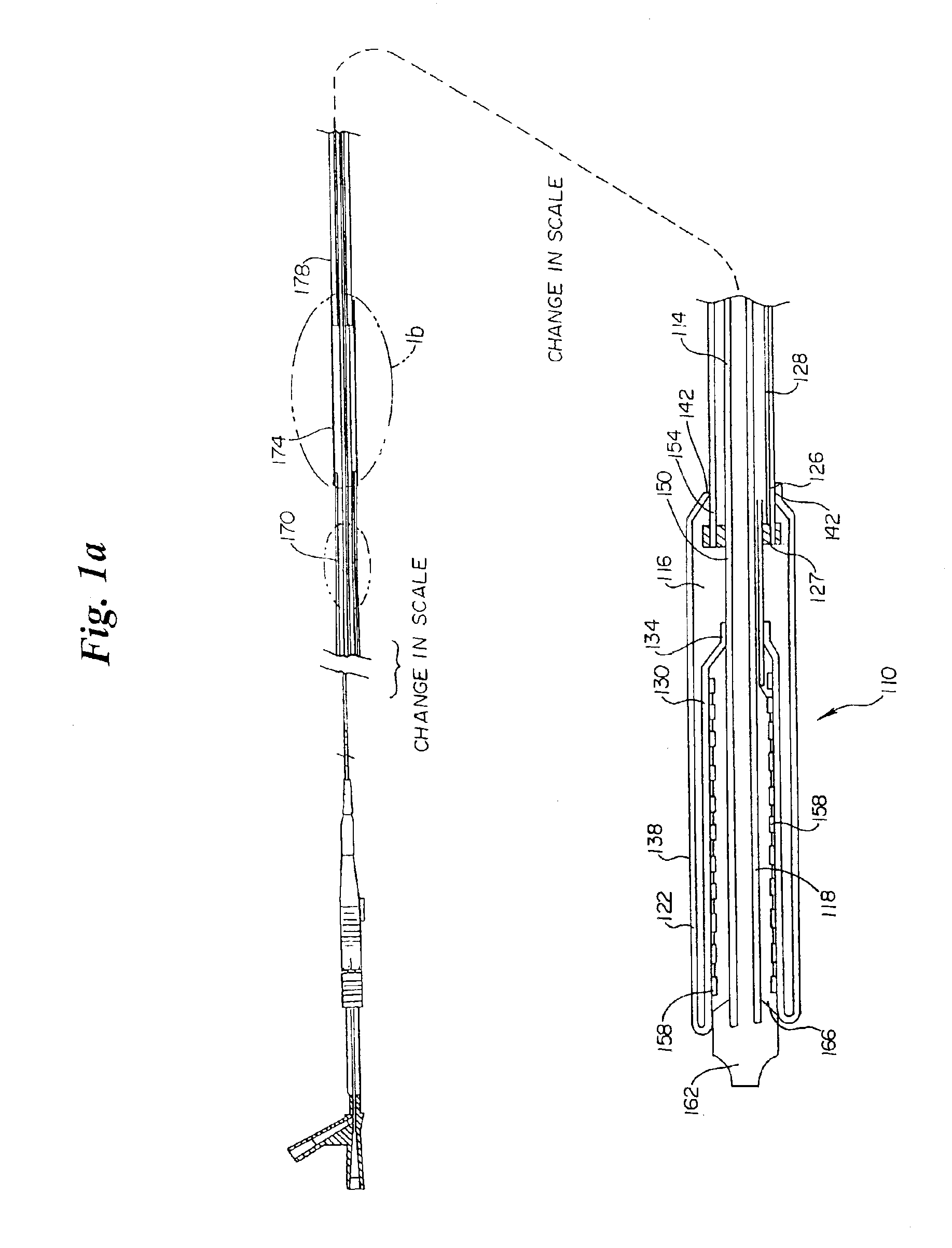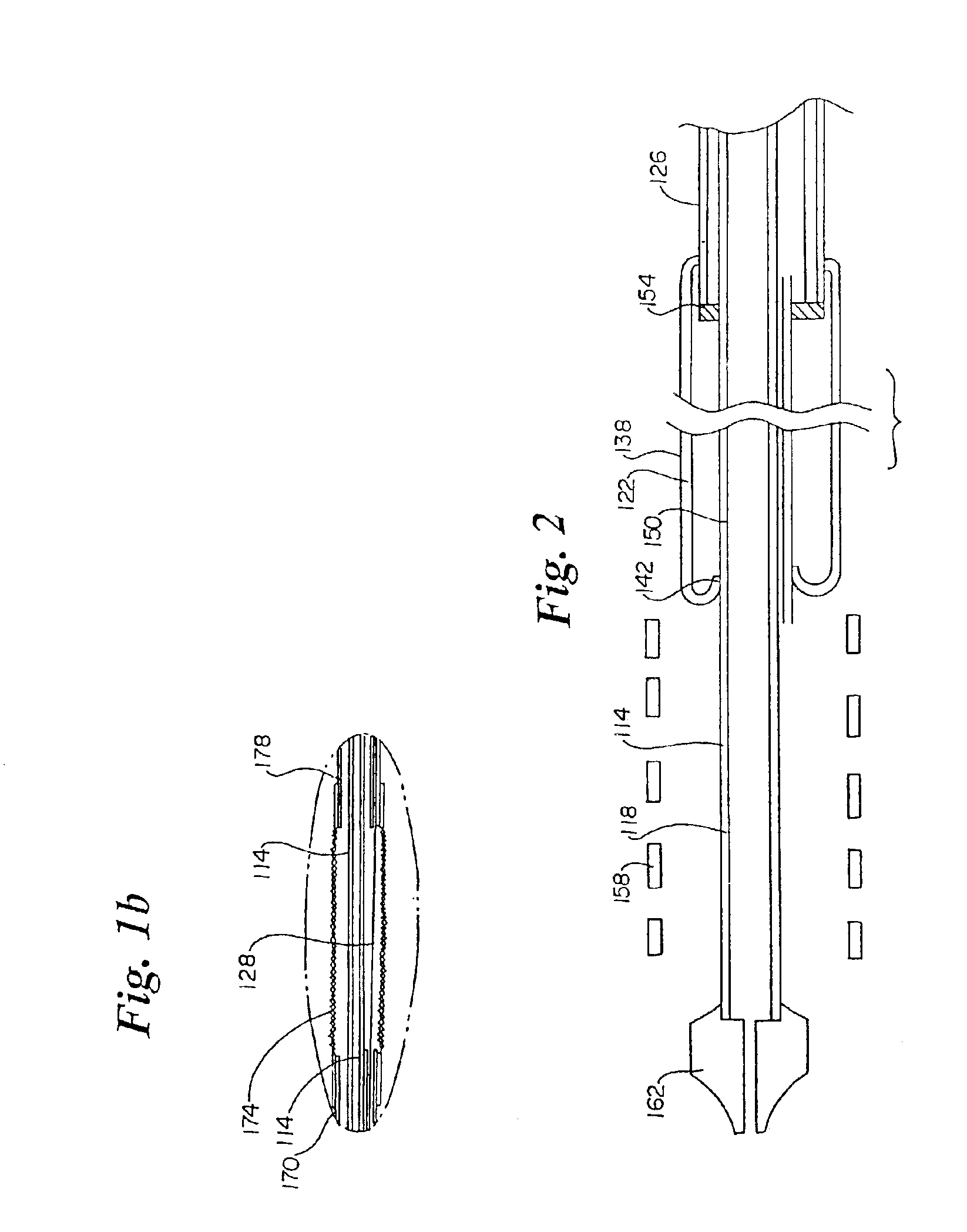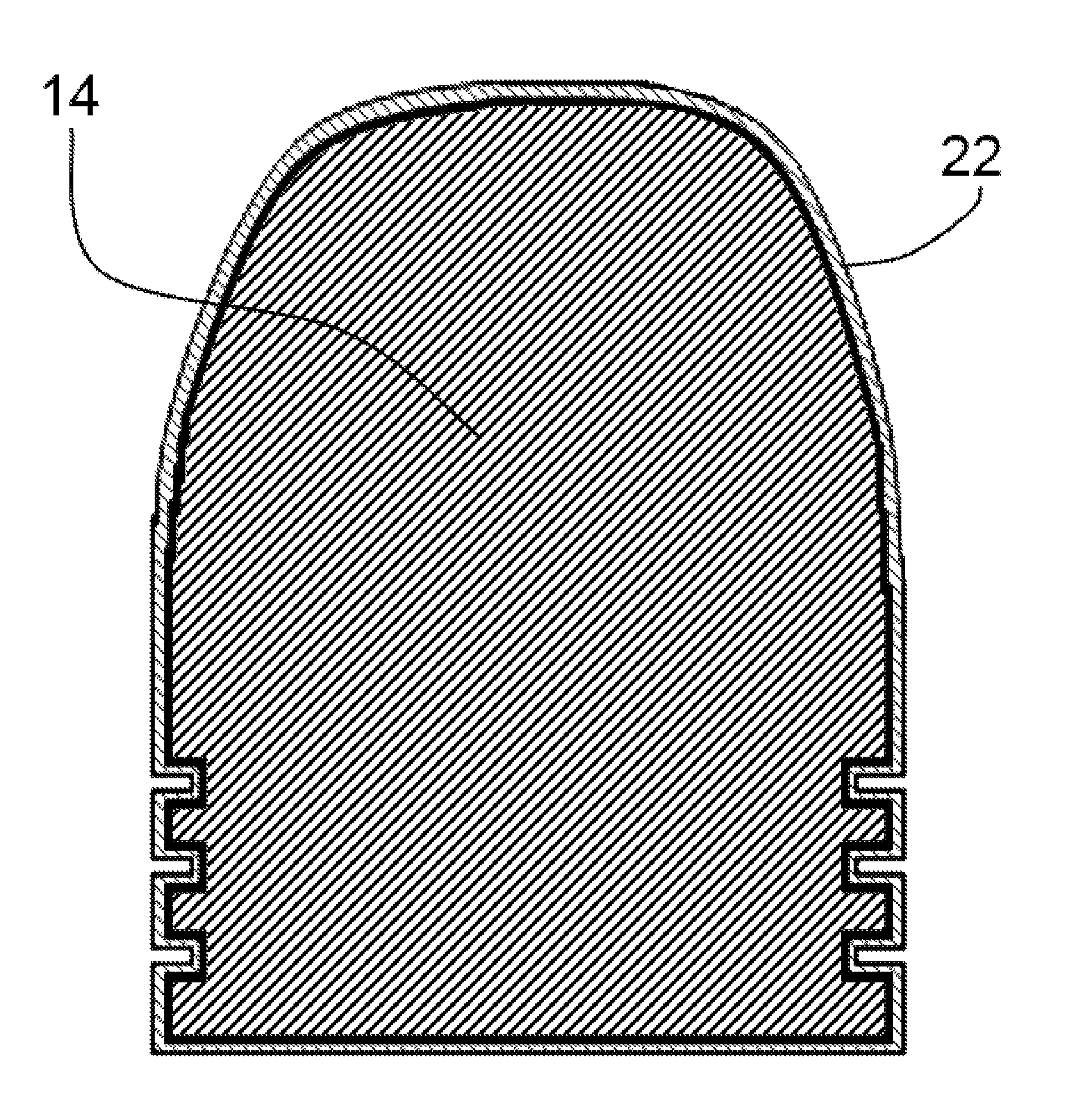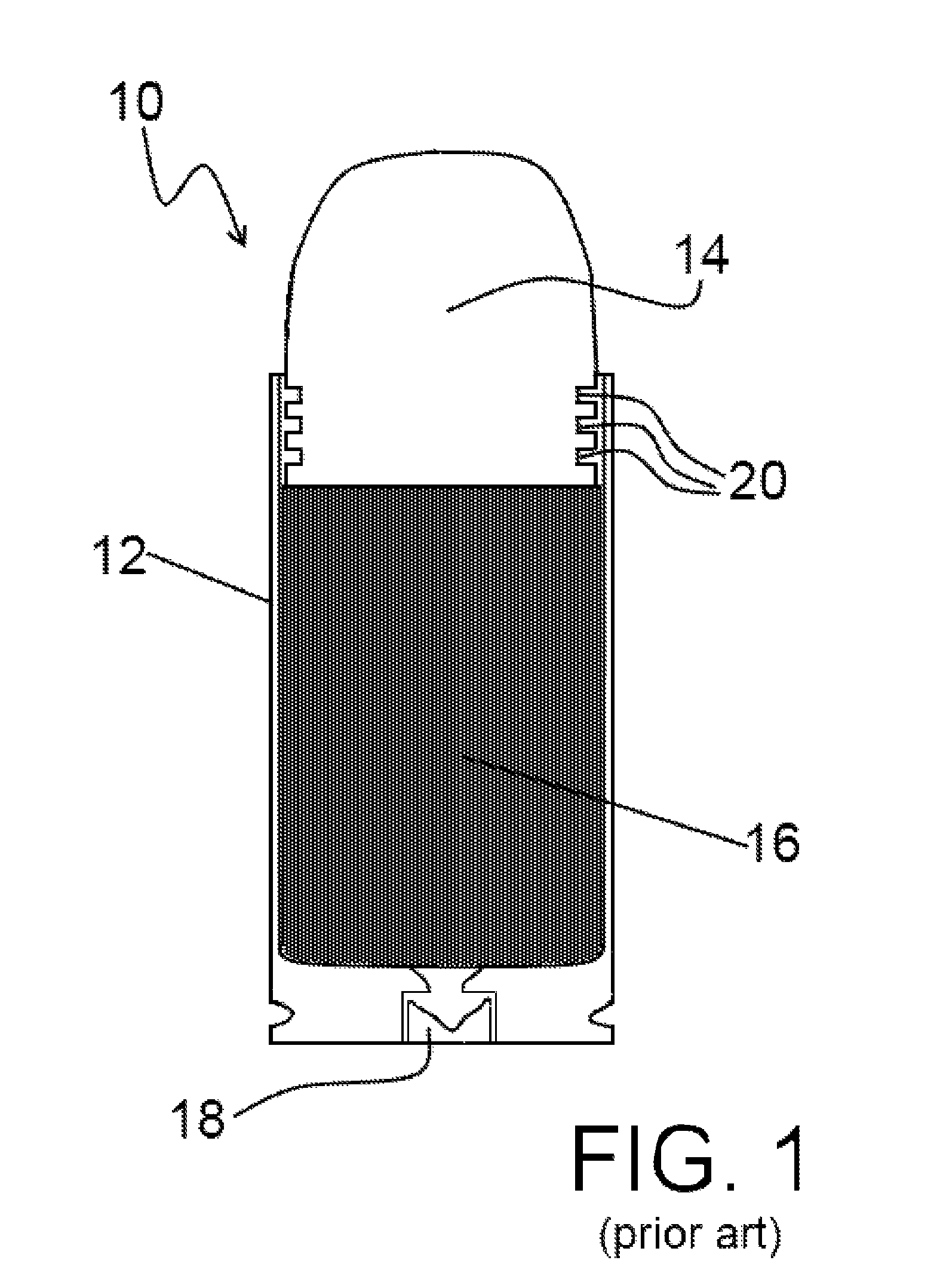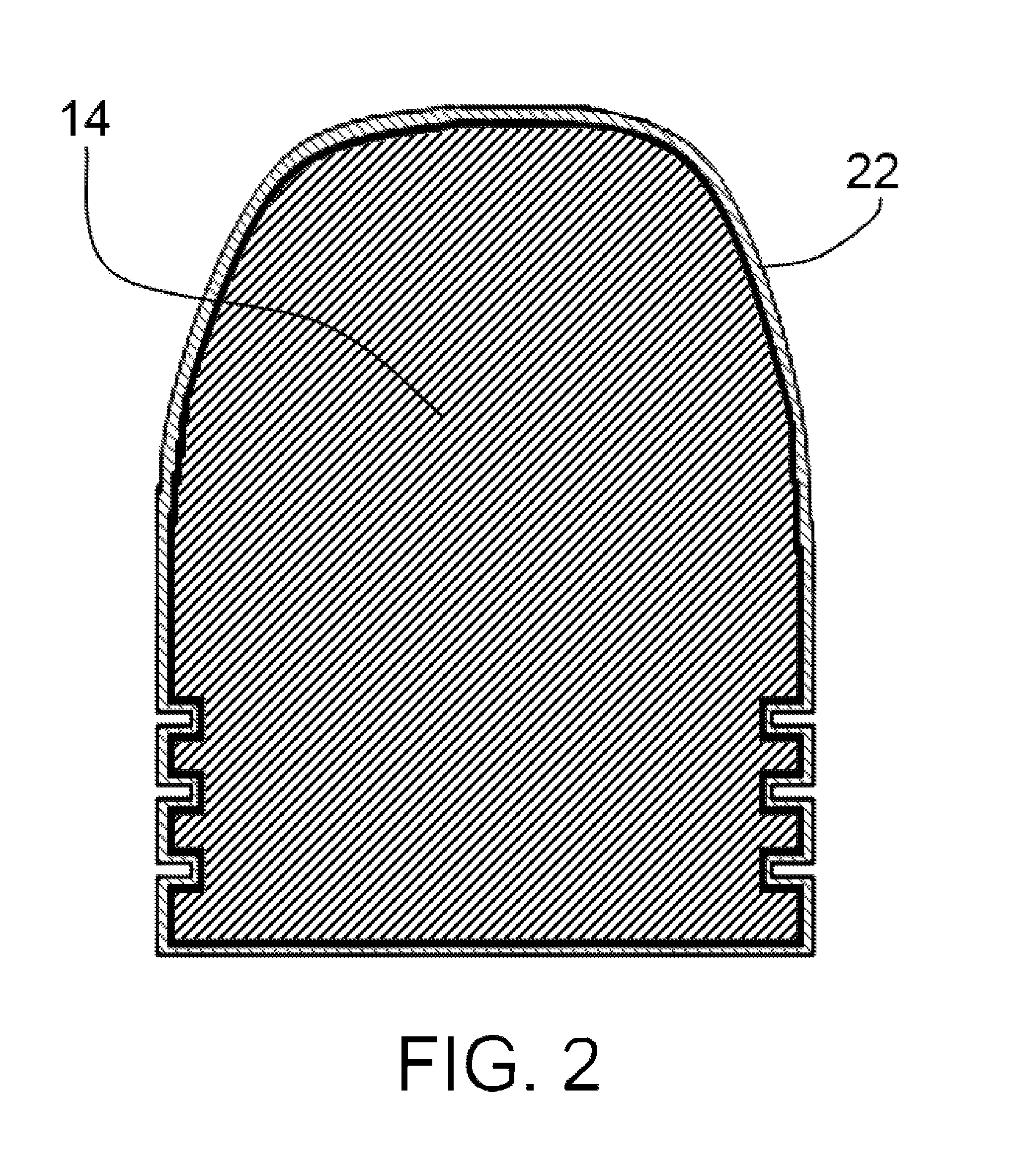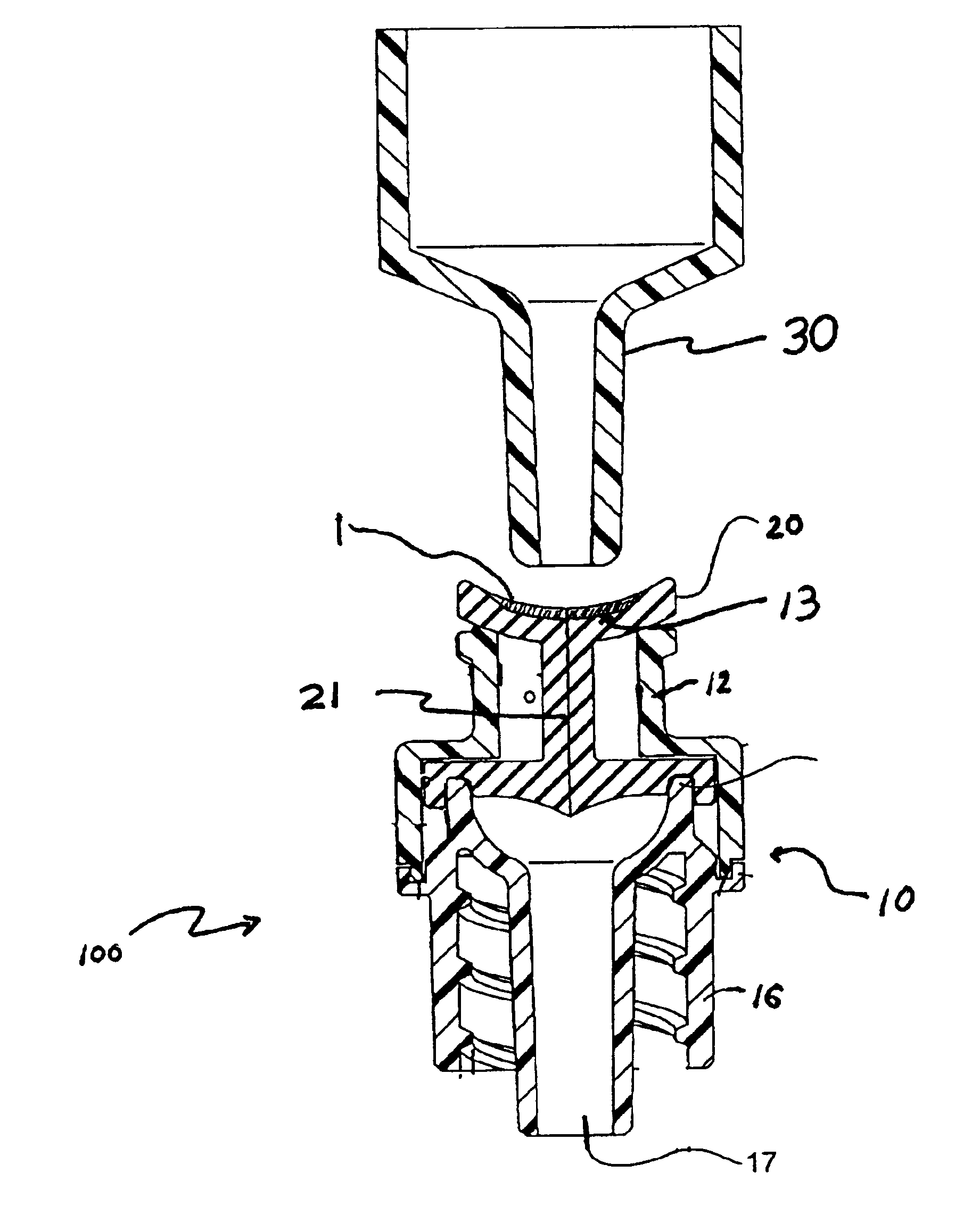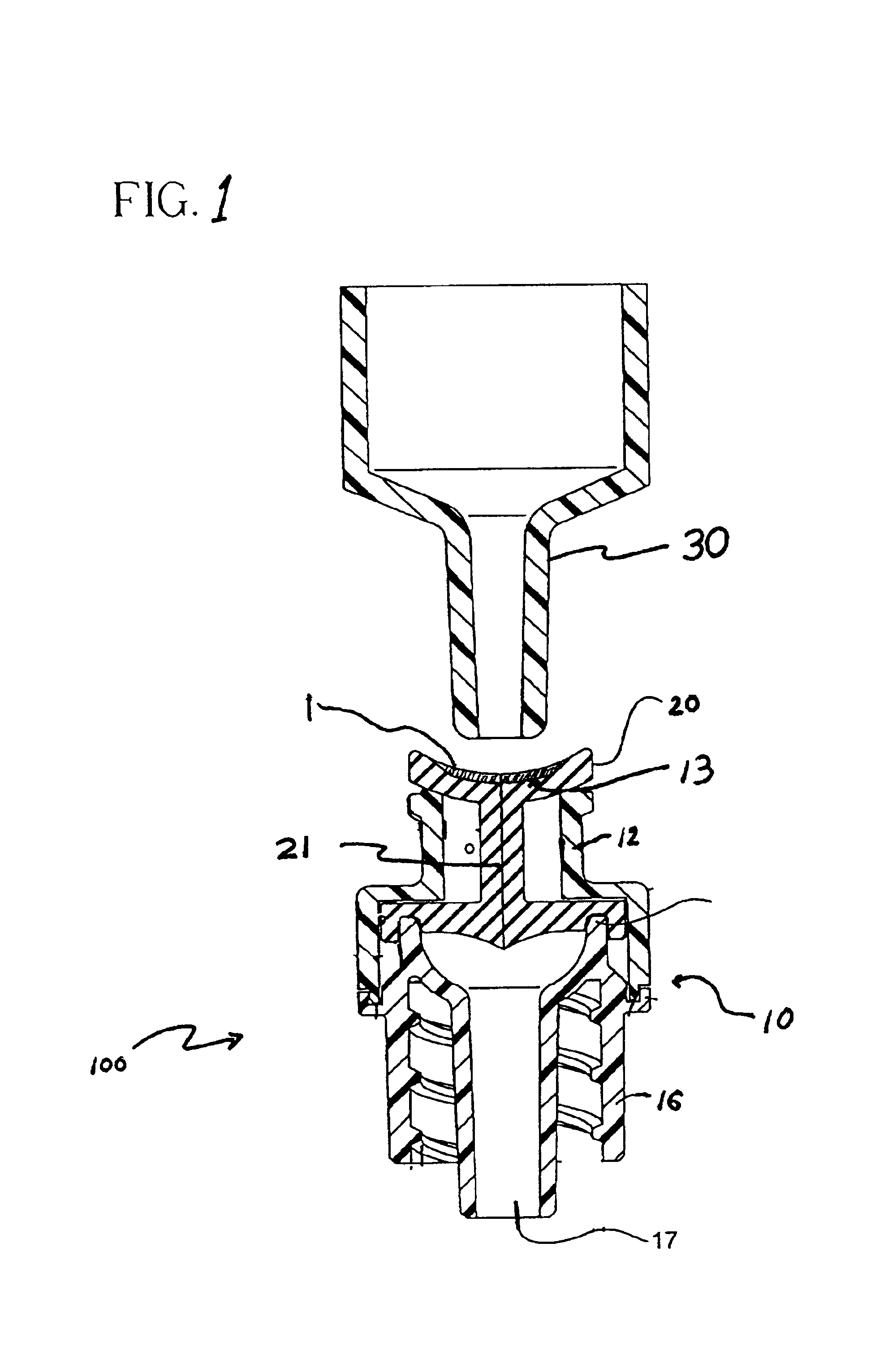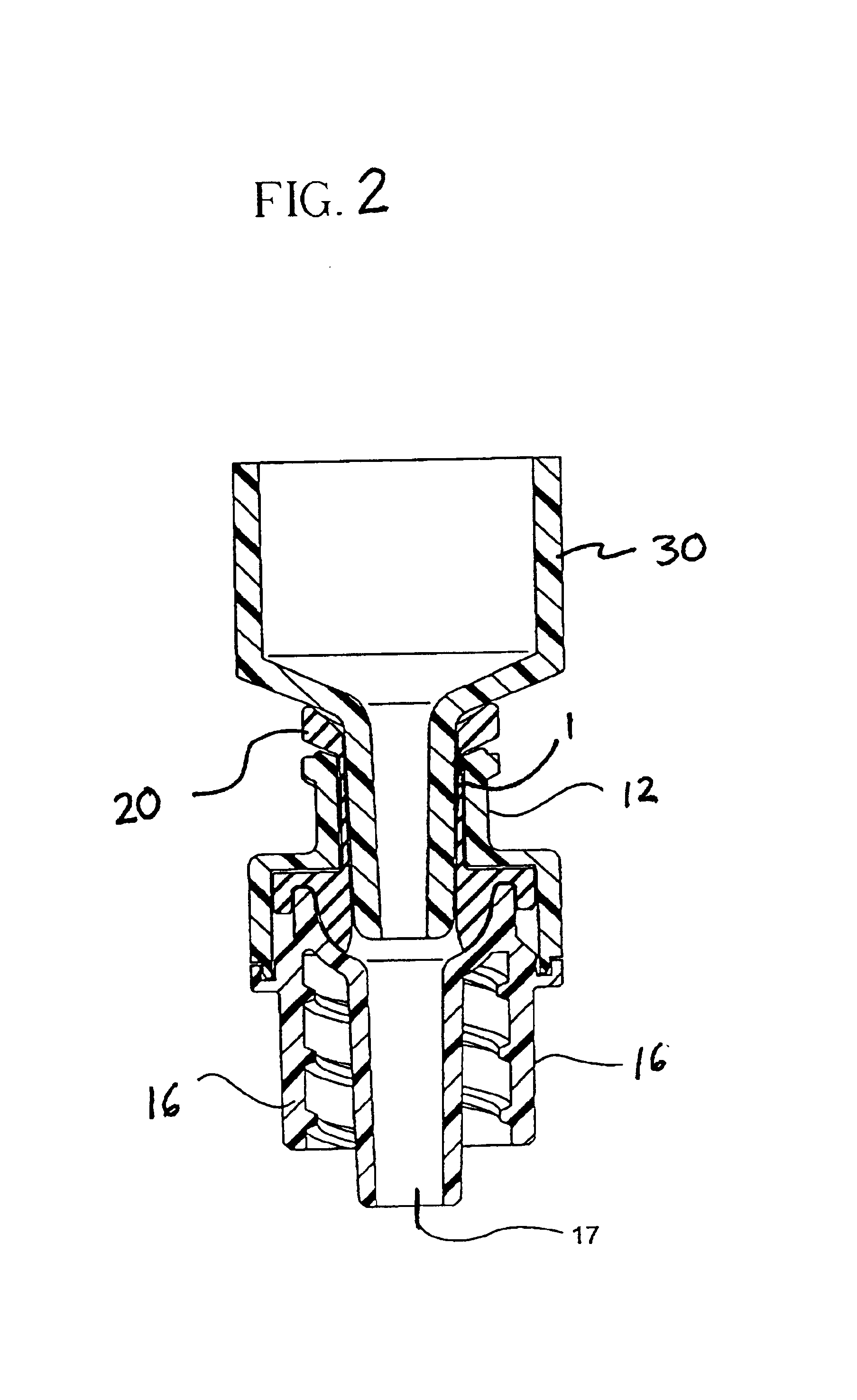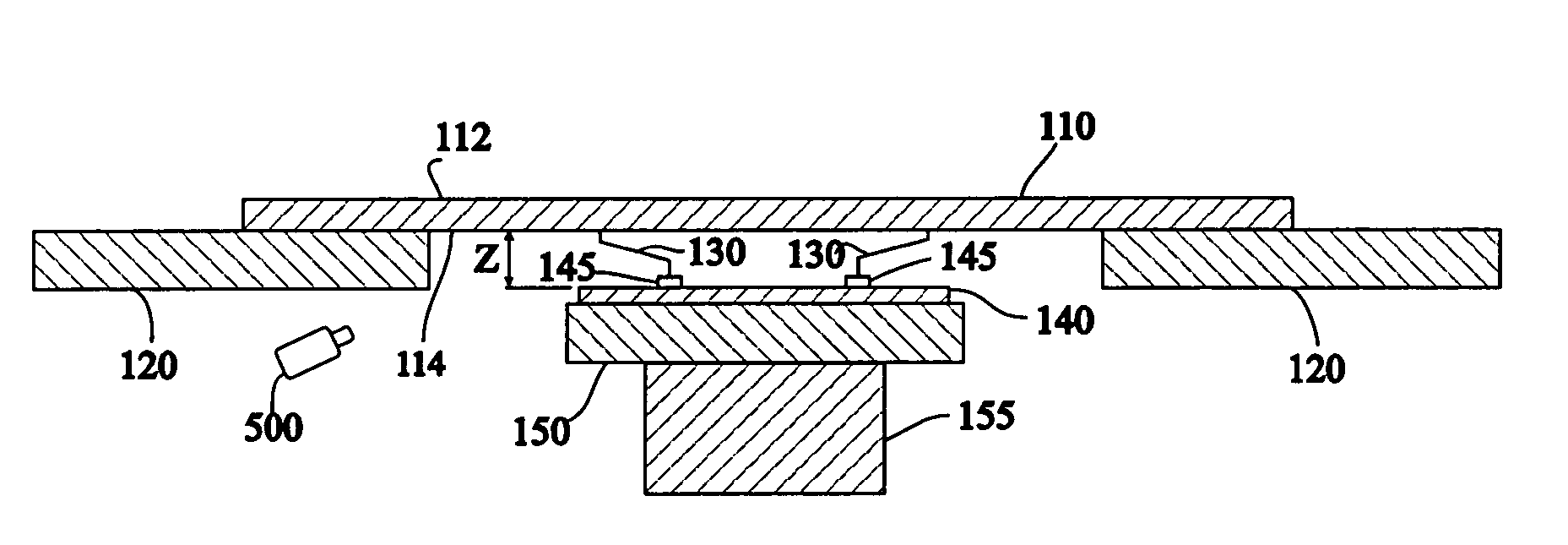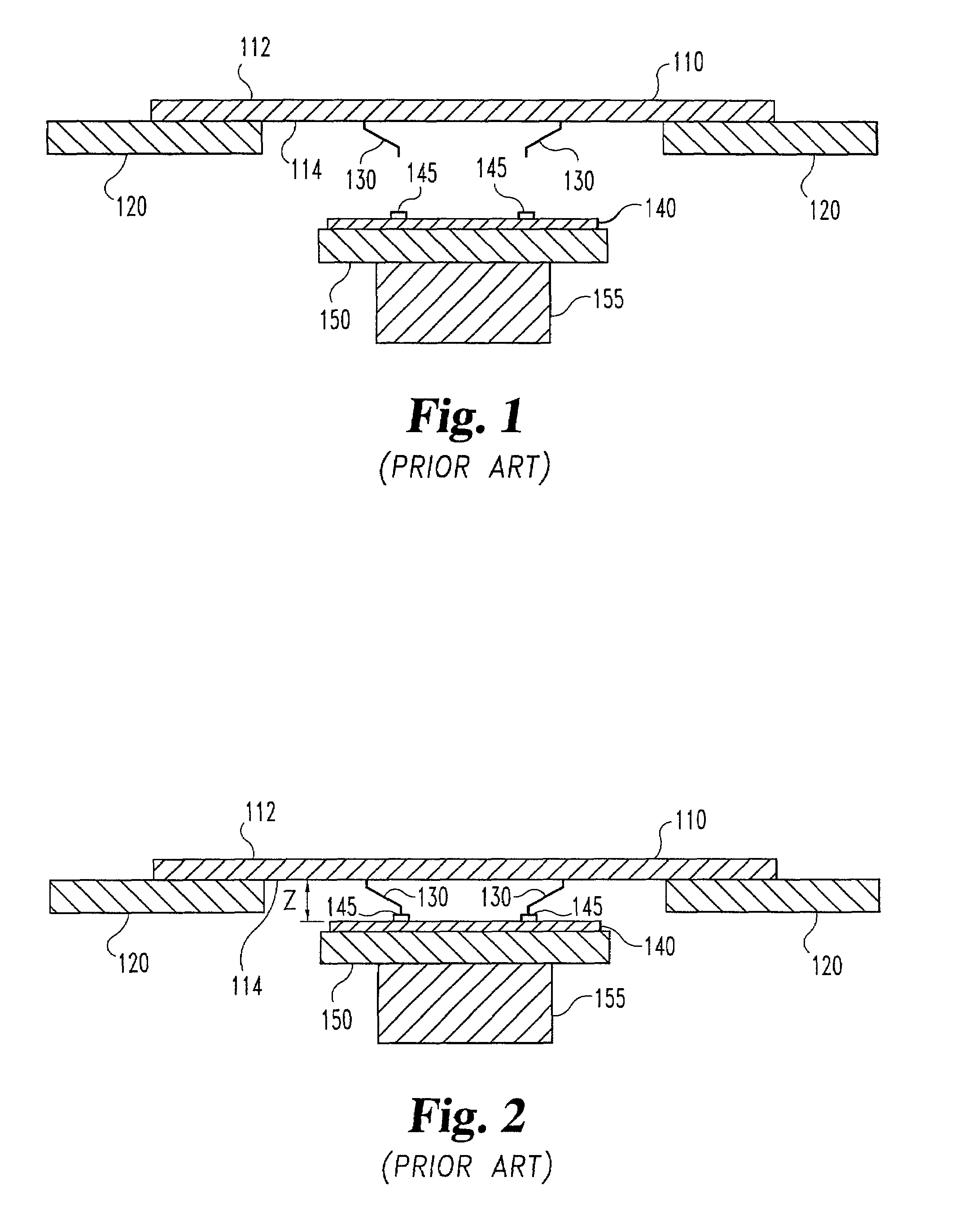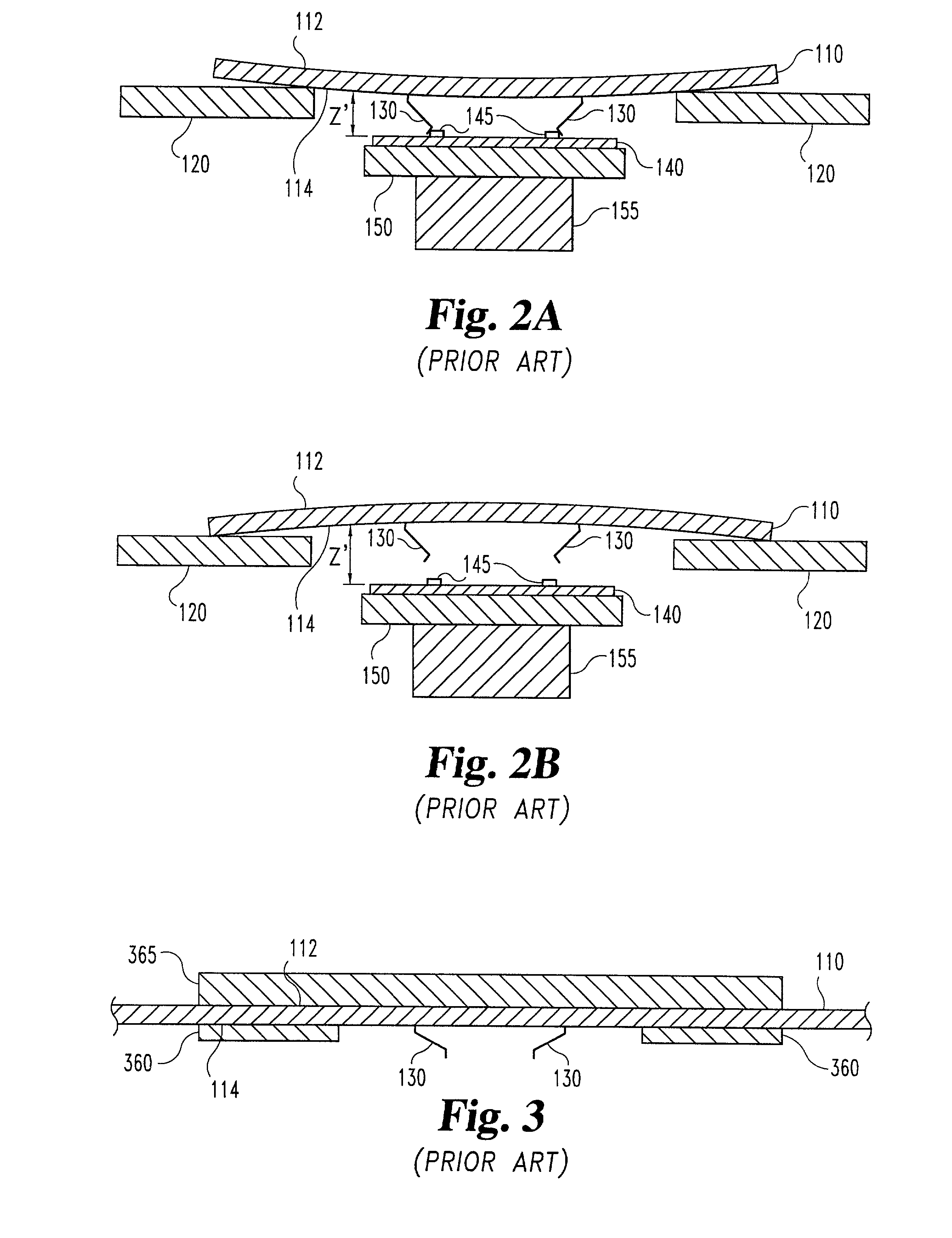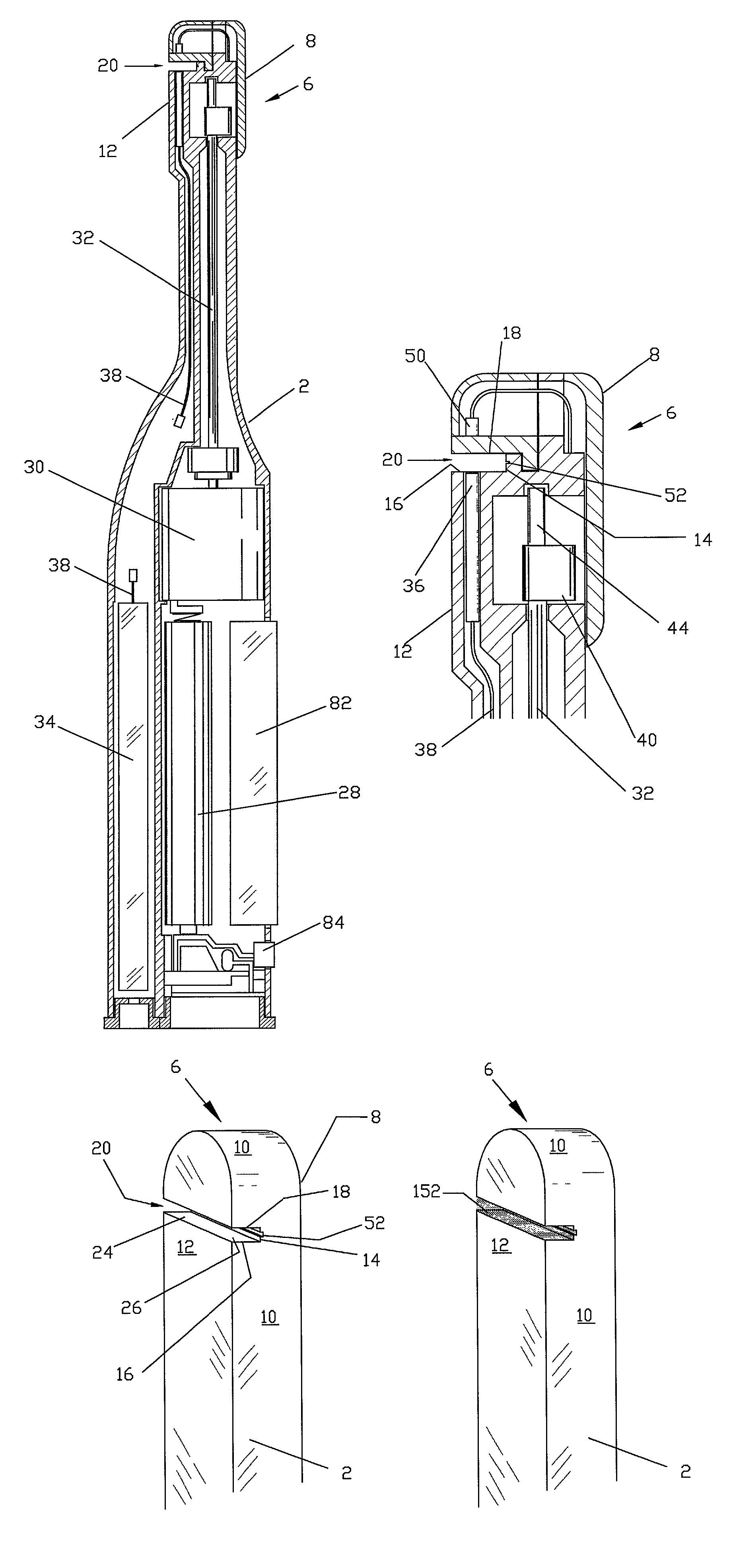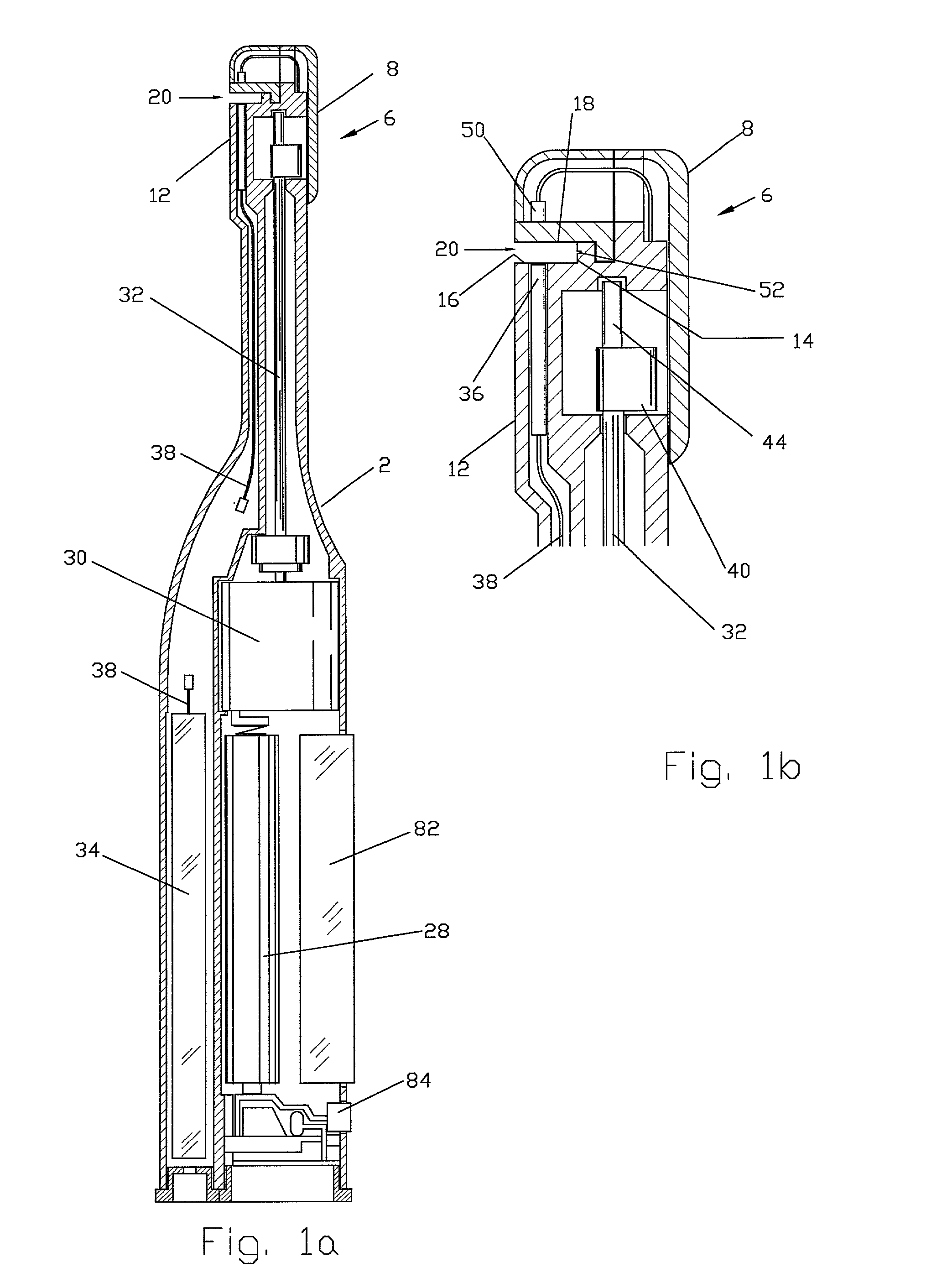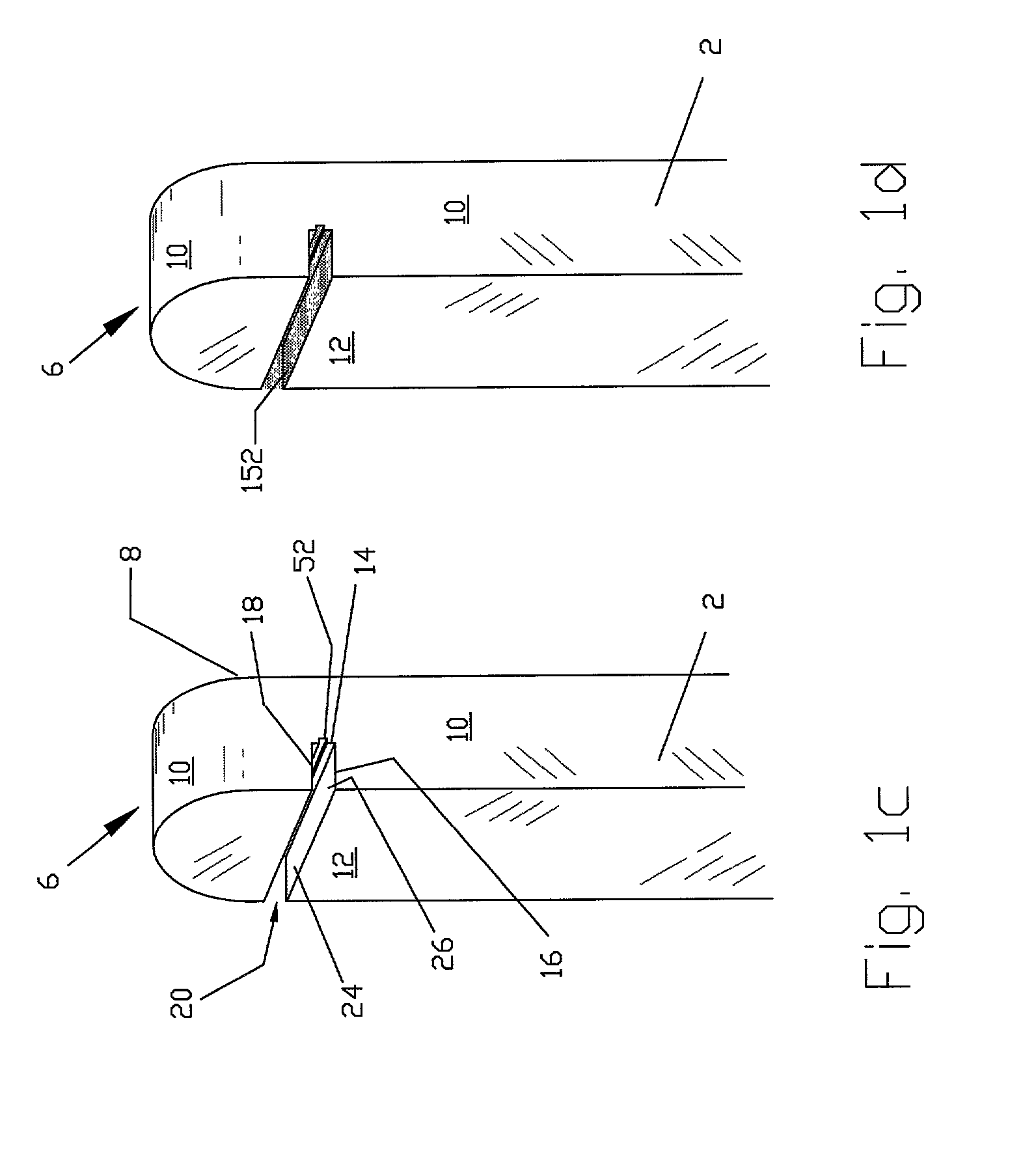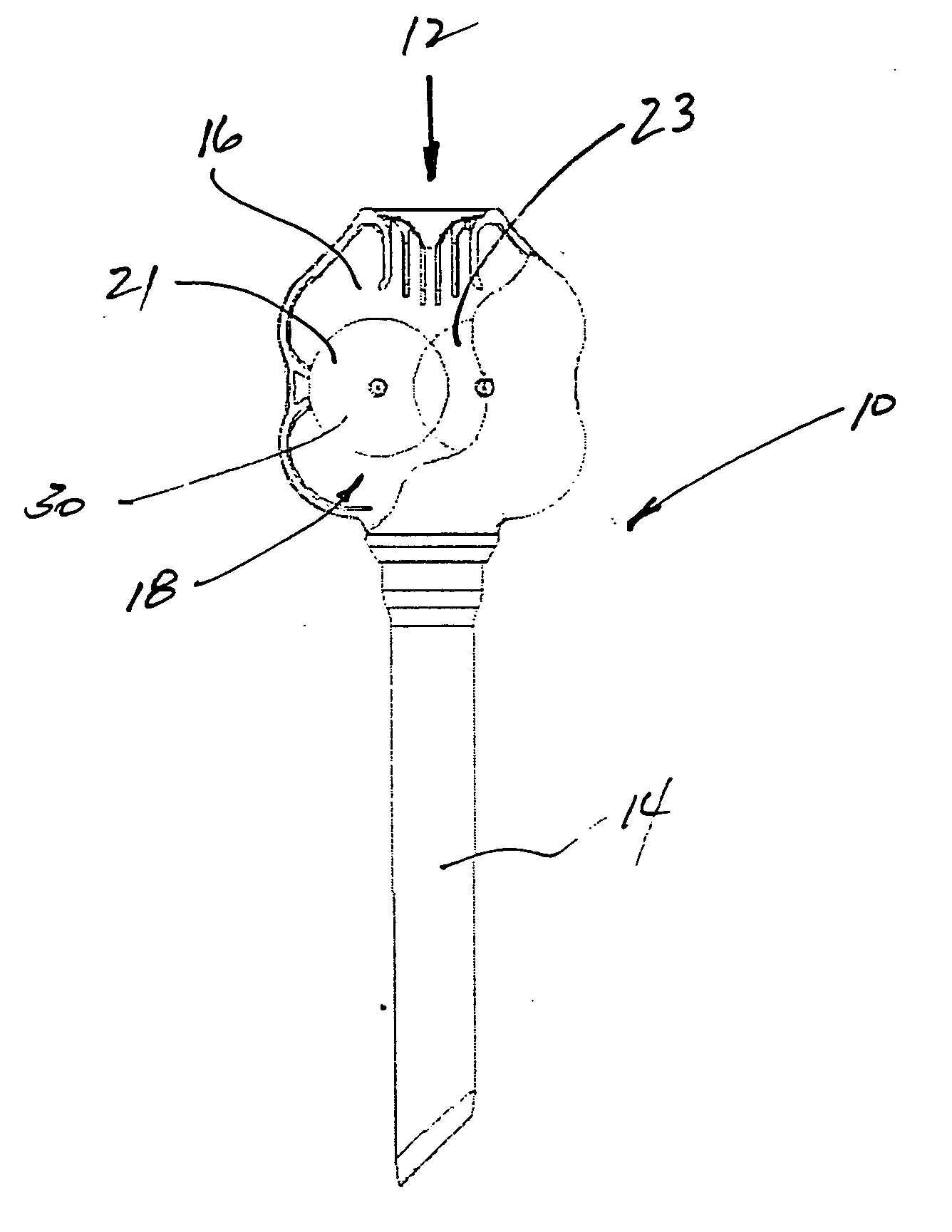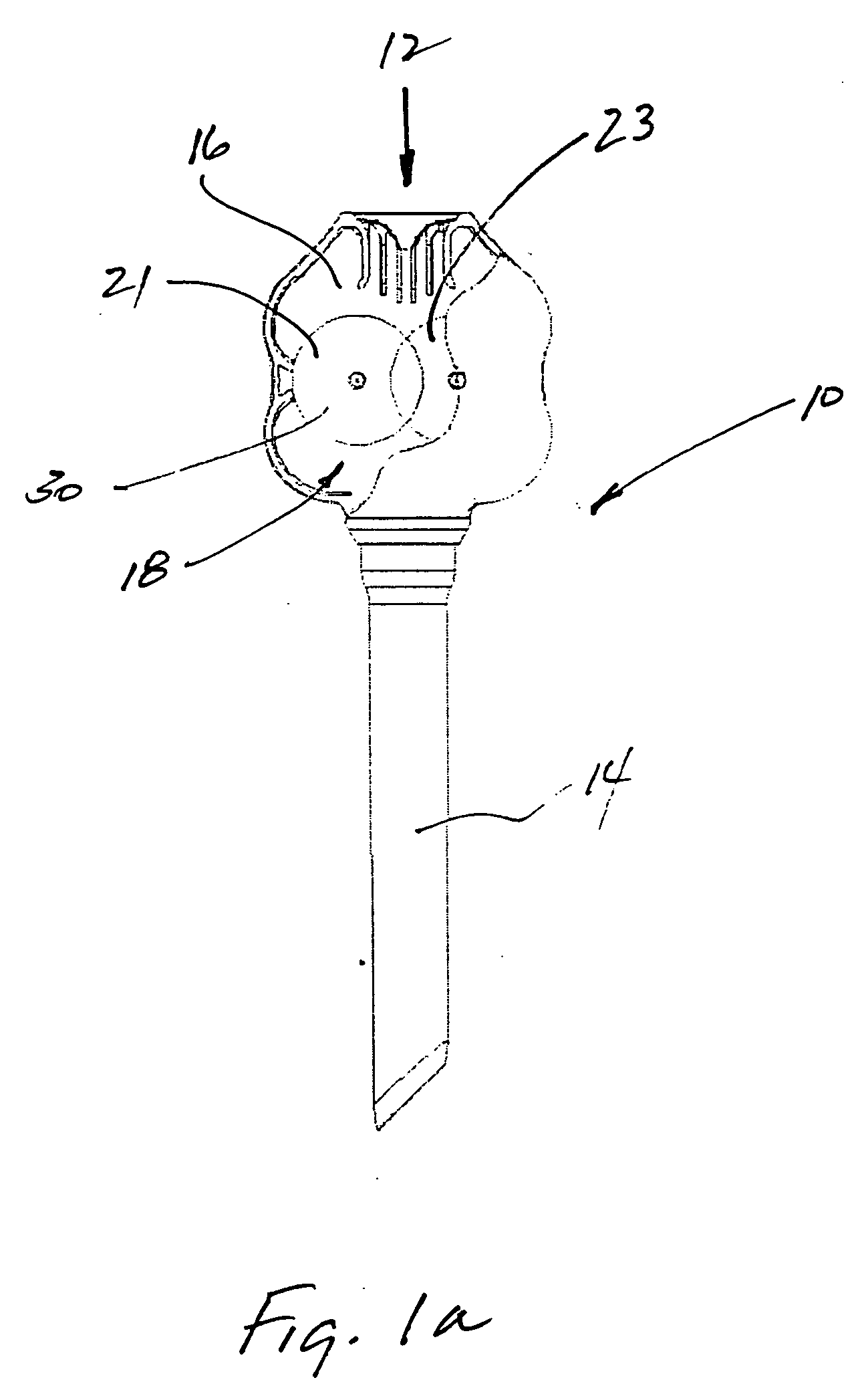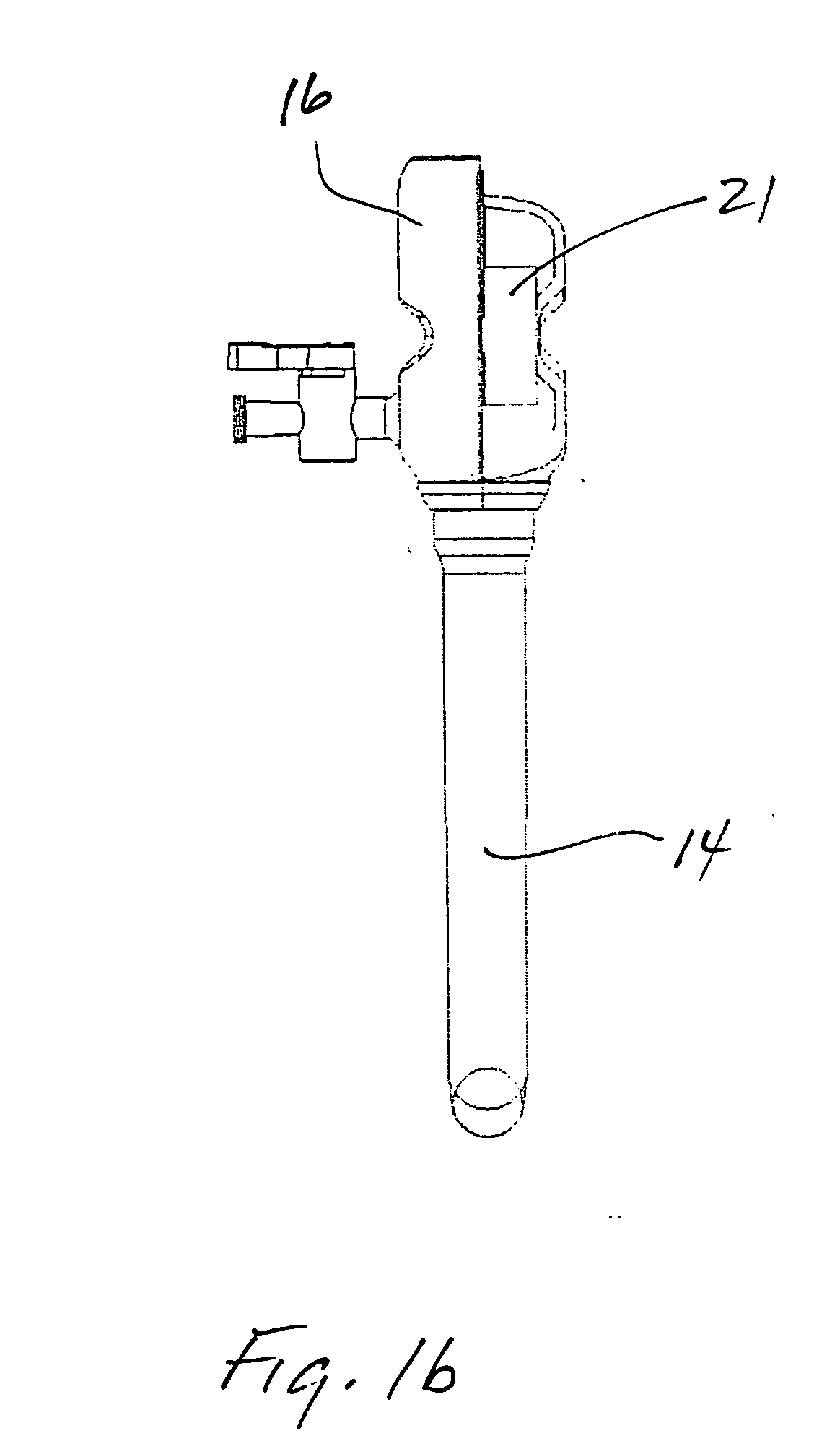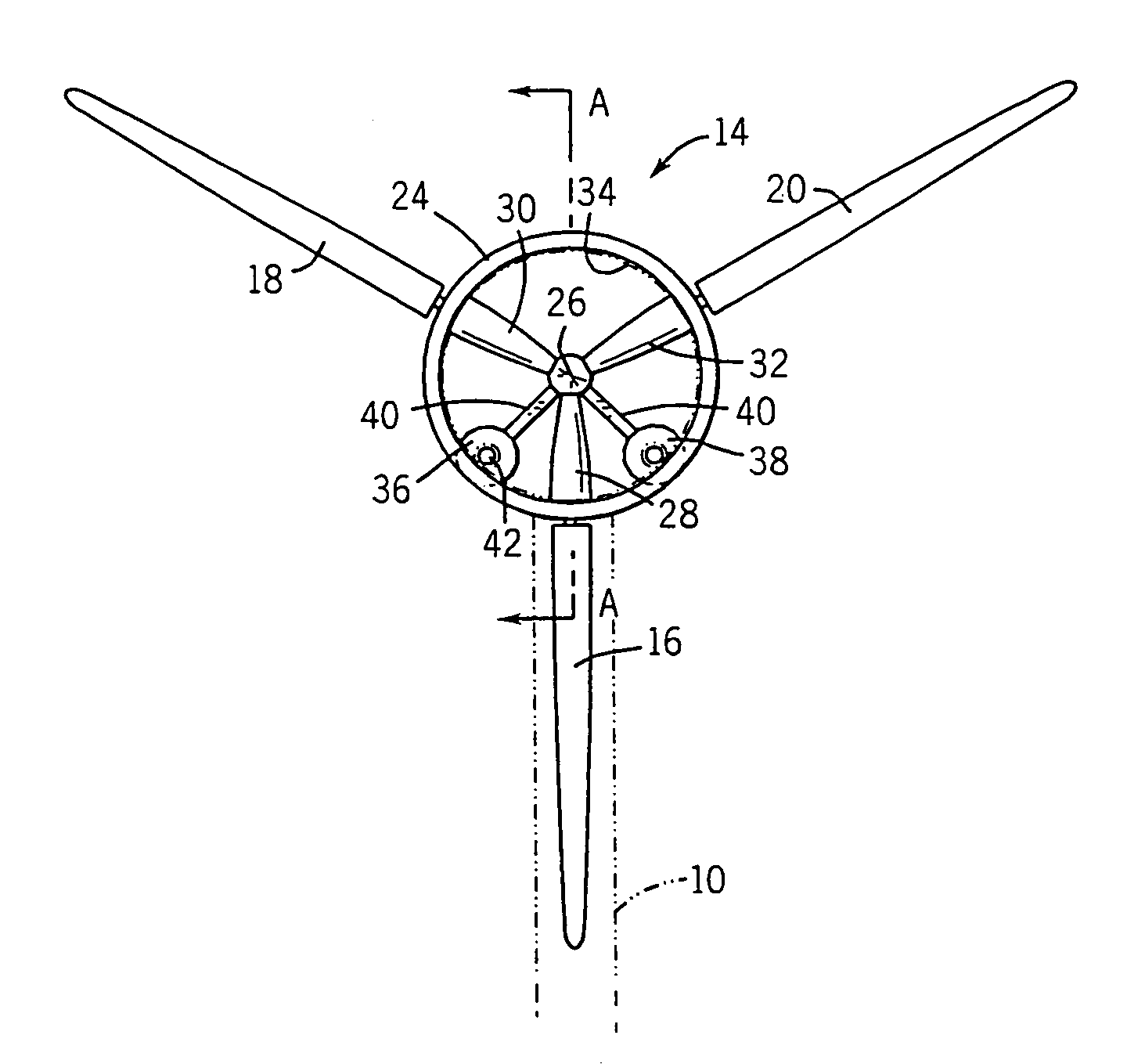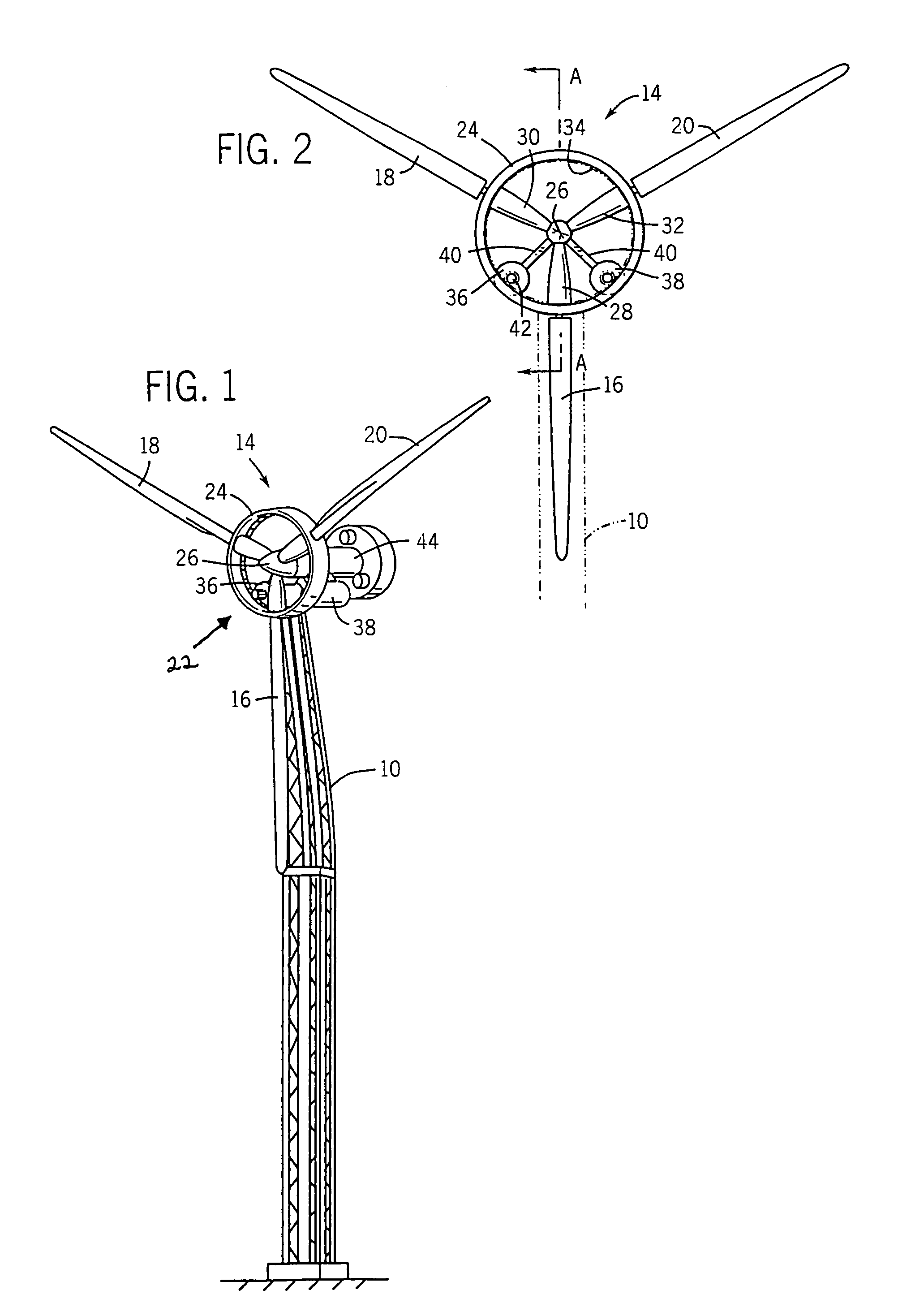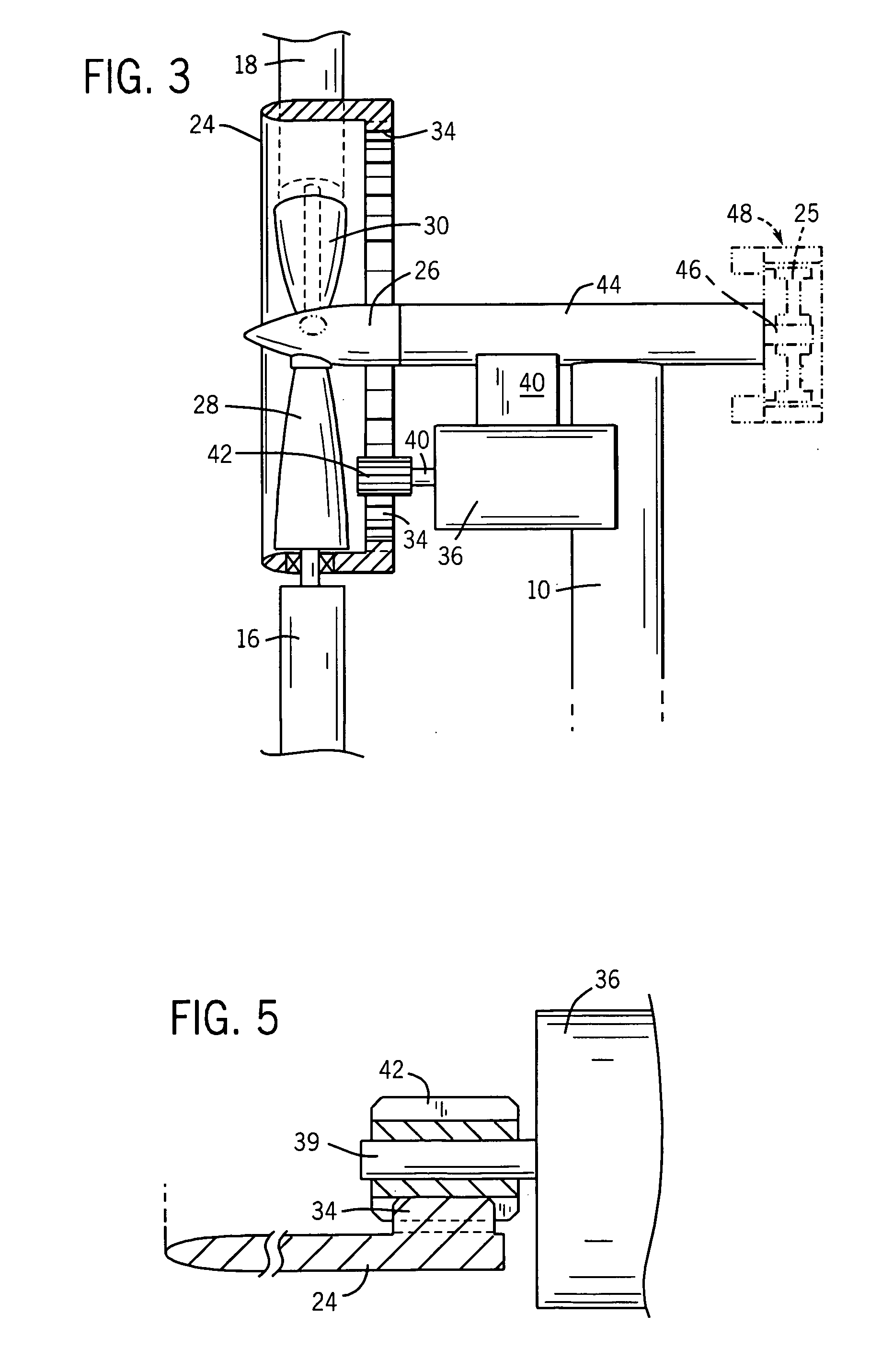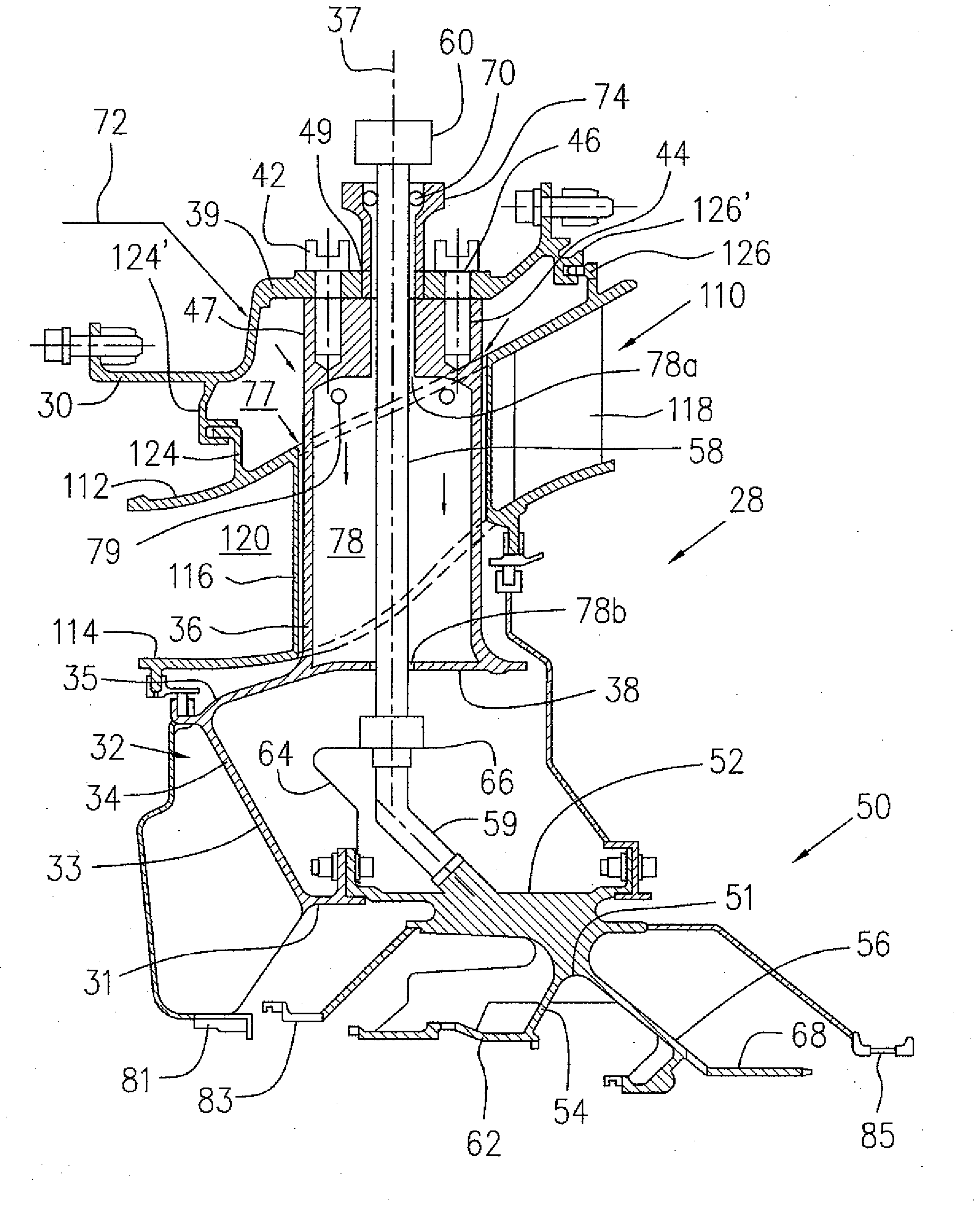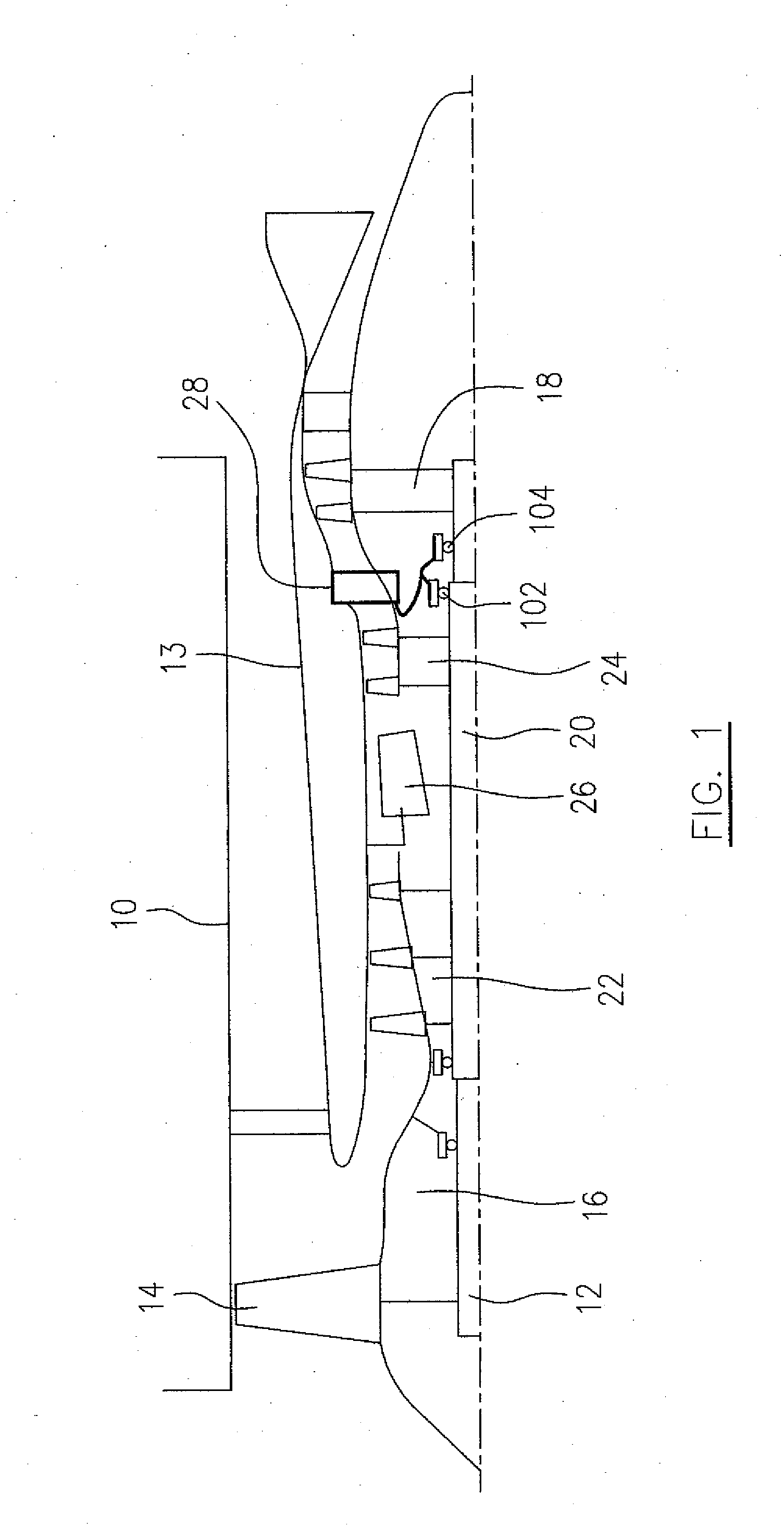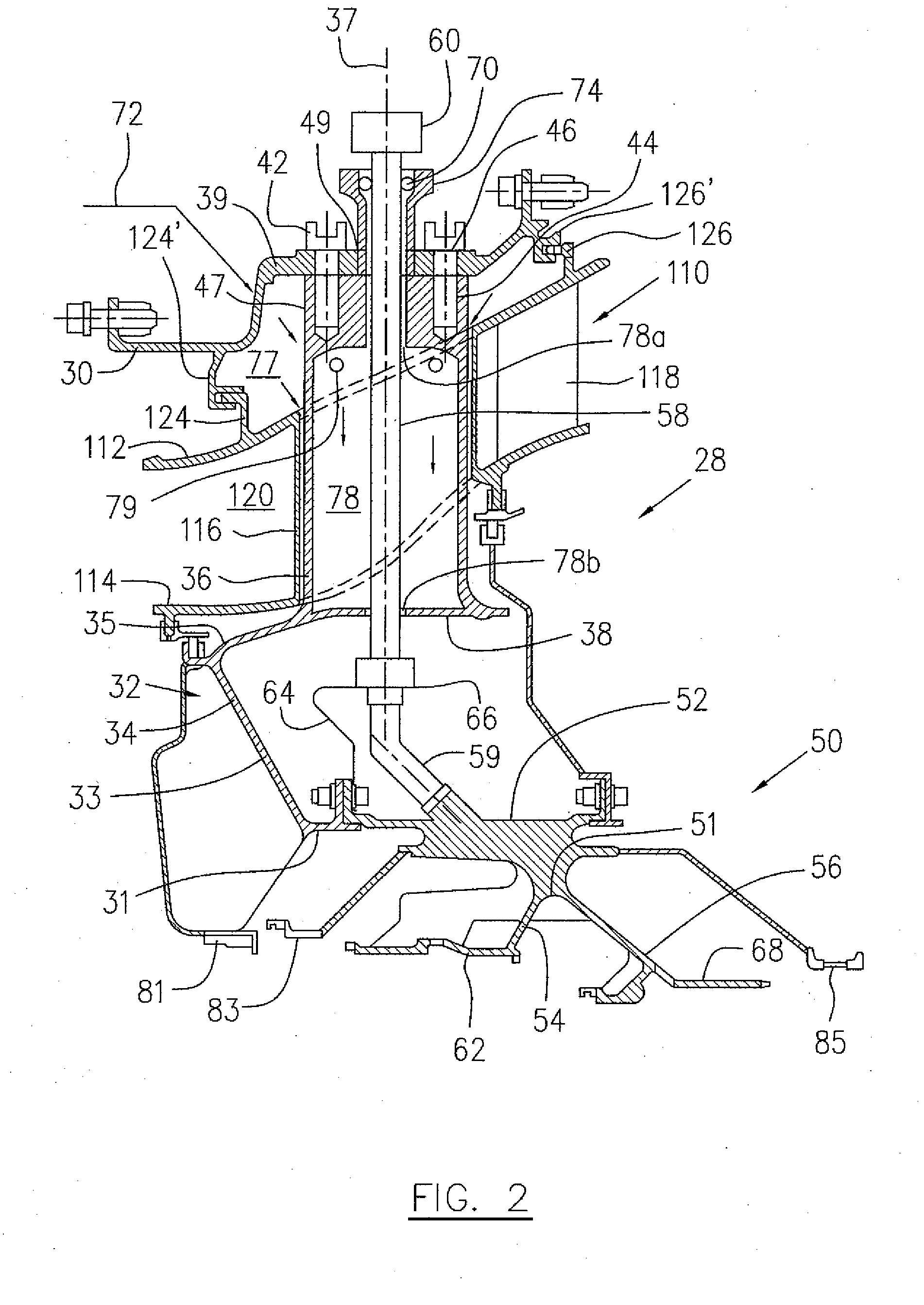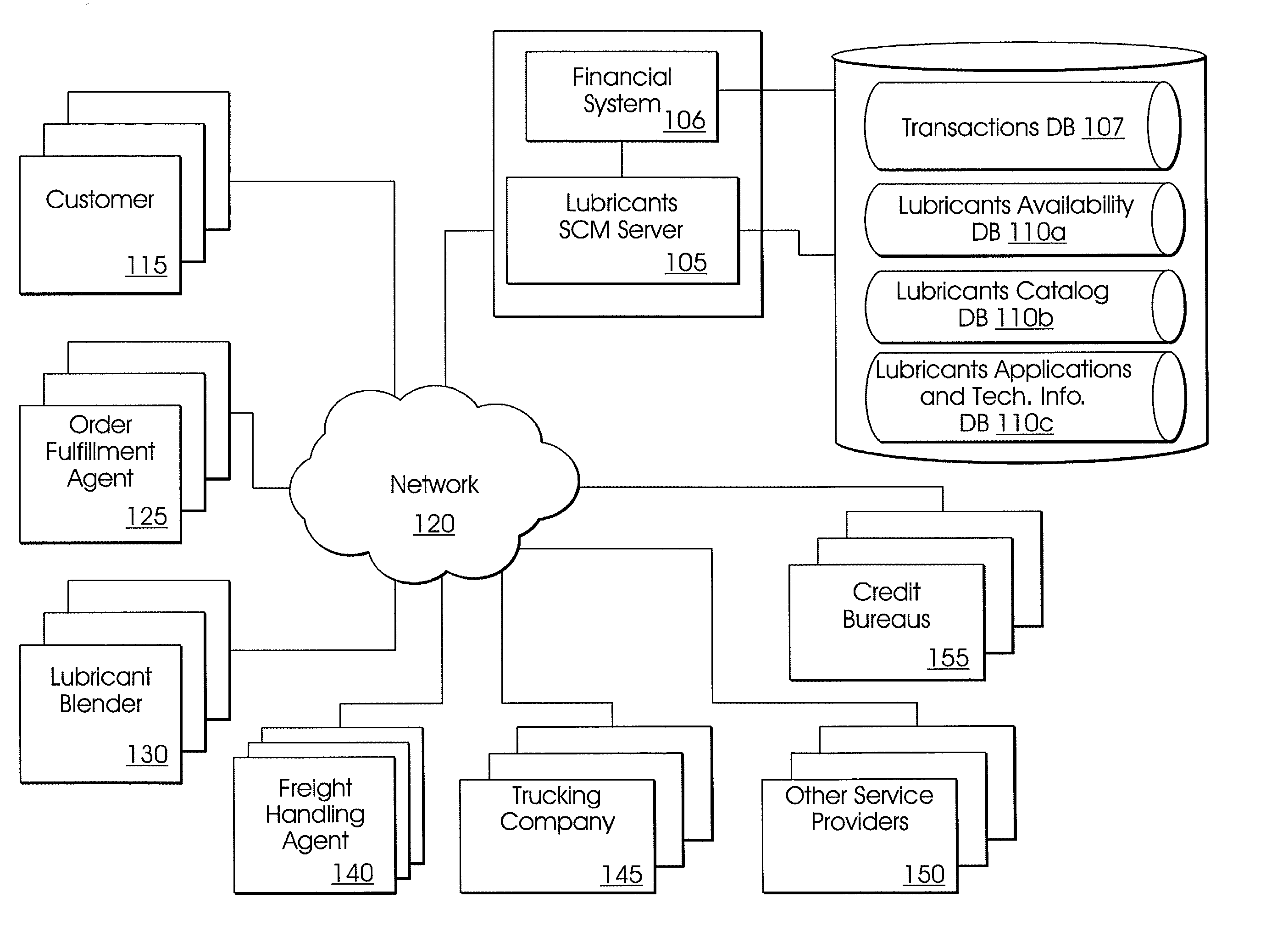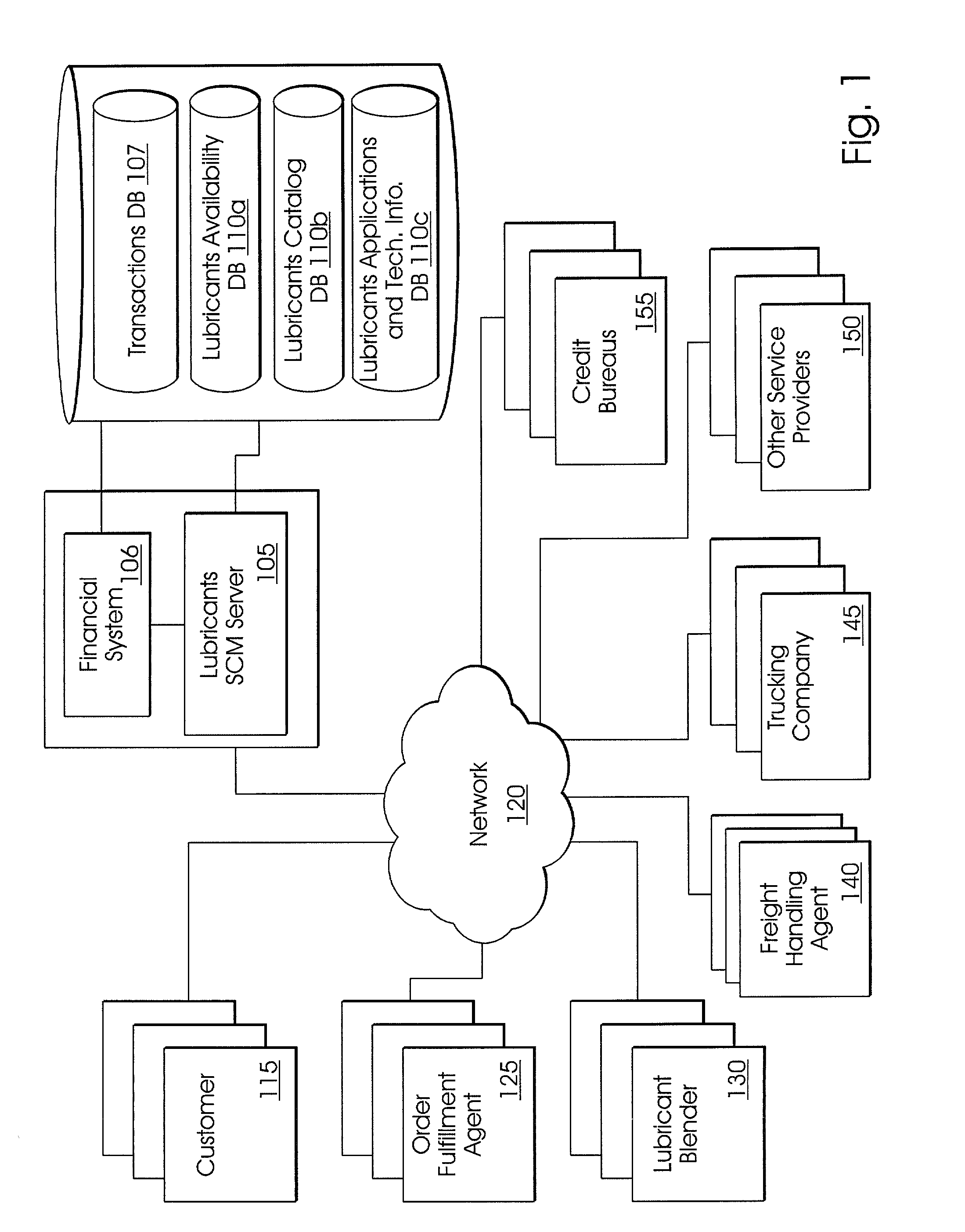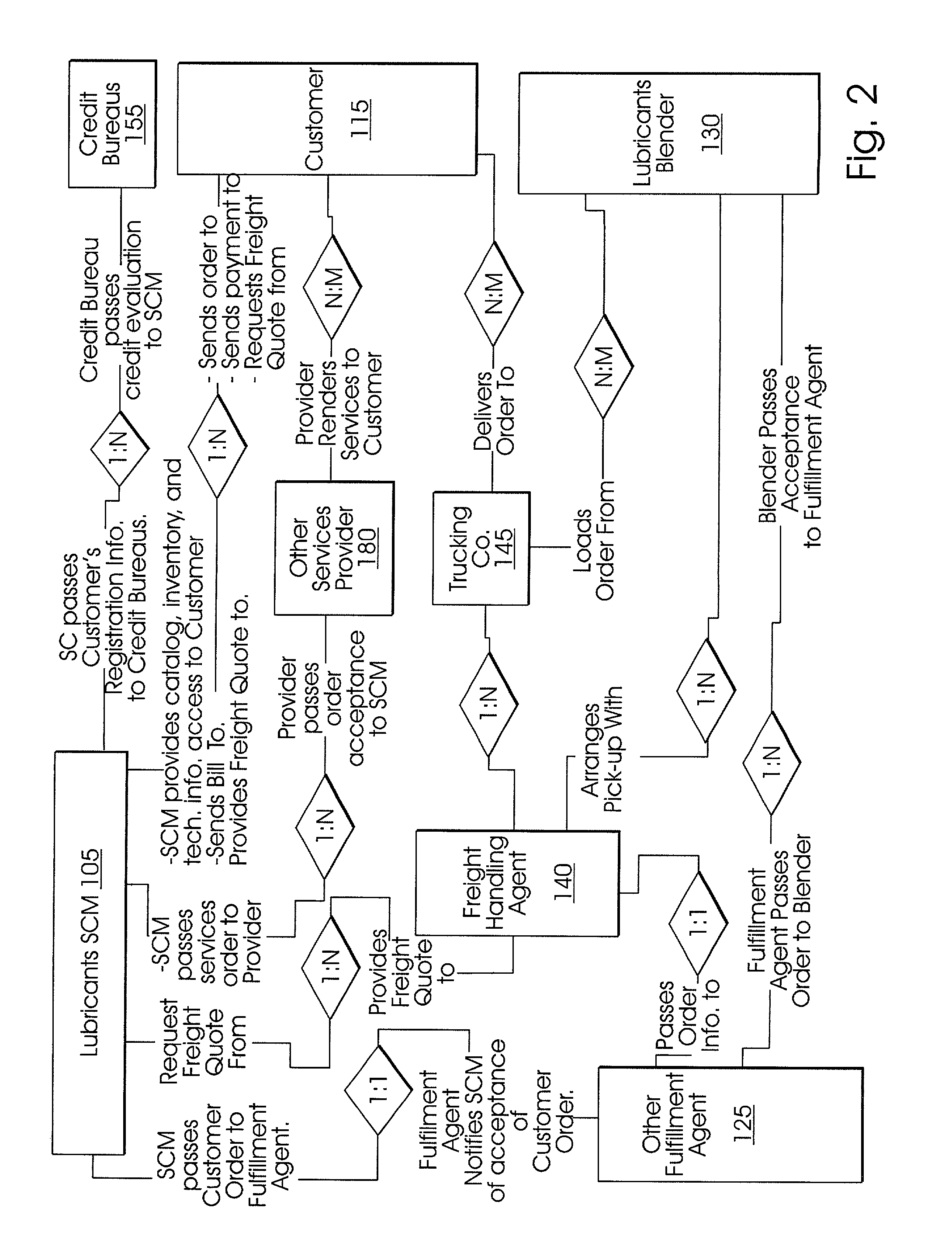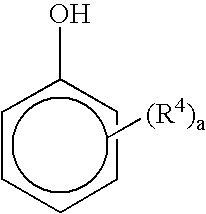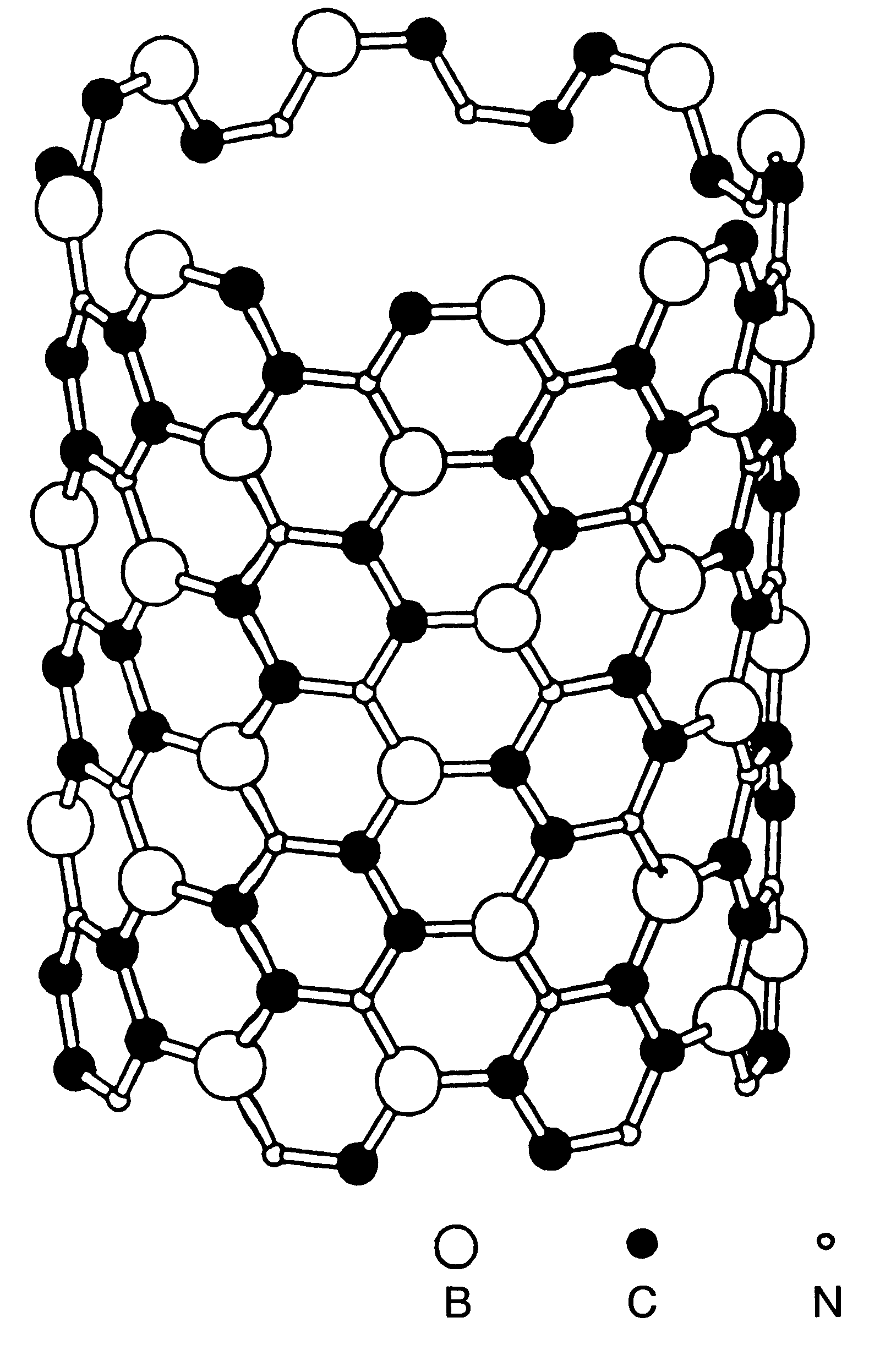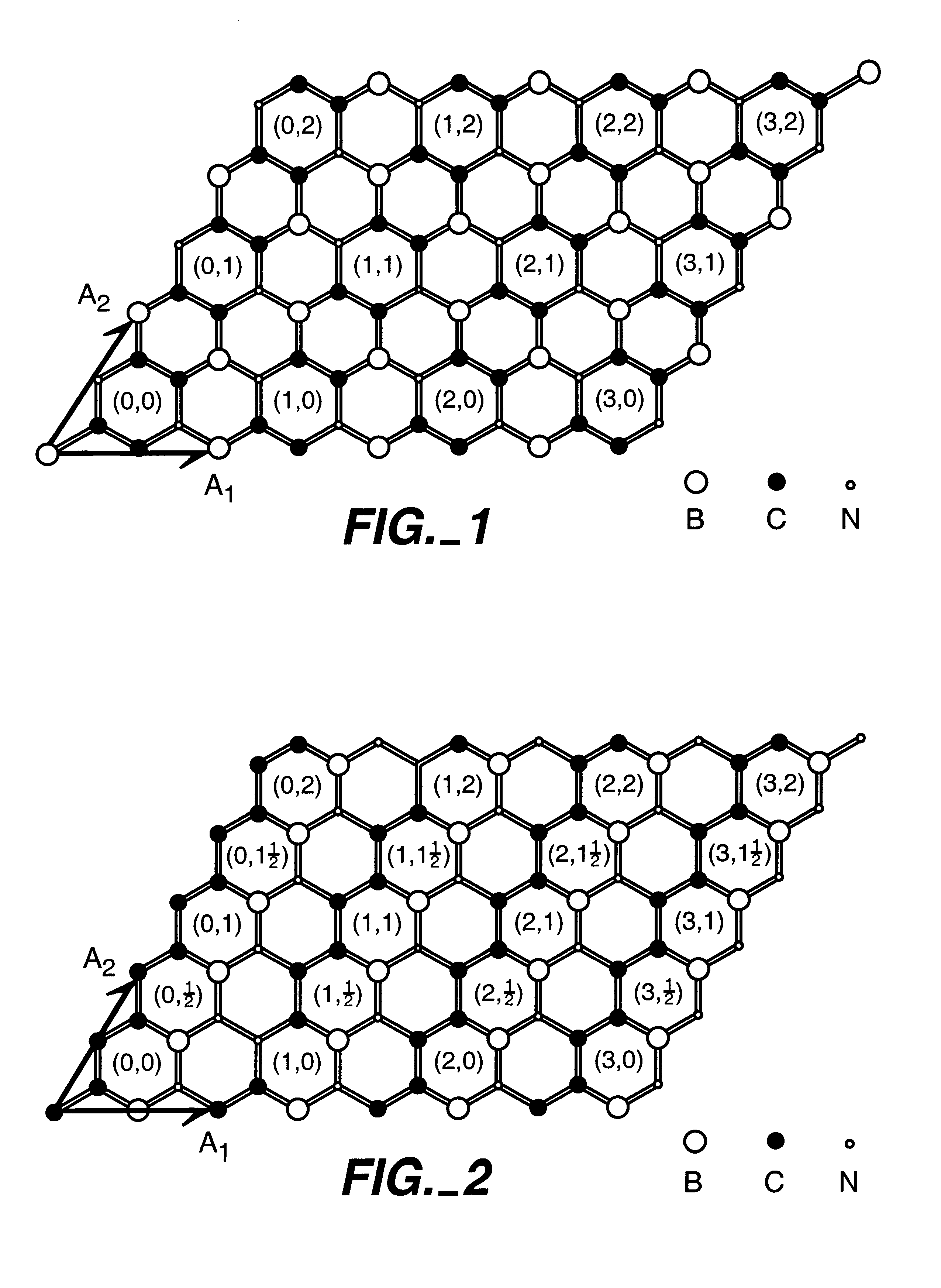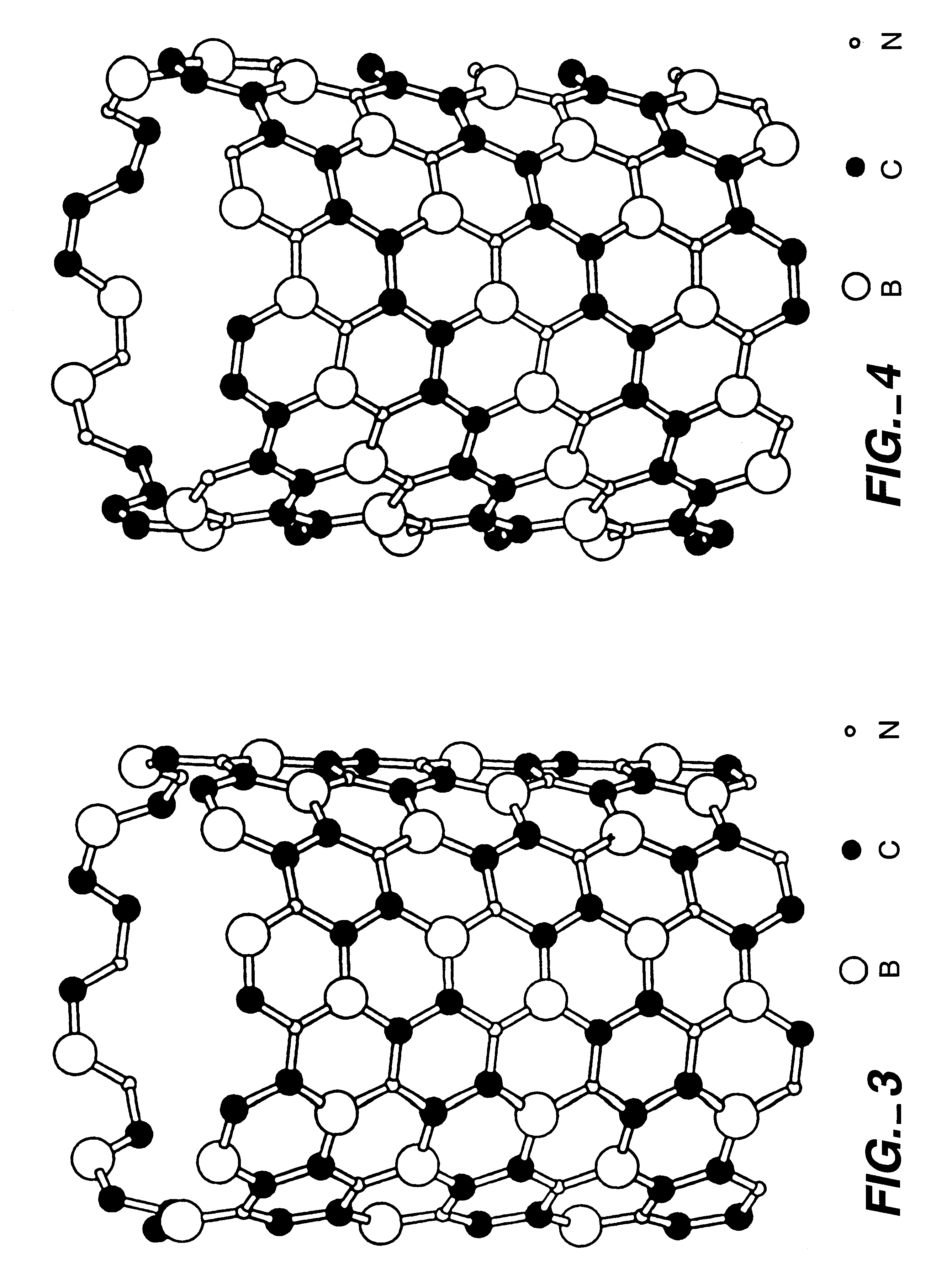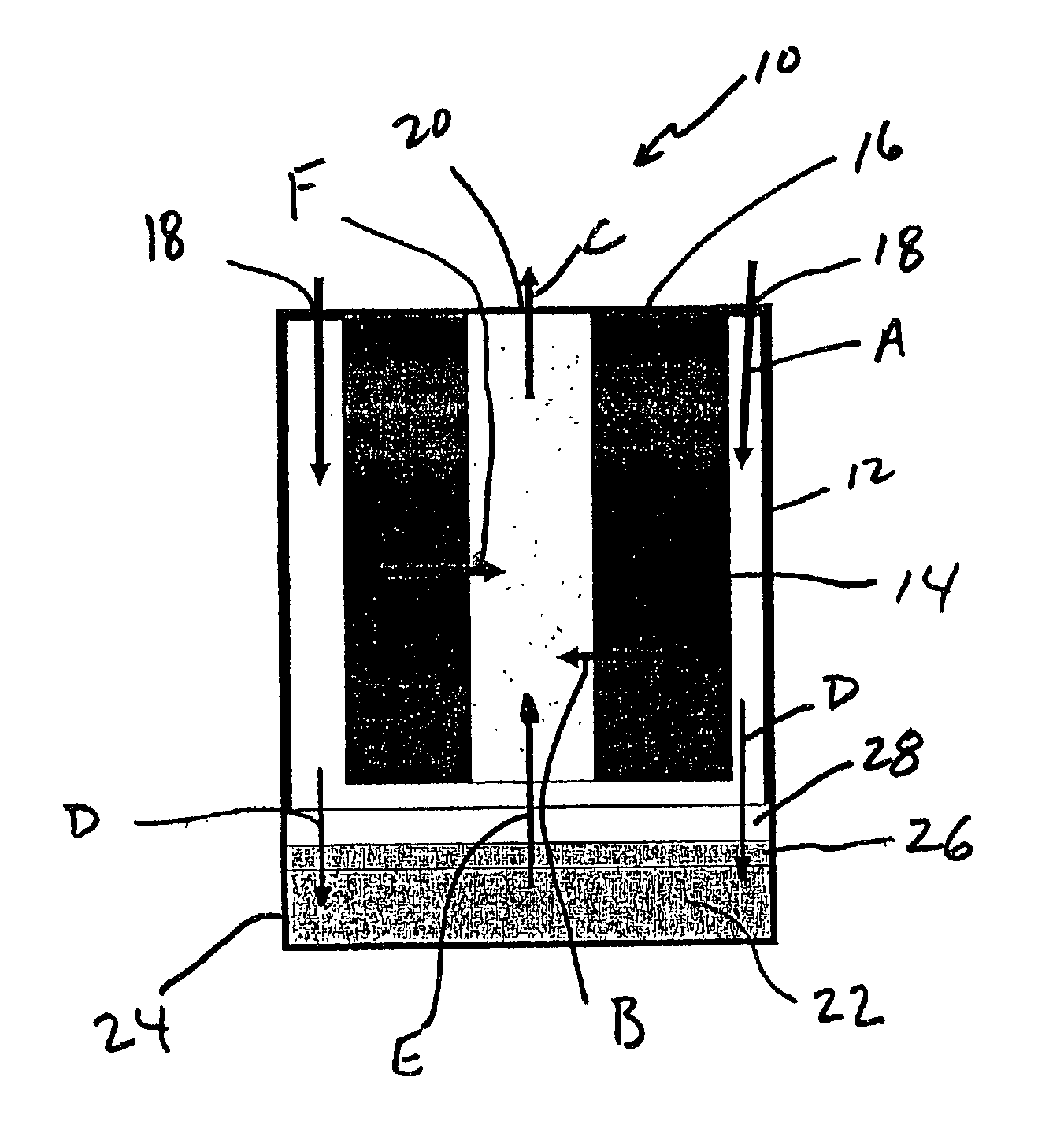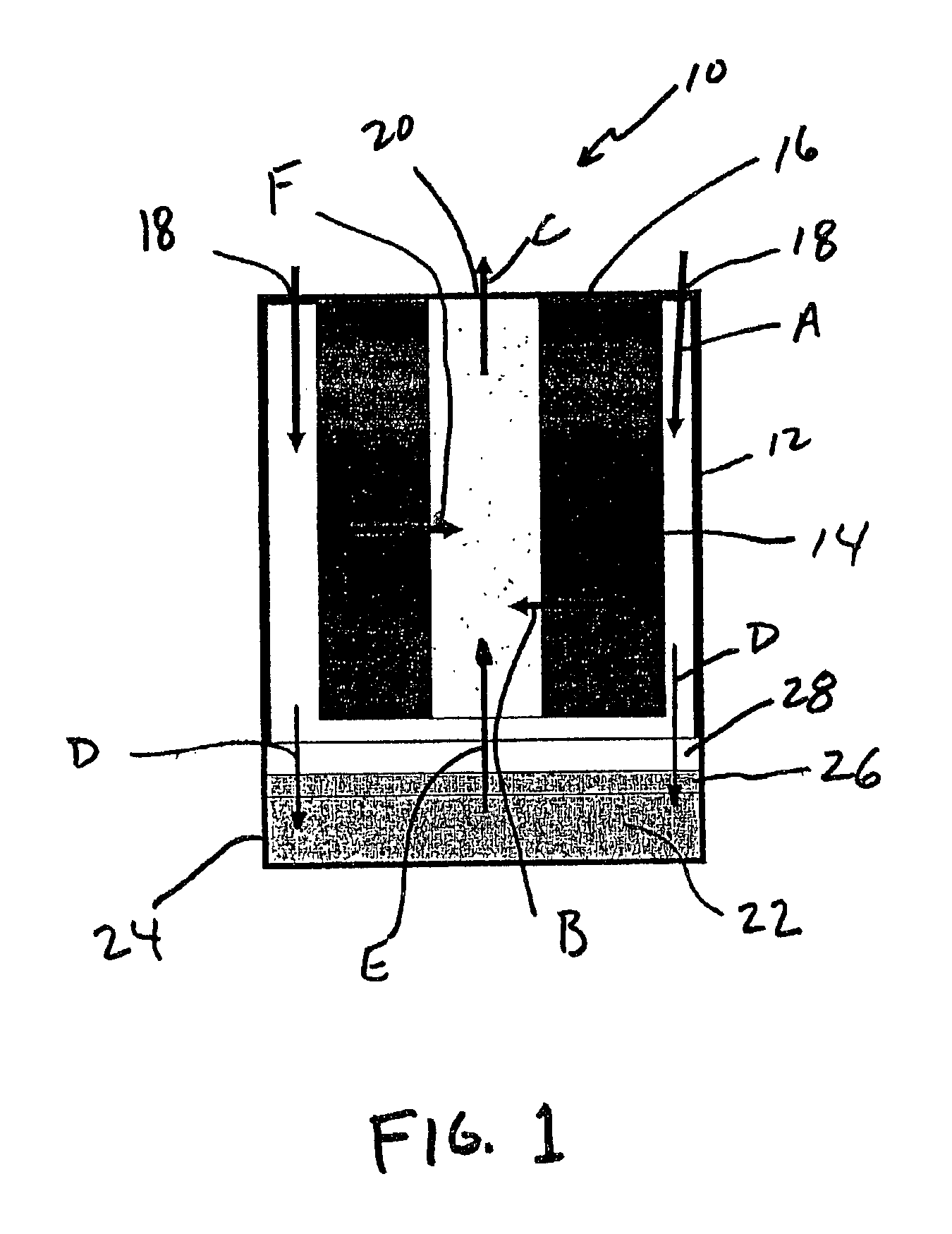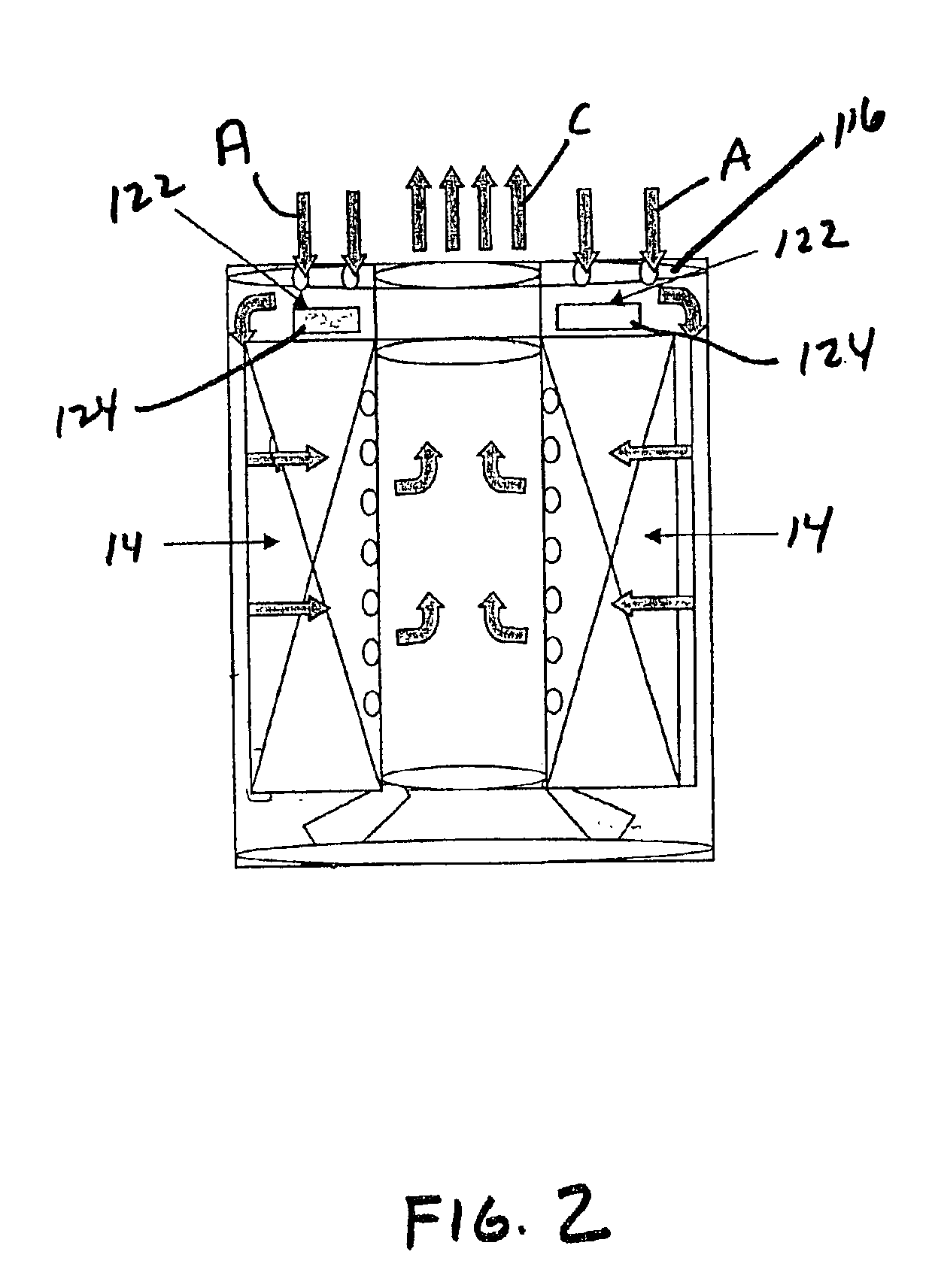Patents
Literature
Hiro is an intelligent assistant for R&D personnel, combined with Patent DNA, to facilitate innovative research.
43802 results about "Lubricant" patented technology
Efficacy Topic
Property
Owner
Technical Advancement
Application Domain
Technology Topic
Technology Field Word
Patent Country/Region
Patent Type
Patent Status
Application Year
Inventor
A lubricant is a substance, usually organic, introduced to reduce friction between surfaces in mutual contact, which ultimately reduces the heat generated when the surfaces move. It may also have the function of transmitting forces, transporting foreign particles, or heating or cooling the surfaces. The property of reducing friction is known as lubricity.
Implantable joint prosthesis
InactiveUS20020035400A1Improve wear resistanceImprove tribological propertiesDiagnosticsJoint implantsRange of motionIntervertebral disc
The invention relates to a surgical implant that provides an artificial diarthroidal-like joint, suitable for use in replacing any joint, but particularly suitable for use as an intervertebral disc endoprosthesis. The invention contains two rigid opposing shells, each having an outer surface adapted to engage the surfaces of the bones of a joint in such a way that the shells are immobilized by friction between their outer surfaces and the surfaces of the bone. These outer surfaces are sufficiently rough that large frictional forces strongly resist any slippage between the outer surface and the bone surfaces in the joint. They may be convex, and when inserted into a milled concavity, are immediately mechanically stable. Desirably, the outer surfaces of the shells are adapted to allow for bony ingrowth, which further stabilizes the shells in place. The inner surfaces of the shells are relatively smooth, and adapted to slide easily across a portion of the outer surface of a central body disposed between the shells. The central body has a shape that cooperates with the shape of the inner surface of the shell so as to provide a range of motion similar to that provided by a healthy joint. A flexible sheath extends between edges of the opposing shells. The inner surface of this sheath, together with the inner surfaces of the rigid shells, defines a cavity encasing the central body. At least a portion of this cavity is filled with a fluid lubricant, further decreasing the frictional force between inner surfaces of the shell and the surface of the central body.
Owner:SPINAL DYNAMICS CORP
Compressed high density fibrous polymers suitable for implant
An embodiment of the present invention may be made by the following steps: providing a mixture comprising a plurality of fibers, a lubricant, and a suspension fluid, with the suspension fluid filling a void space between said fibers and subjecting said mixture to at least one compressive force. The compressive force causes the migration and alignment of said fibers; and may remove substantially all of the suspension fluid from said mixture. The mixture may further comprise a biologically active agent, or a reinforcing agent.
Owner:DSM IP ASSETS BV
Modified oxygen reduced valve metal oxides
InactiveUS6639787B2Maintain good propertiesWear minimizationOxide/hydroxide preparationLiquid electrolytic capacitorsFluidized bedPhysical chemistry
Owner:GLOBAL ADVANCED METALS USA
Lubricant and fuel compositions containing hydroxy carboxylic acid and hydroxy polycarboxylic acid esters
InactiveUS20050198894A1Reduce the amount requiredWithout diminishing anti-wear performanceOrganic chemistryLiquid carbonaceous fuelsCarboxylic acidMedicinal chemistry
Disclosed herein is a composition comprising: (A) a lubricant or a hydrocarbon fuel; (B) at least one hydroxy carboxylic acid ester or hydroxy polycarboxylic acid ester having the generic formula defined herein; and (C) at least one phosphorus-containing additive.
Owner:CHEMTURA CORP
Scanning endoscope
InactiveUS20050020926A1Improve discriminationImprove color gamutTelevision system detailsSurgeryDiagnostic Radiology ModalityLaser transmitter
A scanning endoscope, amenable to both rigid and flexible forms, scans a beam of light across a field-of-view, collects light scattered from the scanned beam, detects the scattered light, and produces an image. The endoscope may comprise one or more bodies housing a controller, light sources, and detectors; and a separable tip housing the scanning mechanism. The light sources may include laser emitters that combine their outputs into a polychromatic beam. Light may be emitted in ultraviolet or infrared wavelengths to produce a hyperspectral image. The detectors may be housed distally or at a proximal location with gathered light being transmitted thereto via optical fibers. A plurality of scanning elements may be combined to produce a stereoscopic image or other imaging modalities. The endoscope may include a lubricant delivery system to ease passage through body cavities and reduce trauma to the patient. The imaging components are especially compact, being comprised in some embodiments of a MEMS scanner and optical fibers, lending themselves to interstitial placement between other tip features such as working channels, irrigation ports, etc.
Owner:MICROVISION
Home and personal care compositions comprising silicon-based lubricants
InactiveUS7465439B2Cosmetic preparationsOrganic detergent compounding agentsPersonal carePolymer science
A composition for personal, home, or laundry treatment comprising a polymer made up of one or more crosslinked rake or comb silicone copolymer segments. A process for making copolymers for use in such compositions involves hydrosilylation in the presence of a catalyst.
Owner:CONOPCO INC D B A UNILEVER
Polyester polyether block copolymers
The present invention relates to novel bioabsorbable polymeric compositions based upon AB polyester polyether or related diblocks and triblocks. Compositions according to the present invention may be used in medical applications, for example, for reducing or preventing adhesion formation subsequent to medical procedures such as surgery, for producing surgical articles including stents and grafts, as coatings, sealants, lubricants, as transient barriers in the body, for materials which control the release of bioactive agents in the body, for wound and bum dressings and producing biodegradable articles, among numerous others.
Owner:YISSUM RES DEV CO OF THE HEBREWUNIVERSITY OF JERUSALEM LTD
Titanium compounds and complexes as additives in lubricants
A lubricating composition comprising an oil of lubricating viscosity, 1 to 1000 parts per million by weight of titanium in the form of an oil-soluble titanium-containing material, and at least one additional lubricant additive provides beneficial effects on properties such as deposit control, oxidation, and filterability in engine oils.
Owner:THE LUBRIZOL CORP
Acid-free quaternized nitrogen compounds and use thereof as additives in fuels and lubricants
The present invention relates to novel acid-free quaternized nitrogen compounds, to the preparation thereof and to the use thereof as a fuel and lubricant additive, more particularly as a detergent additive, as a wax antisettling additive (WASA) or as an additive for reducing internal diesel injector deposits (IDID); to additive packages which comprise these compounds; and to fuels and lubricants thus additized. The present invention further relates to the use of these acid-free quaternized nitrogen compounds as a fuel additive for reducing or preventing deposits in the injection systems of direct-injection diesel engines, especially in common-rail injection systems, for reducing the fuel consumption of direct-injection diesel engines, especially of diesel engines with common-rail injection systems, and for minimizing power loss in direct-injection diesel engines, especially in diesel engines with common-rail injection systems.
Owner:BASF AG
Joint for steel pipe having high galling resistance and surface treatment method thereof
InactiveUS6027145AShorten heating timeImprove the lubrication effectDrilling rodsPretreated surfacesEpoxyPolyamide
PCT No. PCT / JP95 / 02034 Sec. 371 Date May 23, 1997 Sec. 102(e) Date May 23, 1997 PCT Filed Oct. 4, 1995 PCT Pub. No. WO96 / 10710 PCT Pub. Date Apr. 11, 1996An object of the present invention is to provide galling resistance to a threaded joint used for an oil well pipe. On a thread portion and a metallic sealing portion of the joint, there is provided a manganese phosphate chemical formation coating layer, or alternatively there are provided a nitriding layer of 1 to 20 mu m thickness and a manganese phosphate chemical formation coating layer of 5 to 30 mu m thickness, and also there is coated a solid lubricant which contains powder of molybdenum disulfide or tungsten disulfide and also contains one of epoxy resin, furan resin and polyamide resin as an essential component, and a ratio of composition is maintained at a specific value, so that a solid lubricant coating layer of 10 to 45 mu m thickness can be formed by heating. Due to the above surface treatment, even when the frequency of repetition of fastening and unfastening of the joint is increased, the occurrence of galling can be prevented over a long period of time.
Owner:NSCT PREMIUM TUBULARS
Bullet composition
Owner:HANSEN RICHARD D
Temperature sensing cable material with CRT characteristics and preparation method thereof
ActiveCN101613504AWith CTR featureFlexibleRubber insulatorsPlastic/resin/waxes insulatorsProcedure AgentsAntioxidant
The invention relates to technical fields of materials, chemical engineering and electronics, in particular to a cable material with a polymer substrate and CTR effect and a preparation method thereof. The temperature sensing cable material with CRT characteristics consists of thermoplastic polymer, a filling agent, a plasticizer, functional additives, a stabilizing agent, a flame retardant, a lubricant, an antioxidant and a processing agent, has the use temperature range between -30 and 150 DEG C, and can be applied on occasions such as recoverable line-type temperature sensing cables, fire prewarning and alarm devices, temperature measurement, overheating alarm and protection and the like. The temperature sensing cable material with the CRT characteristics takes a polymer material as a substrate, and is added with multiple organic and inorganic compounds with special CTR characteristics taken as the functional additives, and has the characteristics of flexibility, and capacities of being continuously processed and being used like a common cable material.
Owner:QINGDAO SUNYFIRE TECHNOLOGE
Nano graphene-modified lubricant
ActiveUS20110046027A1Modulate viscosityImprove the lubrication effectAdditivesBase-materialsCarbon nanotubeSingle layer graphene
A lubricant composition having improved lubricant properties, comprising:(a) a lubricating fluid; and (b) nano graphene platelets (NGPs) dispersed in the fluid, wherein nano graphene platelets have a proportion of 0.001% to 60% by weight based on the total weight of the fluid and the graphene platelets combined. Preferably, the composition comprises at least a single-layer graphene sheet. Preferably, the lubricating fluid contains a petroleum oil or synthetic oil and a dispersant or surfactant. With the addition of a thickener or a desired amount of NGPs, the lubricant becomes a grease composition. Compared with graphite nano particle- or carbon nanotube-modified lubricants, NGP-modified lubricants have much better thermal conductivity, friction-reducing capability, anti-wear performance, and viscosity stability.
Owner:GLOBAL GRAPHENE GRP INC
Rolling membrane stent delivery system
A medical device delivery system, having a rolling retractable sheath covering a medical device mounting region on the system is disclosed. The rolling retractable sheath comprises an inner wall and an outer wall and may be formed of one or more materials, optionally porous. Optionally, a lubricant may be applied selectively to the interior and exterior walls of the stent.
Owner:BOSTON SCI SCIMED INC
Enamel coated bullet, method of making an enamel coated bullet
ActiveUS9254503B2Reduces barrel depositsLess expensiveAmmunition projectilesLiquid surface applicatorsSufficient timeLacquer thinner
Owner:WARD TYLER
Lubricious coating for a medical device
InactiveUS6866656B2Reduce frictionNot degradedFilm/foil adhesivesSynthetic resin layered productsElastomerChemical Linkage
A lubrication system is disclosed which minimizes friction and that is useful for application on the surface of a flexible portion of a medical device. Such a lubrication system includes a lubricant that is able to move when the flexible portion of the medical device flexes and is biocompatible and is not degraded by the application of alcohol or other conventional medical sterilizing and cleaning agents. The lubricant is bonded to the surface of the flexible portion of the medical device. The lubrication system may be used on an elastomeric septum, such as a silicone rubber elastomer. The lubricant coating may be any type of coating that can be chemically bonded to the elastomer, such as di-paraxylene, poly-(p-xylene), polytetrafluoroethylene, or polyvinylpyrrolidone.
Owner:BECTON DICKINSON & CO
Method and system for compensating thermally induced motion of probe cards
InactiveUS7002363B2Electric/magnetic detection for well-loggingSemiconductor/solid-state device testing/measurementTemperature controlProbe card
The present invention discloses a method and system compensating for thermally induced motion of probe cards used in testing die on a wafer. A probe card incorporating temperature control devices to maintain a uniform temperature throughout the thickness of the probe card is disclosed. A probe card incorporating bi-material stiffening elements which respond to changes in temperature in such a way as to counteract thermally induced motion of the probe card is disclosed including rolling elements, slots and lubrication. Various means for allowing radial expansion of a probe card to prevent thermally induced motion of the probe card are also disclosed. A method for detecting thermally induced movement of the probe card and moving the wafer to compensate is also disclosed.
Owner:FORMFACTOR INC
Handheld diagnostic device with renewable biosensor
A handheld diagnostic device having a test head and a handle is equipped with an open test channel having sensors and liquid reagent dispensing opening for the diagnostic testing of body fluids. The test channel can draw in fluid sample by capillary force and be closed by a channel cover for mixing the fluid sample with liquid reagent for electrochemical reactions for providing measurement signals for diagnostic analysis by a microprocessor included in the handle. A vibration means is added for stimulating the production of the body fluid sample and for assisting mixing of the sample solution. A renewable biosensor having a reusable electrode system and a dispensing means for providing a new dose of liquid reagent is included in the test head for repeated uses of the test channel and the biosensor. A dual-dispensers system having two reagent cartridges and two dispensing lines is included for simultaneous or selective dispensing of reagents for multiple diagnostic testing. The handheld device can be used for the self-diagnostic testing of saliva, body fluid, blood and vagina fluid for home healthcare and for monitoring predetermined components in a pourable fluid. For vagina fluid applications, a handheld diagnostic device may include cream or foam dispenser for dispensing vagina medication material, lubricant, or spermicide.
Owner:KUO YOUTI
Surgical device with tack-free gel and method of manufacture
InactiveUS20050033246A1Significant drag forceImprove complianceCannulasSurgical needlesMolten stateLow-density polyethylene
A process of making a tack-free gel is disclosed comprising the steps of providing a mold defining a mold cavity, the mold cavity comprising a plastic material; pouring or injecting a molten gel having a high molding temperature into the mold cavity; and forming the tack-free gel as a thin layer of plastic of the mold cavity is melted over the gel. The forming step further comprises cooling the gel from the molten state to a solidified state. The melting temperature of the plastic material is lower than the molding temperature of the gel; and the higher the temperature differential, the greater the melting of the plastic material and the thicker the layer of the plastic material on the surface of the gel. The mold may be formed of low-density polyethylene (LDPE). With the process of the invention, the heat of the molten gel at its molding temperature is transferred to the surface of the LDPE mold so as to melt a thin layer of the LDPE. The mold may comprise a mold base having a plurality of mold holes forming a plurality of mold cavities, each of the mold holes comprising an axial pin to mold an axial hole through a center of the gel, an LDPE cylinder providing a predetermined inside diameter for the mold, and an LDPE disc mounted on the axial pin and disposed at the bottom of each mold cavity in the mold base. The process may further comprise the step of dabbing the gel in a low-friction powder such as polytetrafluoroethylene (PTFE) and a lubricant. The mold may further comprise a mold top disposed axially of the mold base and comprises a plurality of holes forming a plurality of cavities, each of the mold top holes is adapted to receive the LDPE cylinder, and a second LDPE disc disposed at the top of each mold cavity of the mold top.
Owner:APPL MEDICAL RESOURCES CORP
Wind turbine ring/shroud drive system
InactiveUS6951443B1Easy to adaptEliminate structureWind motor controlPump componentsNacelleGear drive
A wind turbine capable of driving multiple electric generators having a ring or shroud structure for reducing blade root bending moments, hub loads, blade fastener loads and pitch bearing loads. The shroud may further incorporate a ring gear for driving an electric generator. In one embodiment, the electric generator may be cantilevered from the nacelle such that the gear on the generator drive shaft is contacted by the ring gear of the shroud. The shroud also provides protection for the gearing and aids in preventing gear lubricant contamination.
Owner:GENERAL ELECTRIC CO
Oil line insulation system for mid turbine frame
A gas turbine engine having a mid turbine frame comprising an annular outer case providing a portion of an engine casing; an interturbine duct (ITD) disposed within the outer case, the ITD including outer and inner rings radially spaced apart one from another and being interconnected by a plurality of radially extending and circumferentially spaced hollow strut fairings, the inner and outer rings co-operating to provide a portion of a hot gas path through the engine; a tube for delivering or discharging a lubricant fluid to or from a bearing housing, the tube extending radially through one of the hollow struts; and an insulation structure radially extending through one said hollow strut fairing, the insulation structure surrounding the tube and being spaced apart from the tube and from a hot internal surface of the one hollow strut fairing for shielding the tube from heat radiated from the hot internal surface of the one hollow strut fairing and for preventing the lubricant fluid from contacting the hot internal surface of said one hollow strut fairing when lubricant fluid leakage occurs.
Owner:PRATT & WHITNEY CANADA CORP
System and method for lubricants supply chain management
The invention includes a method of lubricants supply chain management including: storing in a web-accessible database a catalog of lubricants and prices-per-unit for same which prices-per-unit optionally decrease based on certain pre-determined cumulative volume purchases; upon receiving at a web server a request from a web-browser client, querying the database and serving the results of the query to the requesting web-browser client for display; serving an order form to the web-browser client which is configured to contain fields for order quantity and type for lubricants, delivery type preferences and delivery address entered in the web-browser client, and determining and displaying on the web-browser client a delivery price quote; receiving an order from the web-browser client for a specific type and quantity of lubricants and having a specific delivery type selected; electronically transmitting over a network the order to an order fulfillment agent; where the order fulfillment agent electronically transmits over a network the order to at least one lubricant blender; electronically transmitting over a network the order and the delivery information to a freight-handling agent; where the freight-handling agent inputs the information into a delivery optimization system which outputs a delivery schedule which includes the order, and electronically transmits over a network the order and the delivery information to at least one trucking company; and maintaining the status and all actions and communications for the order in a second web-accessible database.
Owner:CHEVROU USA INC
Wood-plastic composite material and prepration method thereof
The invention discloses a wood-plastic composite material and a preparation method thereof, and the wood-plastic composite material comprises the following raw materials according to the mixing ratio by parts by weight: 30-80 parts of modified fiber powder; 15-80 parts of plastics; 2-10 parts of phase solvent; 2-10 parts of lubricant; 0-10 parts of stabilizer; 0.2-1.0 part of antioxidant; 5-15 parts of filler; and 2-20 parts of flame retardant. Lignin is utilized for modifying fiber powder, then composition with the plastics is carried out, and a finished-product material is formed by extrusion. The preparation method can solve the problems of the compatibility of wood fibers with the thermoplastic plastics, the surface treatment technology of the raw materials by utilizing the lignin and the like, realize the comprehensive utilization of the lignin and the waste plastics, be capable of replacing wood, increase the additional value of the lignin and solve the utilization problem of the lignin wastes. The manufactured wood-plastic composite material can significantly improve the mechanical performance, the tensile strength, the flexural strength and the impact resistance, and realize the industrial production of high-performance products, such as construction materials.
Owner:BEIJING FORESTRY UNIVERSITY
Titanium compounds and complexes as additives in lubricants
A lubricating composition comprising an oil of lubricating viscosity, 1 to 1000 parts per million by weight of titanium in the form of an oil-soluble titanium-containing material, and at least one additional lubricant additive provides beneficial effects on properties such as deposit control, oxidation, and filterability in engine oils.
Owner:THE LUBRIZOL CORP
BX CY NZ nanotubes and nanoparticles
Owner:RGT UNIV OF CALIFORNIA
Premium synthetic lubricants
InactiveUS6475960B1Refining to change hydrocarbon structural skeletonHydrocarbon purification/separationAntioxidantBoiling point
Premium synthetic lubricants comprise a synthetic isoparaffinic hydrocarbon base stock and an effective amount of at least one, and typically a plurality of lubricant additives such as a detergent, dispersant, antioxidant, antiwear additive, pout point depresant, VI improver and the like. The base stock is derived from a waxy, paraffinic, Fischer-Tropsch synthesized hydrocarbon feed fraction having an initial boiling point in the range of about 650-750° F. and continuously boiling up to at least 1050° F., by a process which comprises hydroisomerizing the feed and dewaxing the isomerate. The waxy feed has a T90-T10 temperature difference of at least 350° F. and is preferably hydroisomerized without any pretreatment, other than optional fractionation. The lubricant may also contain hydrocarbonaceous and synthetic base stock material. Lubricants, such as fully formulated multigrade automotive crankcase and transmission oils formed by adding a suitable additive package to the isoparaffinic base stock have exhibited performance superior to similar fully formulated oils based on both PAO and conventional, petroleum derived base stocks.
Owner:EXXON RES & ENG CO
PVP and PVA as in vivo biocompatible acoustic coupling medium
An vivo biocompatible and bio-excretable lubricant and ultrasound coupling fluid or gel comprising polyvinylpyrrolidone (PVP) and / or polyvinyl alcohol (PVA). The inventive couplant fluid or gel comprises polyvinylpyrrolidone and / or polyvinyl alcohol solutions in water to which humectants such as alkylene glycols and / or polyalkylene glycols are added to achieve desired tactile and drying characteristics. Additionally, such fluids and gels may be prepared by addition of organic and inorganic cross-linkers.
Owner:ILLINOIS TOOL WORKS INC
Slow release lubricant additives gel
A lubricant additive gel formed by the gellation of two or more lubricant additives for the slow release of the additive components into a fluid. The lubricant additive gel slowly releases into its component lubricant additives when contacted with the fluid such as an oil thereby serving as a lubricant fluid such as an oil thereby.
Owner:THE LUBRIZOL CORP
Features
- R&D
- Intellectual Property
- Life Sciences
- Materials
- Tech Scout
Why Patsnap Eureka
- Unparalleled Data Quality
- Higher Quality Content
- 60% Fewer Hallucinations
Social media
Patsnap Eureka Blog
Learn More Browse by: Latest US Patents, China's latest patents, Technical Efficacy Thesaurus, Application Domain, Technology Topic, Popular Technical Reports.
© 2025 PatSnap. All rights reserved.Legal|Privacy policy|Modern Slavery Act Transparency Statement|Sitemap|About US| Contact US: help@patsnap.com
